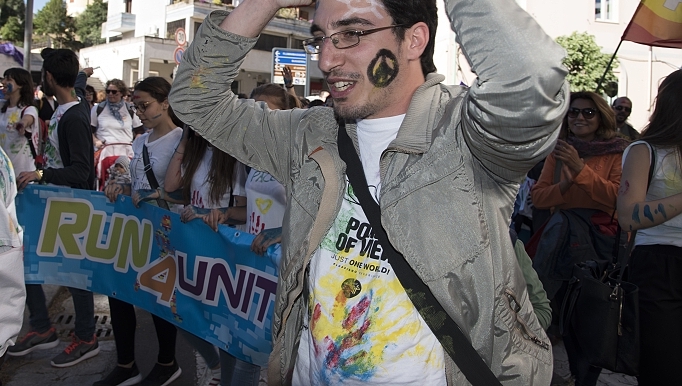
May 29, 2017 | Non categorizzato
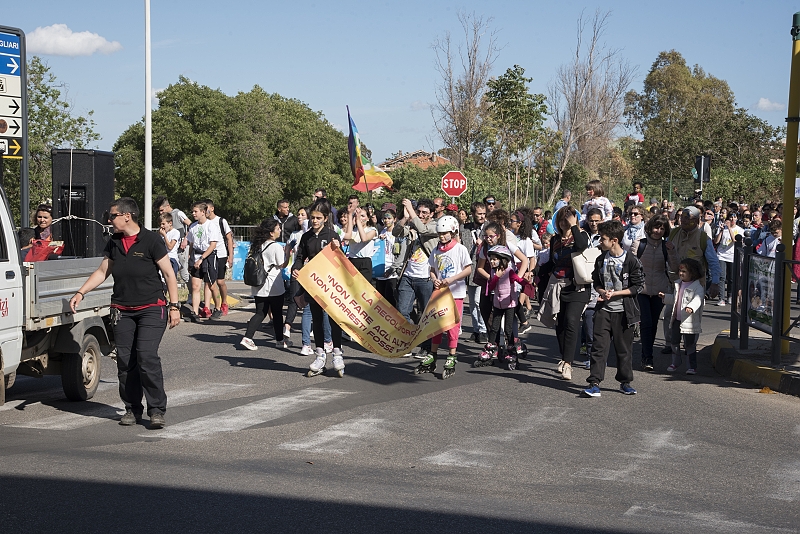 “Yesterday’s breeze brushed the hair and faces of both kids and adults, a colorful slice of humanity saying yes to life and no to the merchants of death. After years of existing in isolation, many groups and organizations came together to start again, in the hope of a visible fraternity.” So read the press release the day after the peace march from its promoters – Focolare, Amnesty International, Oxfam, Fondazione Banca Etica, Opal Brescia, Rete Italiana per il Disarmo – with the support of Comboni missionary Alex Zanotelli. The campaign against arms dealing between Italy and war-torn countries began on March 7, 2017 in Sardinia. The initiative was also part of the worldwide event Run4Unity, promoted by the Young for Unity. Run4Unity takes place each year on the first Sunday of May throughout the globe, during World Unity Week. Arnaldo Scarpa, part of the Focolare Movement in Iglesias and spokesperson for the RWM Conversion Committee together with Cinzia Guaita, explains how the project began. “For many years, there has been a factory in the Domusnovas and Iglesias area whose original work was to produce explosives for nearby mines. Unfortunately the mines were decommissioned, and the factory was converted using public money to produce military equipment. This was then bought and transformed by RWM, a German multinational that produces weapons that are then exported to Saudi Arabia. “So from our country, Italy, arms go out to the ‘pieces of World War III.’ The laws of both countries, Italy and Germany, are quite clear: Law 185/90 in fact prohibits the Italian government to sell arms to countries at war or who do not respect human rights. Yet there has been a continual increase (59%) in Italian exports to North African and Middle Eastern countries in particular. In 2016, RWM’s production rose to almost 22,000, a jump of 1,466%.” At Domusnovas, like in many areas of the island, the main challenge is jobs. “We understood,” Arnaldo continues, “that even our consciences could fall asleep, confused by the general silence, having become groggy from the tragedy of unemployment. Those of us who are committed to living fraternity certainly support the workers, yet we also support the children, teens and adults in Yemen who are killed by what is produced here. Our project has required that we be more courageous than we had ever been in our lives, for many reasons, but it’s already encouraging that there are many people with us who have different backgrounds and ideas.”
“Yesterday’s breeze brushed the hair and faces of both kids and adults, a colorful slice of humanity saying yes to life and no to the merchants of death. After years of existing in isolation, many groups and organizations came together to start again, in the hope of a visible fraternity.” So read the press release the day after the peace march from its promoters – Focolare, Amnesty International, Oxfam, Fondazione Banca Etica, Opal Brescia, Rete Italiana per il Disarmo – with the support of Comboni missionary Alex Zanotelli. The campaign against arms dealing between Italy and war-torn countries began on March 7, 2017 in Sardinia. The initiative was also part of the worldwide event Run4Unity, promoted by the Young for Unity. Run4Unity takes place each year on the first Sunday of May throughout the globe, during World Unity Week. Arnaldo Scarpa, part of the Focolare Movement in Iglesias and spokesperson for the RWM Conversion Committee together with Cinzia Guaita, explains how the project began. “For many years, there has been a factory in the Domusnovas and Iglesias area whose original work was to produce explosives for nearby mines. Unfortunately the mines were decommissioned, and the factory was converted using public money to produce military equipment. This was then bought and transformed by RWM, a German multinational that produces weapons that are then exported to Saudi Arabia. “So from our country, Italy, arms go out to the ‘pieces of World War III.’ The laws of both countries, Italy and Germany, are quite clear: Law 185/90 in fact prohibits the Italian government to sell arms to countries at war or who do not respect human rights. Yet there has been a continual increase (59%) in Italian exports to North African and Middle Eastern countries in particular. In 2016, RWM’s production rose to almost 22,000, a jump of 1,466%.” At Domusnovas, like in many areas of the island, the main challenge is jobs. “We understood,” Arnaldo continues, “that even our consciences could fall asleep, confused by the general silence, having become groggy from the tragedy of unemployment. Those of us who are committed to living fraternity certainly support the workers, yet we also support the children, teens and adults in Yemen who are killed by what is produced here. Our project has required that we be more courageous than we had ever been in our lives, for many reasons, but it’s already encouraging that there are many people with us who have different backgrounds and ideas.”  A positive outcome from the project has been the establishment of the RWM Conversion Committee, to keep the focus on the issue and block the extension of the factory. The area there has natural, environmental and archeological value. There is also the ethical dilemma: some have chosen to not accept work at this factory, even though they are unemployed, while others working inside experience serious crises of conscience. The next step is therefore to lay the foundations for common work on the project, to convert the factory and develop the area differently. Important contacts with entrepreneurs, architects, academics, legal experts, institutions, associations and employee representatives have begun. What is above all essential is that there be a specific political choice at all levels of government. To sign the petition for the Italian president, click here.
A positive outcome from the project has been the establishment of the RWM Conversion Committee, to keep the focus on the issue and block the extension of the factory. The area there has natural, environmental and archeological value. There is also the ethical dilemma: some have chosen to not accept work at this factory, even though they are unemployed, while others working inside experience serious crises of conscience. The next step is therefore to lay the foundations for common work on the project, to convert the factory and develop the area differently. Important contacts with entrepreneurs, architects, academics, legal experts, institutions, associations and employee representatives have begun. What is above all essential is that there be a specific political choice at all levels of government. To sign the petition for the Italian president, click here.
May 29, 2017 | Non categorizzato, Word of
for ages 4-8 | for ages 9-17 | MP3 Audio | Print
In the days following Jesus’ crucifixion, his disciples stayed indoors, fearful and confused. They had followed him along the roads of Palestine, where he proclaimed God’s tender love for each person. Jesus had been sent by the Father, not only to give witness to this love, but also to open for humanity the path to God. He revealed a God who is Trinity, who is a communion of love in himself, and who wants to gather all into this embrace. During the time of his mission, many people saw, heard and experienced Jesus’ good works, his words of welcome, forgiveness and hope … But then came his condemnation and crucifixion. This is the context in St John’s Gospel, where we are told how after he rose again on the third day Jesus appeared to his disciples and sent them out to continue his mission. “As the Father has sent me, so I send you.” It is as if he said, “Do you remember how I shared my life with you? How I satisfied your hunger and thirst for justice and for peace? How I healed the hearts and bodies of so many marginalized people, the outcasts of society? How I defended the dignity of the poor, widows and foreigners? Now you must continue: proclaim the Gospel you have received to everyone. Tell them that God wishes to be met and known by all. Tell them that you are all brothers and sisters.” Each person, created in the image and likeness of God who is love, longs for this encounter. All cultures and societies strive to build relationships of community. But how challenging it is, how many difficulties and obstacles there are to reaching this goal! Every day this deep aspiration runs up against our weakness, our narrowmindedness and fears, our mistrust and judgement of each other. Yet the Lord, with great trust, goes on saying to us as he did in the past: “As the Father has sent me, so I send you.” How can we respond to such a bold invitation? Doesn’t the mission of creating fraternity in a fractured world seem like fighting a losing battle? On our own we will never make it. That is why Jesus gave us the Holy Spirit, as a special gift who sustains our efforts to love each person, even if that person is an enemy. In a Word of Life meditation from 1994, Focolare founder Chiara Lubich wrote, “The Holy Spirit, given to us through baptism … is the spirit of love and unity, who made all believers one in the risen Lord and with one another, overcoming every difference of race, culture and social class … Our selfishness builds barriers of isolation and excludes those who are different from us … So, by listening to the Holy Spirit’s voice, let us try to grow in this fellowship … overcoming the seeds of division carried within us.” With the Holy Spirit’s help this month, every time we interact with others, no matter what it is, let us too remember and practice the words of love: welcome, listen, empathize, dialogue, encourage, include, care, forgive, appreciate someone … In this way, we accept Jesus’ invitation to continue his mission, and we will be channels of the life he gave us. This was the experience of a group of Buddhist monks visiting the international town of Loppiano, Italy, where its 800 inhabitants try to live the Gospel faithfully. They were deeply touched by experiencing Gospel love for the first time. In 1998, Chiara remembered how one of them said: “I put my dusty shoes outside the door; in the morning I found them clean. I put my dirty clothes outside the door; in the morning, I found them washed and ironed. Others knew that I was cold, because I was from Southeast Asia; they raised the temperature and brought me blankets … One day, I asked, ‘Why are you doing this?’ ‘Because we love you, because we love you very much,’ was the answer.’ This experience paved the way for genuine dialogue between Buddhists and Christians. Letizia Magri _____________________________________________ Each month the Focolare offers a Scripture passage as a guide and inspiration for daily living. Focolare’s founder, Chiara Lubich (1920–2008), wrote these commentaries for many years. Now an international commission continues this tradition, faithful to her spirituality of unity. Letizia Magri, an expert in marriage and family from the John Paul II Institute in Rome, is head of this commission and part of the Focolare’s center for the family. This Word of Life is translated into 96 different languages and reaches several million people worldwide through the media. This monthly leaflet is also a supplement to Living City, the Focolare magazine (livingcitymagazine.com). For information and to subscribe to this leaflet or to the magazine, write to: Living City, 202 Comforter Blvd, Hyde Park, NY 12538; tel: 845-229-0496; e-mail: livingcity@livingcitymagazine.com. Visit focolare.org (international) or focolare.us (U.S.). © 2017 by Living City of the Focolare Movement, Inc. Read more: Lubich, Chiara. “The Holy Spirit, the Unknown God,” Essential Writings, New City Press: Hyde Park, New York, 2007, pp. 143–149. Lubich, Chiara. “God is love,” The Art of Loving. New City Press: Hyde Park, New York, 2010, pp. 25–31.
May 28, 2017 | Non categorizzato
“As they looked at him, He was lifted upward, and a cloud hid Him from their eyes” (Acts of the Apostles). The event known as The Ascension, that is, the Transfiguration and passage of Jesus into the kingdom of glory, concludes the visible permanence of God among men. It is a prelude to Pentecost and marks the beginning of Church history. The episode, described by the Gospels of Mark and Luke, and in the Acts of the Apostles, is a very ancient celebration documented since the 4th century. For the Catholic Church and the Protestant Churches, The Ascension is celebrated 40 days after Easter (in the Gregorian calendar, the feast fell on Thursday 25 May). In the Orthodox Church, it is one of the 12 main feasts, and this year it coincides with the Catholic feast.
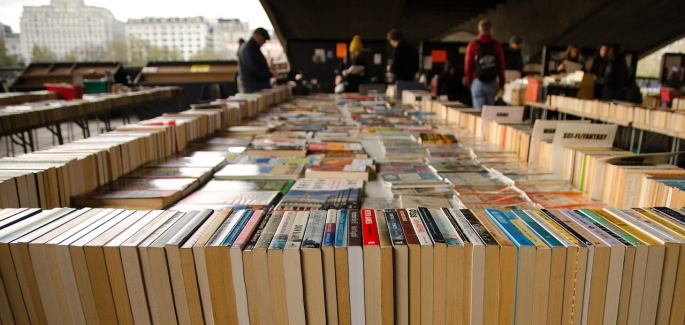
May 28, 2017 | Non categorizzato
Tax payments “We were expecting our third son. The little money we had saved up suddenly disappeared because of the unfavorable bank exchange rates, and the banks were beginning to stop lending. One day, out of the blue, we were informed that we had to pay a huge amount of taxes. Where would we find the money when we were barely surviving on what little money we had? We entrusted ourselves to God, to the Father who never abandons his children. Then we went to ask for help from the city hall and … surprise! We were the only ones who were given the opportunity of receiving financial assistance.” X. A.- Croatia Sales representative  “I work as a book representative. At my first exhibition I didn’t sell anything. The second time was the same. The third time was even worse: there was no room in the meeting hall and I had to content myself with a bad location downstairs, far from where the people gathered during breaks. There was no lift, so I had to transport the boxes in arms, sweating because of the incredible heat. Meanwhile I caught myself saying: ‘Who’s making you do this?’ Passing a chapel, I stopped in to vent with Jesus, who seemed to say to me from the tabernacle: ‘What are you doing?’ ‘God’s will,’ was my answer. ‘Well, relax then and I’ll take care of it now.’ I had to use chairs at the exhibit because there were no tables. A priest walked by and noticed a volume of a volume from a set of encyclopedias on the Saints. He exclaimed: ‘It’s not possible! I’ve been looking for that for years!’ He bought it and, after that, I didn’t stop selling.” Marta – Italy Be like a father “My father left my mother before I was born. I suffered because of his absence and never forgave him for going away. When I was around 17 years old I went looking for him, hoping to renew a relationship that never really existed. Unfortunately I was met by indifference, and his relationship with his wife wasn’t going well either. During that period I got to know young people who were living the Gospel and, through them, I got to know God better. Later, during my university studies, I began to work on a social project that put me in contact with abandoned children. The pain I had gone through had made me more sensible to the pain of others in whom I tried to love Jesus. Little by little, I became a reference point for many of those little ones, to the point that they started calling me Papa. As for the relationship with my father, it’s still a challenge: I try to see him with new eyes every time, always taking the first step.” J. L. – Brazil
“I work as a book representative. At my first exhibition I didn’t sell anything. The second time was the same. The third time was even worse: there was no room in the meeting hall and I had to content myself with a bad location downstairs, far from where the people gathered during breaks. There was no lift, so I had to transport the boxes in arms, sweating because of the incredible heat. Meanwhile I caught myself saying: ‘Who’s making you do this?’ Passing a chapel, I stopped in to vent with Jesus, who seemed to say to me from the tabernacle: ‘What are you doing?’ ‘God’s will,’ was my answer. ‘Well, relax then and I’ll take care of it now.’ I had to use chairs at the exhibit because there were no tables. A priest walked by and noticed a volume of a volume from a set of encyclopedias on the Saints. He exclaimed: ‘It’s not possible! I’ve been looking for that for years!’ He bought it and, after that, I didn’t stop selling.” Marta – Italy Be like a father “My father left my mother before I was born. I suffered because of his absence and never forgave him for going away. When I was around 17 years old I went looking for him, hoping to renew a relationship that never really existed. Unfortunately I was met by indifference, and his relationship with his wife wasn’t going well either. During that period I got to know young people who were living the Gospel and, through them, I got to know God better. Later, during my university studies, I began to work on a social project that put me in contact with abandoned children. The pain I had gone through had made me more sensible to the pain of others in whom I tried to love Jesus. Little by little, I became a reference point for many of those little ones, to the point that they started calling me Papa. As for the relationship with my father, it’s still a challenge: I try to see him with new eyes every time, always taking the first step.” J. L. – Brazil
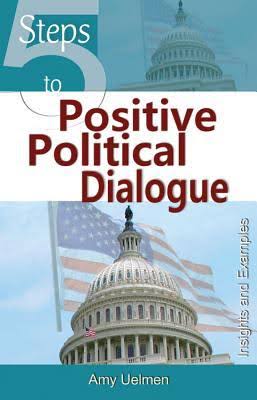
May 27, 2017 | Non categorizzato
 Over the course of the past year, ideological tension that had been simmering for decades broke out into the open. In the months leading up to the November election, people from every position on the political spectrum expressed deep concerns about the direction the country was heading. Throughout the States, strong and contrasting emotions generated a general sense of unease and division. Such feelings affected relationships in local Focolare communities as well. Many felt that the presidential election campaign forced them to make impossibly difficult choices. Conversations became heated and difficult. Anticipating this possibility, throughout 2015 the Focolare Movement had sponsored workshops based on the New City Press book, Five Steps to Positive Political Dialogue. During these workshops, participants learned and practiced the necessary skills for positive dialogue across political differences. The “five steps” include:
Over the course of the past year, ideological tension that had been simmering for decades broke out into the open. In the months leading up to the November election, people from every position on the political spectrum expressed deep concerns about the direction the country was heading. Throughout the States, strong and contrasting emotions generated a general sense of unease and division. Such feelings affected relationships in local Focolare communities as well. Many felt that the presidential election campaign forced them to make impossibly difficult choices. Conversations became heated and difficult. Anticipating this possibility, throughout 2015 the Focolare Movement had sponsored workshops based on the New City Press book, Five Steps to Positive Political Dialogue. During these workshops, participants learned and practiced the necessary skills for positive dialogue across political differences. The “five steps” include:
- Believe that a Positive Vision is Possible
- Practice Communication Skills Based on Love
- Understand Where There Is Room for Compromise—and Not
- Recognize Suffering as a Springboard for Love
- Build Relationships with Positive Action.
John Chesser (Iowa): “People paired off and they chose to discuss a topic on which they strongly disagreed. The twist was first one person shared their view and then the other person had to repeat their view back before sharing his or her own view. The results were really interesting. The exercise allowed people to gain an appreciation not just for the other person’s point of view but to reflect and reconsider their own view. Of course we didn’t solve the world’s problems in the workshops but we did find new hope and new tools that helped us to see that maybe it’s possible for us to solve these problems with dialogue.” As the November 2016 election drew near, the tension between those who held opposing opinions seemed to increase by the day, and conflict became more and more pronounced in personal life, in workplaces, and in social media communications. Marilyn Boesch (Maryland): “I was very agitated. And I remember examining my conscience, affirming my desire to work for unity, to be a person that builds bridges, not a person resigned to these divisions.” Marijo Dulay (New York): “After a few mistakes I learned to be more sensitive in the comments that I posted on Facebook so as not to hurt the people who differed from my perspective.” Simona Lucchi (Georgia): “I realized that all my preaching and all my yelling wasn’t doing any good because either way it wasn’t changing what people believed in. So I took the stance of sitting back in order to listen. When I stopped talking to actually listen, I found that I had more in common than I thought with the people I disagreed with.” 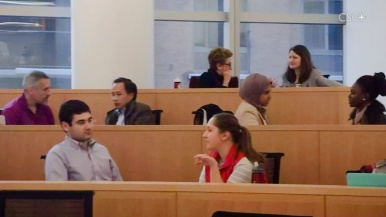 Amid the confusion, the positive proposals for dialogue presented in academic environments were well received. For example, at Fordham Law School, in the heart of Manhattan, New York, Ana Renata Dias, the Director of the Institute on Religion, Law & Lawyer’s Work, offered a workshop that aimed to promote open and constructive cultural dialogue by honing the participants’ listening skills. “Several of the participants said they had come to the workshop because they wanted to understand if dialogue is really possible among such polarization.” After a listening to a presentation with practical suggestions for approaching these difficult conversations, participants rolled up their sleeves and got to work, discovering together that even those who were most impassioned could find ways to exchange contrasting views without the conversation degenerating into a fight. Even those who said they were less than convinced by the workshop felt more hopeful. Two months later, following the inauguration of the new president, cultural tensions became more and more pronounced. Students at Georgetown Law School in Washington, DC were searching for ways to navigate these tumultuous waters. Amy Uelmen, author of the book, Five Steps to Positive Political Dialogue: Insights and Examples, proposed to her class a way forward.
Amid the confusion, the positive proposals for dialogue presented in academic environments were well received. For example, at Fordham Law School, in the heart of Manhattan, New York, Ana Renata Dias, the Director of the Institute on Religion, Law & Lawyer’s Work, offered a workshop that aimed to promote open and constructive cultural dialogue by honing the participants’ listening skills. “Several of the participants said they had come to the workshop because they wanted to understand if dialogue is really possible among such polarization.” After a listening to a presentation with practical suggestions for approaching these difficult conversations, participants rolled up their sleeves and got to work, discovering together that even those who were most impassioned could find ways to exchange contrasting views without the conversation degenerating into a fight. Even those who said they were less than convinced by the workshop felt more hopeful. Two months later, following the inauguration of the new president, cultural tensions became more and more pronounced. Students at Georgetown Law School in Washington, DC were searching for ways to navigate these tumultuous waters. Amy Uelmen, author of the book, Five Steps to Positive Political Dialogue: Insights and Examples, proposed to her class a way forward. 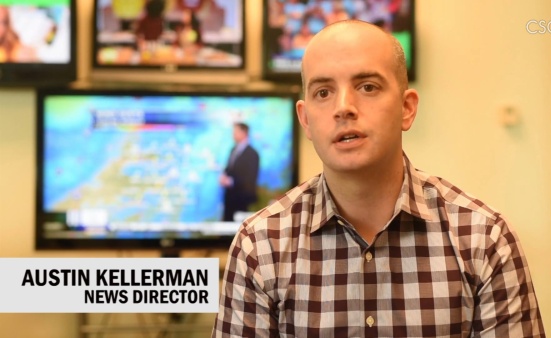 “We realized that often in any conversation there will be caricatures, mischaracterizations, misunderstandings, and information that is simply wrong. We agreed all together to be open to correction and to working out our difficulties when different perspectives collide.” In Arkansas, a traditionally conservative state, some were enthusiastic about the election of the new president while others were angry. Austin Kellerman leads a newsroom in Little Rock, the state’s capital. Together, he and his colleagues decided to launch an appeal for unity. “Our team of journalists felt like we had the chance to be a voice for our city, so in one of the more heated moments one of our more experienced reporters put together a commentary calling for unity and an open mind: he said, ‘There is no them, no us. There is We. We the people.’” “Obviously, this alone will not fix things or change anybody’s view,” Kellerman continues, “but hopefully it gives people permission to think beyond their singular view. We are going to try to keep the dialogue going and staying faithful to representing all sides and voices.” Source: New City Press (New York)
“We realized that often in any conversation there will be caricatures, mischaracterizations, misunderstandings, and information that is simply wrong. We agreed all together to be open to correction and to working out our difficulties when different perspectives collide.” In Arkansas, a traditionally conservative state, some were enthusiastic about the election of the new president while others were angry. Austin Kellerman leads a newsroom in Little Rock, the state’s capital. Together, he and his colleagues decided to launch an appeal for unity. “Our team of journalists felt like we had the chance to be a voice for our city, so in one of the more heated moments one of our more experienced reporters put together a commentary calling for unity and an open mind: he said, ‘There is no them, no us. There is We. We the people.’” “Obviously, this alone will not fix things or change anybody’s view,” Kellerman continues, “but hopefully it gives people permission to think beyond their singular view. We are going to try to keep the dialogue going and staying faithful to representing all sides and voices.” Source: New City Press (New York)
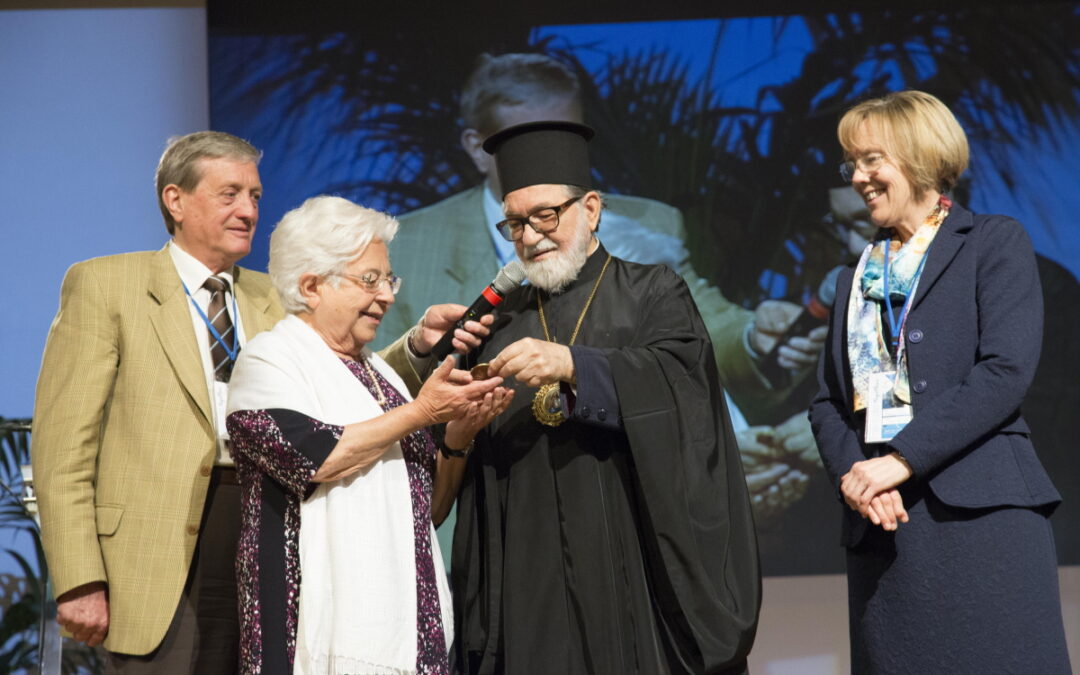
May 26, 2017 | Non categorizzato
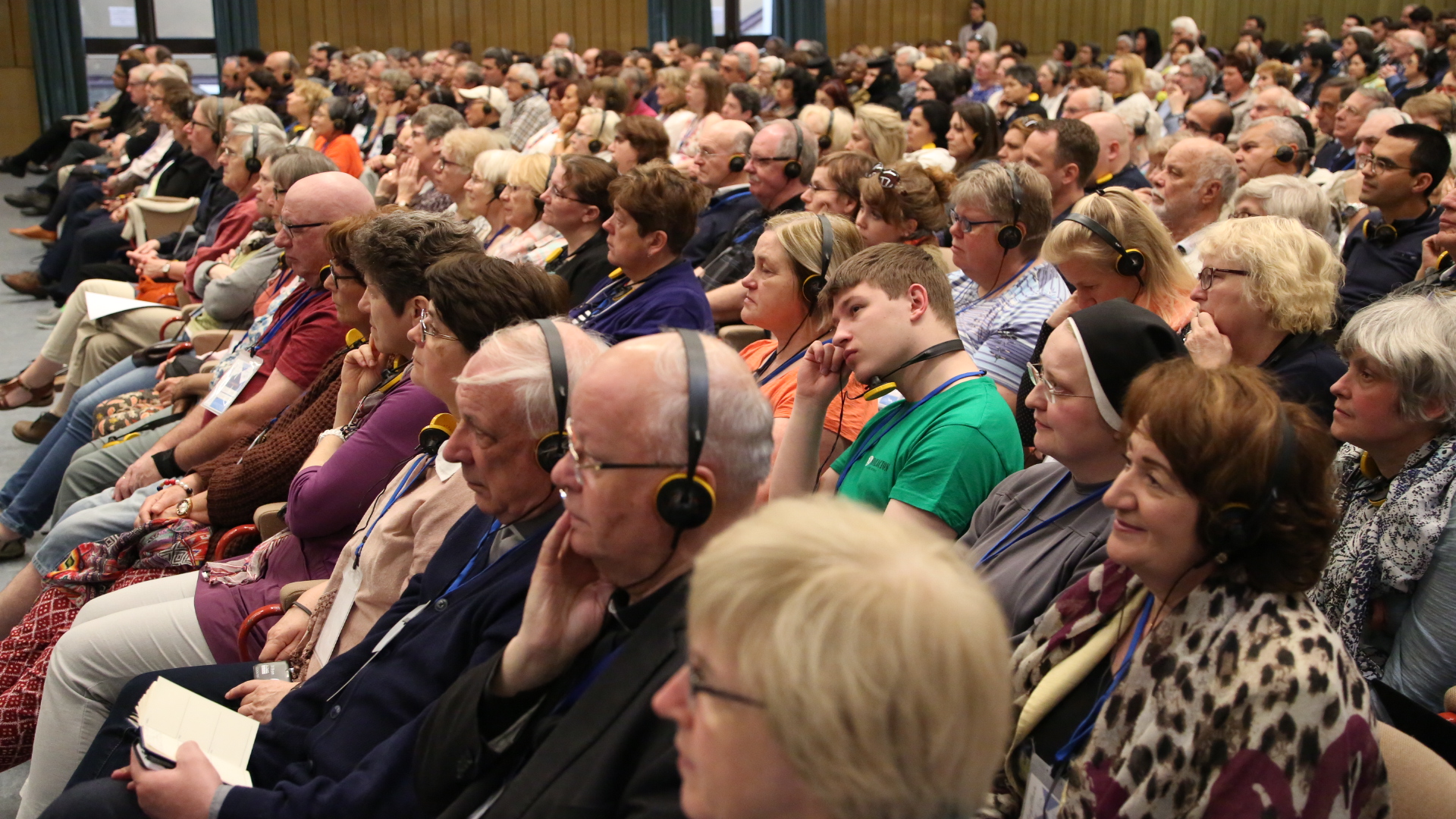
© CSC Audiovisivi – Caris Mendes
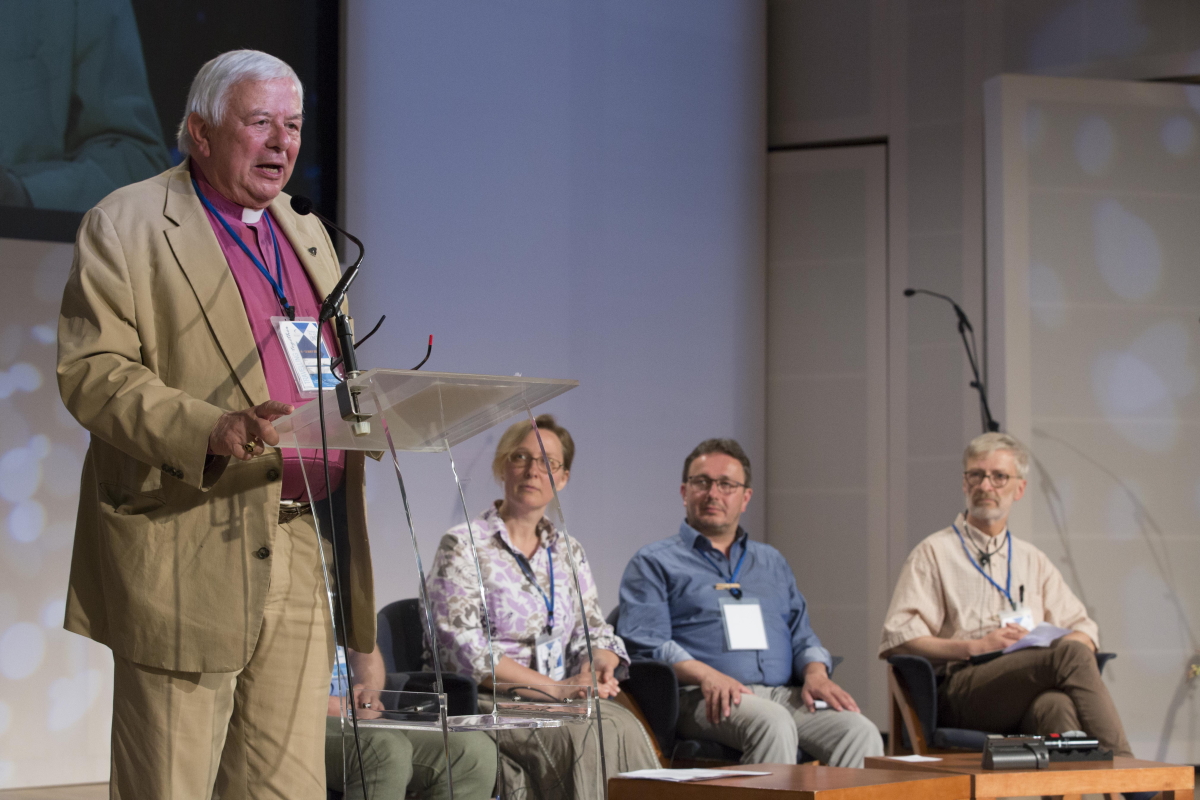
Emeritus Bishop Christian Krause,
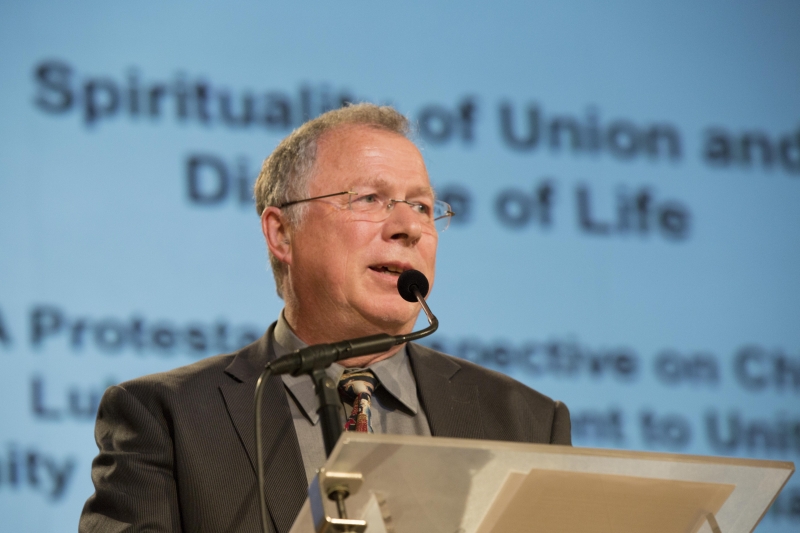
Rev Dr Martin Robra (WCC)
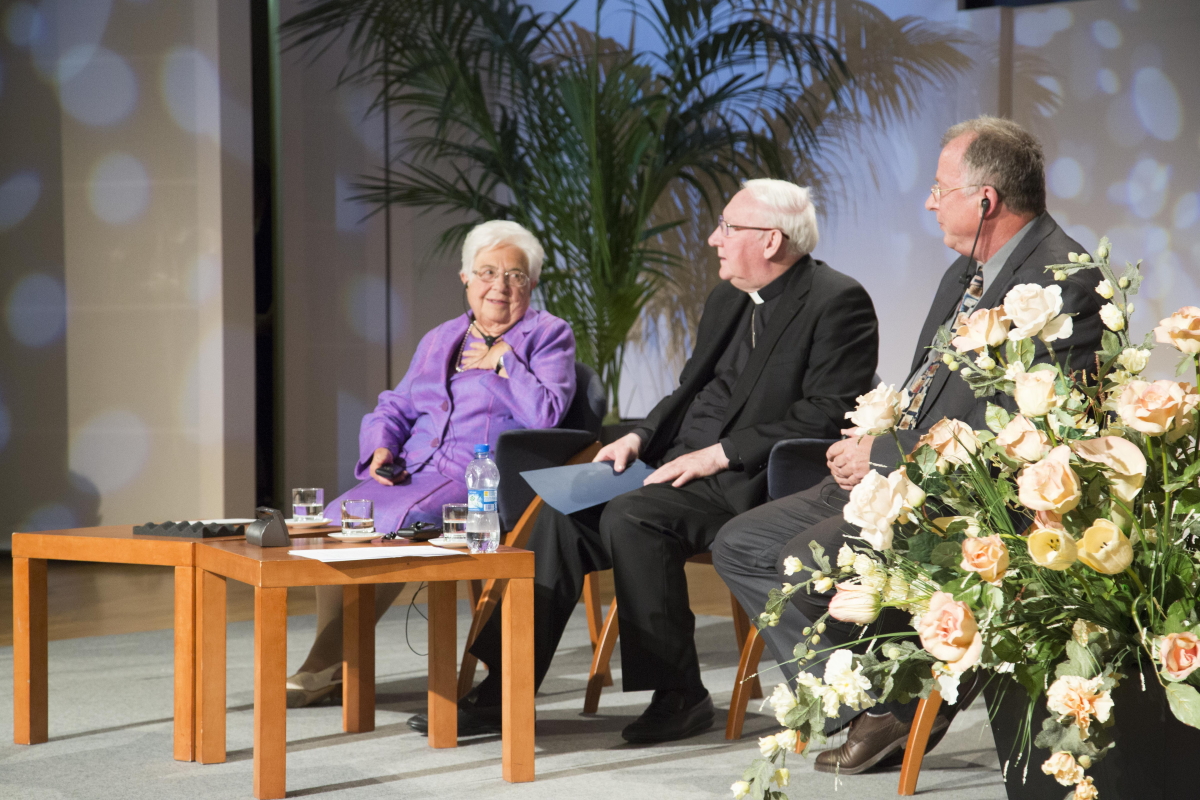
Maria Voce with Bishop Brian Farrel
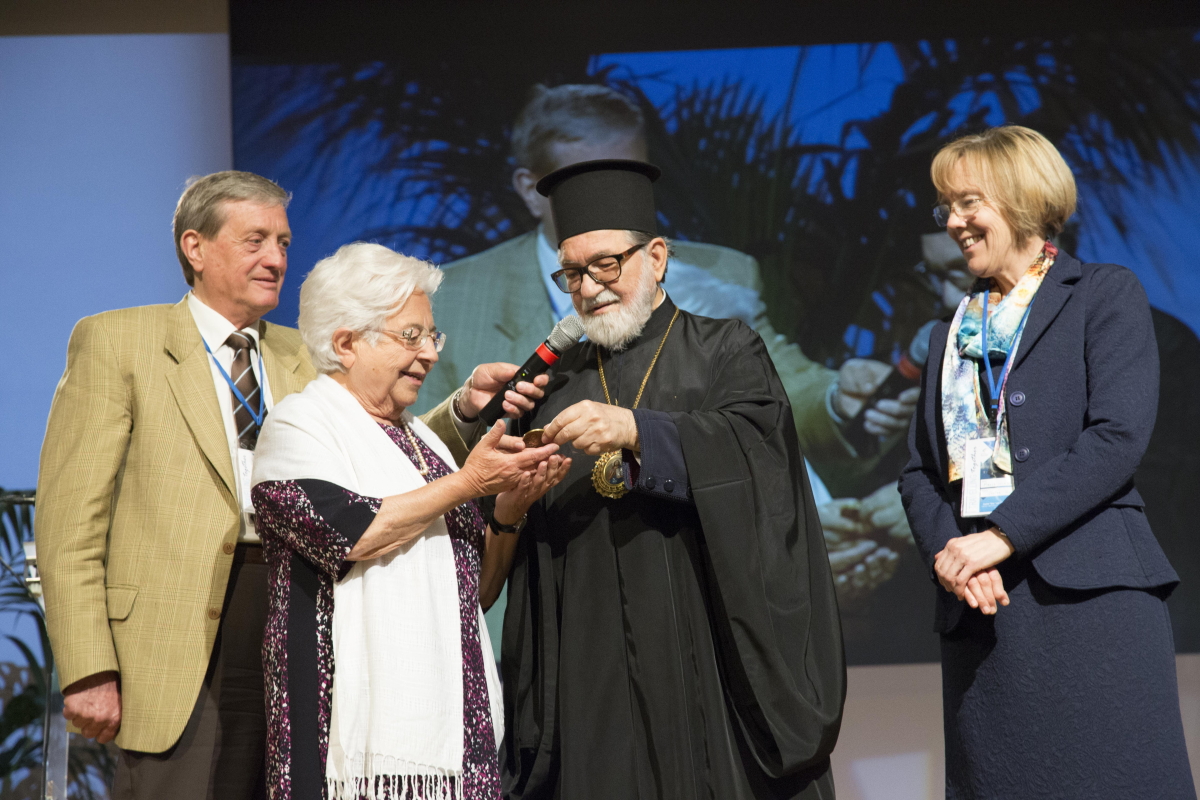
The Metropolitan Gennadios Zervos presented an “Historic Medal” to the president of the Focolare
May 26, 2017 | Non categorizzato
For Muslims, May 26 signals the start of the Sacred Month of Ramadan. It is the ninth month of the Islamic year and the most important. It is a sacred time during which the revelation of the Koran to the Prophet Muhammad is commemorated and through fasting (the fourth pillar of the Muslim faith), a special purification is sought. Ramadan is a month of total fasting from dawn to dusk.
May 25, 2017 | Non categorizzato
The meeting, promoted by the Focolare Movement, will focus on Synodality. The meeting is open to priests, deacons, men and women religious, ministers of various churches and lay people, both young people and adults, who are interested in parish life. For more details and registration contact your nearest Focolare Centre or write to email address: netwalking2017 @ focolare.org Invitation (Italian)
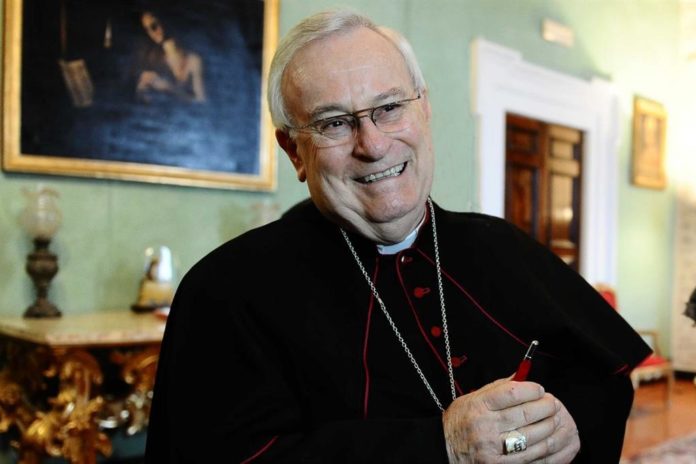
May 25, 2017 | Focolare Worldwide, Senza categoria
 Maria Voce says that it was “with great pleasure” that she learnt of Cardinal Gualtiero Bassetti’s appointment as new President of the Italian Episcopal Conference (CEI) on May 24, 2017. In a letter congratulating him, the President of the Focolare Movement expresses her “most sincere wishes for this prestigious assignment, a clear sign of trust on behalf of the Holy Father.” “His sense of collegiality and love, which are his trademarks,” continues the President, “will be a great gift for the entire ecclesial and civil community of Italy, especially for those who most resemble Jesus Crucified and Abandoned “. The Focolare Movement in Italy also congratulated the new President of the Bishops’ Conference, saying his appointment is “a source of great joy”. In a press release, it emphasizes his “particular style in always being close to the people, to workers, migrants, families, in their situations of crisis and in their search for truth.” The Movement wishes that he may “experience in this new task an ever-renewed courage to face the countless challenges, comforted by the collegiality which is a witness to the fraternal aspect of the Church.” Born in 1942 in Marradi near Florence, Gualtiero Bassetti was ordained a priest in 1966. In 1994 he was appointed Bishop of Massa Marittima, then Bishop of Arezzo (1998) and in 2009 Archbishop of Perugia. In 2014, Pope Francis welcomed him into the College of Cardinals.
Maria Voce says that it was “with great pleasure” that she learnt of Cardinal Gualtiero Bassetti’s appointment as new President of the Italian Episcopal Conference (CEI) on May 24, 2017. In a letter congratulating him, the President of the Focolare Movement expresses her “most sincere wishes for this prestigious assignment, a clear sign of trust on behalf of the Holy Father.” “His sense of collegiality and love, which are his trademarks,” continues the President, “will be a great gift for the entire ecclesial and civil community of Italy, especially for those who most resemble Jesus Crucified and Abandoned “. The Focolare Movement in Italy also congratulated the new President of the Bishops’ Conference, saying his appointment is “a source of great joy”. In a press release, it emphasizes his “particular style in always being close to the people, to workers, migrants, families, in their situations of crisis and in their search for truth.” The Movement wishes that he may “experience in this new task an ever-renewed courage to face the countless challenges, comforted by the collegiality which is a witness to the fraternal aspect of the Church.” Born in 1942 in Marradi near Florence, Gualtiero Bassetti was ordained a priest in 1966. In 1994 he was appointed Bishop of Massa Marittima, then Bishop of Arezzo (1998) and in 2009 Archbishop of Perugia. In 2014, Pope Francis welcomed him into the College of Cardinals.
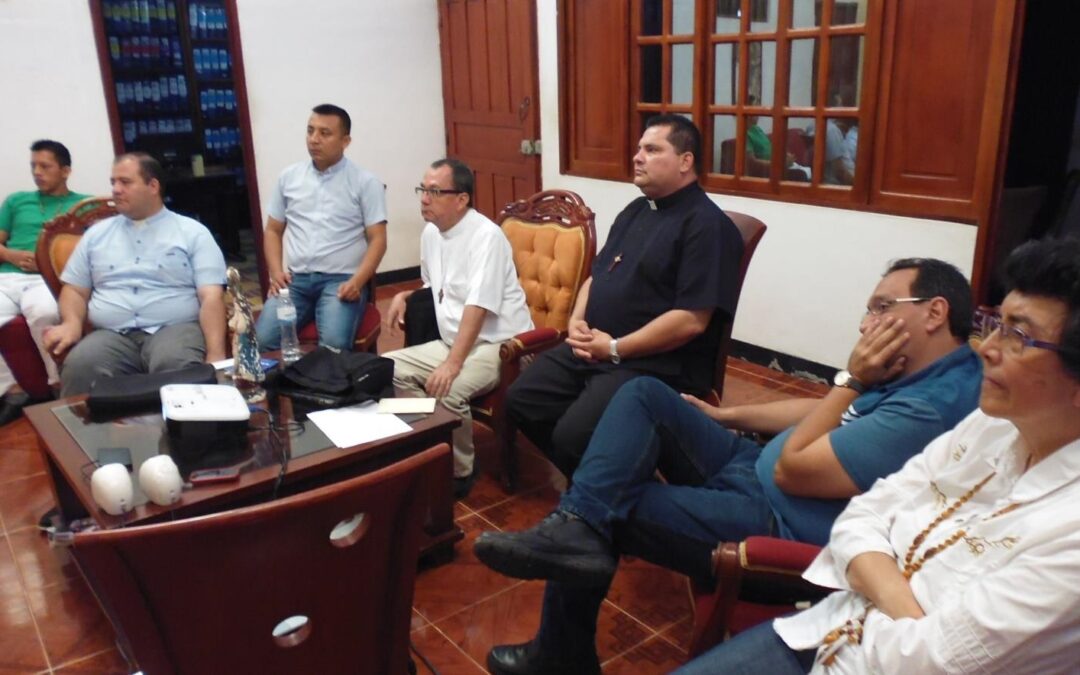
May 25, 2017 | Focolare Worldwide
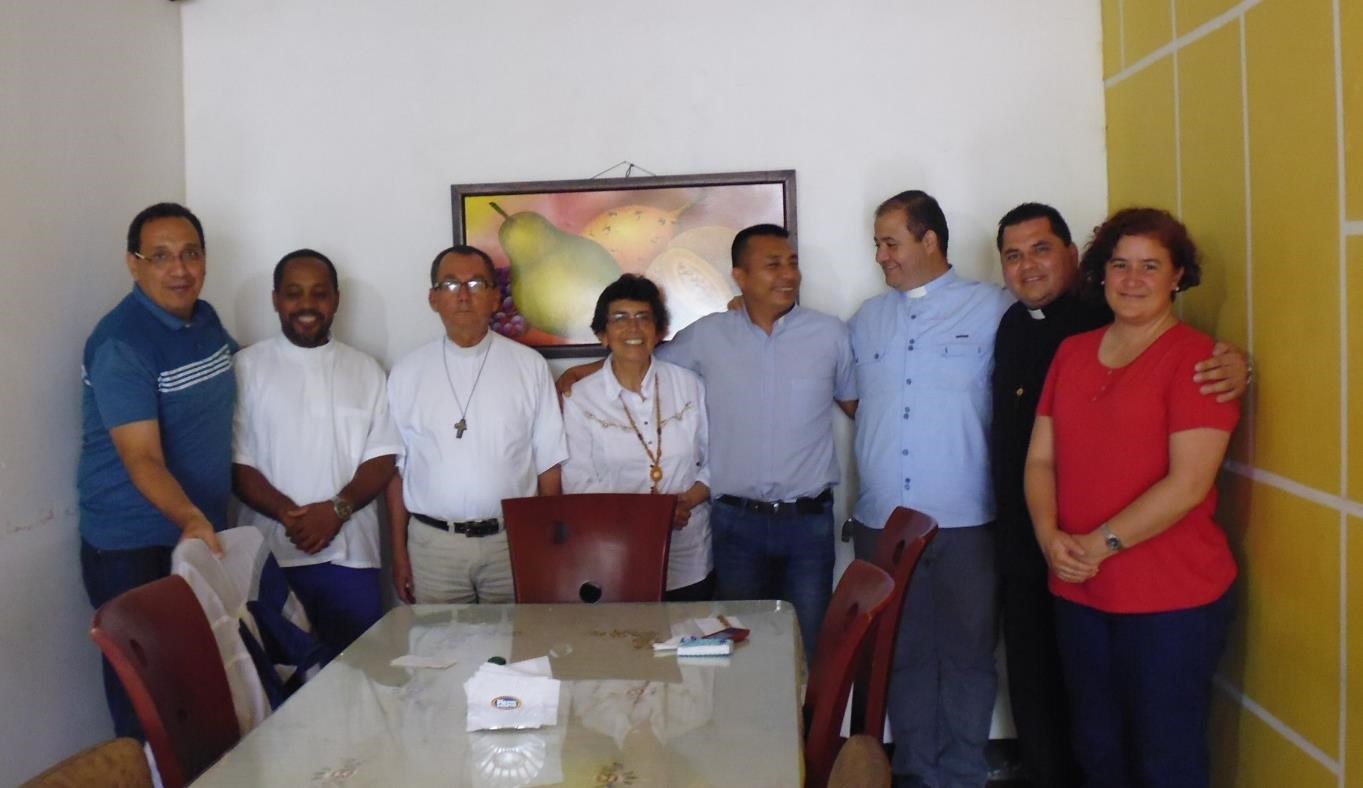 Elizabeth and Allejandra from the women’s focolare in Bogota write: “We went to Mocoa with Fr Juan Carlos Almario, a priest and a focolarino, to take monies to them that had been collected by the Focolare community of Colombia. We were there in the name of the entire Focolare family, to take them their love, prayers and concrete assistance, not only from the community in Colombia but also from many parts of the world that had become involved in this tragedy.” “Several priests from the Movement – pastors from Mocoa – welcomed us with much joy. Then we met the people. Every one of them had a painful story to tell us that was linked to the catastrophe, and we wept with them.” They recalled that April 1st night, the mudslides and the “love race” that broke out among them in reaching the victims. The priests and their bishop, Luis Maldonado, along with other parish priests, got organized to stand by the wounded in the hospitals, to welcome families in search of loved ones and to bury their dead… Then, with the help of other parishioners they set up a canteen to provide meals for people who were without water and electricity, and to share with the public workers that were involved in the relief effort. They arranged the assistance materials as they arrived, so that they could be distributed to those in need, along with surgical masks to protect from the overpowering odours. “The recount of their efforts had a strong Marian quality, silent but concrete, that reached the people through them and met many of the needs that resulted from the tragedy.”
Elizabeth and Allejandra from the women’s focolare in Bogota write: “We went to Mocoa with Fr Juan Carlos Almario, a priest and a focolarino, to take monies to them that had been collected by the Focolare community of Colombia. We were there in the name of the entire Focolare family, to take them their love, prayers and concrete assistance, not only from the community in Colombia but also from many parts of the world that had become involved in this tragedy.” “Several priests from the Movement – pastors from Mocoa – welcomed us with much joy. Then we met the people. Every one of them had a painful story to tell us that was linked to the catastrophe, and we wept with them.” They recalled that April 1st night, the mudslides and the “love race” that broke out among them in reaching the victims. The priests and their bishop, Luis Maldonado, along with other parish priests, got organized to stand by the wounded in the hospitals, to welcome families in search of loved ones and to bury their dead… Then, with the help of other parishioners they set up a canteen to provide meals for people who were without water and electricity, and to share with the public workers that were involved in the relief effort. They arranged the assistance materials as they arrived, so that they could be distributed to those in need, along with surgical masks to protect from the overpowering odours. “The recount of their efforts had a strong Marian quality, silent but concrete, that reached the people through them and met many of the needs that resulted from the tragedy.” 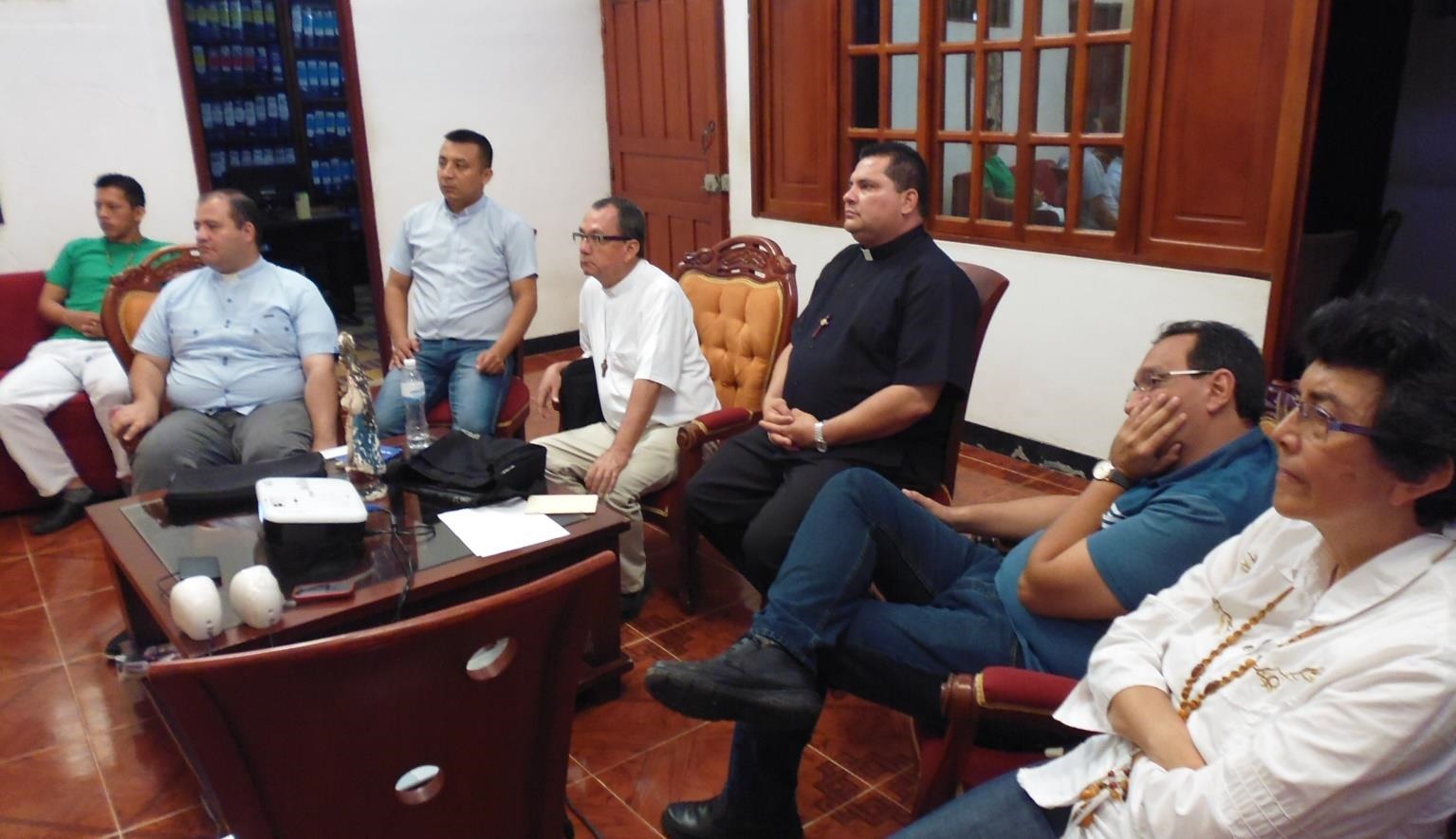 “We wanted to keep in our hearts the topic that the entire Movement is focusing on this year, and it seemed so in tune with the situation we found ourselves in: Jesus Forsaken.” In the spontaneous communion that was born, each one of us sought to see the suffering that was being experienced, seeing in it a face of the infinite suffering Jesus experienced on the Cross, which gives meaning to so much suffering.” One of the priests said, during lunch, that those hours spent with each other were like an “oases” that managed to detach him from the nightmare. “Then, together with Fr Oscar, we travelled around the places that were hit by the mudslides, some quarters completely wiped out. Others had been turned into cemeteries with houses demolished by huge boulders, with uprooted trees everywhere. The love, prayers and assistance reached all the way to Mocoa as it goes through this living hell, and it helped to uplift the victims of this tragedy somewhat. The trip also included a visit to the city of Neiva in southern Colombia: “We wanted to visit our local Focolare community and, with them, to prepare for the upcoming Mariapolis that will be held in July at an archaeological park where there are intact remains of some of the most ancient indigenous cultures.” Amidst the pain and suffering of natural distaster, the Focolare in Colombia is focused on the future. See also:News from Colombia
“We wanted to keep in our hearts the topic that the entire Movement is focusing on this year, and it seemed so in tune with the situation we found ourselves in: Jesus Forsaken.” In the spontaneous communion that was born, each one of us sought to see the suffering that was being experienced, seeing in it a face of the infinite suffering Jesus experienced on the Cross, which gives meaning to so much suffering.” One of the priests said, during lunch, that those hours spent with each other were like an “oases” that managed to detach him from the nightmare. “Then, together with Fr Oscar, we travelled around the places that were hit by the mudslides, some quarters completely wiped out. Others had been turned into cemeteries with houses demolished by huge boulders, with uprooted trees everywhere. The love, prayers and assistance reached all the way to Mocoa as it goes through this living hell, and it helped to uplift the victims of this tragedy somewhat. The trip also included a visit to the city of Neiva in southern Colombia: “We wanted to visit our local Focolare community and, with them, to prepare for the upcoming Mariapolis that will be held in July at an archaeological park where there are intact remains of some of the most ancient indigenous cultures.” Amidst the pain and suffering of natural distaster, the Focolare in Colombia is focused on the future. See also:News from Colombia
May 24, 2017 | Non categorizzato
On Saturday, May 20, the elementary school of Largo Baccelli located in Pesaro (Italy) was dedicated to Chiara Lubich, founder of the Focolare Movement. The Mayor, the Councillor for Development and the Councillor for Dialogue spoke at the ceremony. The latter stated that “streets, public squares and kindergartens have been named after Chiara Lubich, but this is the first time in Italy that an elementary school has been dedicated to her, who had been a primary school teacher. ” Children and their families participated in the event, as well as Giuseppe Milan, Professor of Pedagogy and Intercultural Studies at the University of Padua, who spoke about “Chiara Lubich and the educational relationship”.
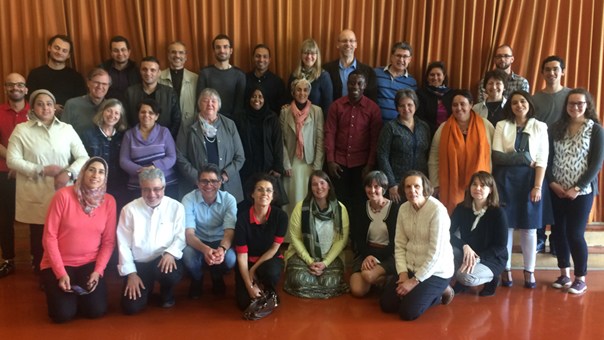
May 24, 2017 | Focolare Worldwide
 «What lies in our heart? Towards what is it oriented? How can we learn to know it better? Aren’t the paths of the heart like roller coasters?» These are some of the issues which stimulated the dialogue between Christians and Muslims participating in a meeting and were visible signs of the desire of both groups to share. The meeting was held at the Muslim cultural center at the end of April and ended in the evangelic parish. It started with the theological reflections of the evangelical pastor, Martin Hoegger, and the Imam, Djalel Meskaldji. Both considered how the Bible and the Koran amplify the meaning of the word “heart,” not only as the seat of sentiments, but rather as the center of our being, and that space where we find dialogue with our own selves, with the others and with God. «The most common disease is not the flu, but schlerosis, that is, the hardening of the heart», M. Hoegger ironically said. And Djalel Meskaldji added: «According to the Koran, the heart can be even harder than stones. It is covered with rust.» They underlined in fact, that the heart is the most precious thing we have, but experience tells us that often it can harden. This leads to the consideration that the “custody of the heart” is a frequent theme in the Bible and in the Fathers of the Church, theologians of the first centuries. And so, to keep a strong hold on one’s heart is a real “spiritual battle.” This would be, according to Meskaldji, the real meaning of the word “Jihad,” according to Muslim tradition. Pastor Hoegger recalled that the biblical prophets «announced that God will one day chisel his law of love in our hearts and put in us a new heart, a heart of flesh.» Furthermore: «Christians turn to Jesus in whom this promise was fulfilled.» On his part, the Imam stressed that: «the Koran repeatedly affirms that the heart needs to be purified by the limpid water of the word of God. It wakens my heart, nurtures it, breaks its toughness and cleans it of the rust that is mostly the outcome of pride.» From Algiers, in live streaming Sheherazad and Farouk, Muslims, recounted how the discovery of God who is love, through the spirituality of the Focolare Movement, has revolutionised their lives as a couple: «We have learned how to love the other for himself, and let God act in the heart of each one so as to be a living witness of the unity of God. But above all, we experience God’s grace which encloses our heart with his mercy.» Then, Anne Catherine Reymond and Fabien, Christians of the Sant’Egidio Community, shared their pathway, narrating how the presence of God has transformed their hearts through prayer and fraternal life, and also through their contact with the poor. «Faith in God is a compass in the challenges which a couple has to face, especially in the education of their children. They push us to place ourselves on a second plane so as to put God in the first place.» What came to light in the group dialogues was what Christians and Muslims have in common. A Muslim woman from Lyon concluded: «In an era in which many try to divide our communities, it is very important to gather together in an atmosphere of mutual esteem!» In this joyful day the participants unanimously expressed the desire to continue the dialogue, also through new encounters.
«What lies in our heart? Towards what is it oriented? How can we learn to know it better? Aren’t the paths of the heart like roller coasters?» These are some of the issues which stimulated the dialogue between Christians and Muslims participating in a meeting and were visible signs of the desire of both groups to share. The meeting was held at the Muslim cultural center at the end of April and ended in the evangelic parish. It started with the theological reflections of the evangelical pastor, Martin Hoegger, and the Imam, Djalel Meskaldji. Both considered how the Bible and the Koran amplify the meaning of the word “heart,” not only as the seat of sentiments, but rather as the center of our being, and that space where we find dialogue with our own selves, with the others and with God. «The most common disease is not the flu, but schlerosis, that is, the hardening of the heart», M. Hoegger ironically said. And Djalel Meskaldji added: «According to the Koran, the heart can be even harder than stones. It is covered with rust.» They underlined in fact, that the heart is the most precious thing we have, but experience tells us that often it can harden. This leads to the consideration that the “custody of the heart” is a frequent theme in the Bible and in the Fathers of the Church, theologians of the first centuries. And so, to keep a strong hold on one’s heart is a real “spiritual battle.” This would be, according to Meskaldji, the real meaning of the word “Jihad,” according to Muslim tradition. Pastor Hoegger recalled that the biblical prophets «announced that God will one day chisel his law of love in our hearts and put in us a new heart, a heart of flesh.» Furthermore: «Christians turn to Jesus in whom this promise was fulfilled.» On his part, the Imam stressed that: «the Koran repeatedly affirms that the heart needs to be purified by the limpid water of the word of God. It wakens my heart, nurtures it, breaks its toughness and cleans it of the rust that is mostly the outcome of pride.» From Algiers, in live streaming Sheherazad and Farouk, Muslims, recounted how the discovery of God who is love, through the spirituality of the Focolare Movement, has revolutionised their lives as a couple: «We have learned how to love the other for himself, and let God act in the heart of each one so as to be a living witness of the unity of God. But above all, we experience God’s grace which encloses our heart with his mercy.» Then, Anne Catherine Reymond and Fabien, Christians of the Sant’Egidio Community, shared their pathway, narrating how the presence of God has transformed their hearts through prayer and fraternal life, and also through their contact with the poor. «Faith in God is a compass in the challenges which a couple has to face, especially in the education of their children. They push us to place ourselves on a second plane so as to put God in the first place.» What came to light in the group dialogues was what Christians and Muslims have in common. A Muslim woman from Lyon concluded: «In an era in which many try to divide our communities, it is very important to gather together in an atmosphere of mutual esteem!» In this joyful day the participants unanimously expressed the desire to continue the dialogue, also through new encounters.
May 23, 2017 | Non categorizzato
https://vimeo.com/214575260
May 21, 2017 | Non categorizzato
May 21 is an important date for those who work for international, intercultural and interreligious dialogue and cooperation. On this day the whole world celebrates the World Day of Cultural Diversity for Dialogue and Development, established by the United Nations in 2002 following the adoption by UNESCO of the Universal Declaration on Cultural Diversity in 2001. The Day is an invitation to all – civil society, organizations, individuals, associations – to promote collaboration and encounter between peoples and cultures, with a view to enhancement, support and mutual respect
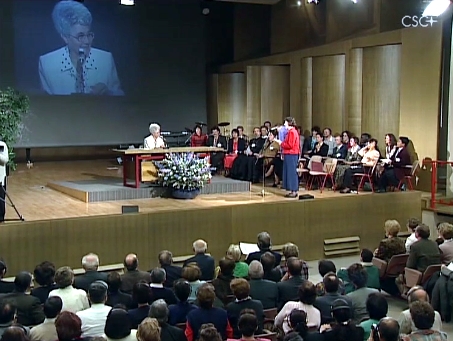
May 21, 2017 | Non categorizzato
In this 500th anniversary year of the Reformation, there has been new drive towards Christian unity, from the historic meeting at Lund in Sweden to the Pope’s recent journey to Egypt. The Focolare Movement is increasing its commitment to what is known as the “dialogue of life” or “dialogue of the people”. This was reaffirmed in the Ottmaring Declaration (21.02.2017) and its outworking happens daily in the efforts of thousands of Christians throughout the world. The 59th “Ecumenical Week” ended recently at Castel Gandolfo (9th-13th May) with 700 participants from 69 countries and many parts of the world. 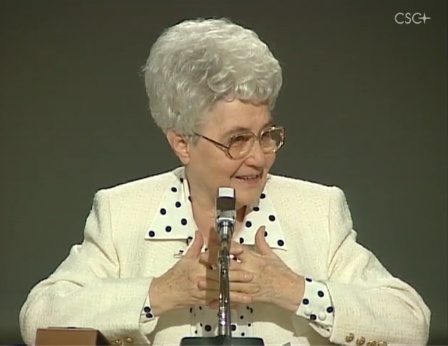 Chiara Lubich was asked about this kind of dialogue on the 4th April 1997 in the context of an ecumenical gathering and she replied spontaneously: “Veronica, an Anglican focolarina from Great Britain asks what our specific contribution to the unification of the Churches could be. Our contribution should be seen in the context of the whole field of ecumenism. We know that there is the dialogue of charity, which is very important. It probably goes back to the times of Athenagoras, when Pope Paul went to visit Athenagoras and Athenagoras went to see Pope Paul. The dialogue of charity helps us to feel that we are brothers and sisters and that we help one another. Then we pray together, which is a dialogue with God, a dialogue that goes through God. This too is very important especially during the Week of Prayer for Christian unity. In addition, you all know that there is the theological dialogue, carried out by experts; that too is going ahead despite the fact that some people say ecumenism is not going ahead. Instead, it is going ahead. We bring a new kind of dialogue. It is the dialogue of the people. It arose out of the spirituality [of unity] that we live in all the various Churches; there are members of 300 Churches who are in the Movement. This dialogue was generated by our spirituality because it is communitarian, it binds us to one another; it brings us together. If I love you and you love me, what is established between us? Jesus in the midst. But then Jesus unites us, as St Paul says, “What can separate us from the love of Christ?” (Rm. 8:35) Likewise, we say, “What will separate us?” Charity unites us. Christ himself unites us. No one can separate us if we go ahead with our spirituality.
Chiara Lubich was asked about this kind of dialogue on the 4th April 1997 in the context of an ecumenical gathering and she replied spontaneously: “Veronica, an Anglican focolarina from Great Britain asks what our specific contribution to the unification of the Churches could be. Our contribution should be seen in the context of the whole field of ecumenism. We know that there is the dialogue of charity, which is very important. It probably goes back to the times of Athenagoras, when Pope Paul went to visit Athenagoras and Athenagoras went to see Pope Paul. The dialogue of charity helps us to feel that we are brothers and sisters and that we help one another. Then we pray together, which is a dialogue with God, a dialogue that goes through God. This too is very important especially during the Week of Prayer for Christian unity. In addition, you all know that there is the theological dialogue, carried out by experts; that too is going ahead despite the fact that some people say ecumenism is not going ahead. Instead, it is going ahead. We bring a new kind of dialogue. It is the dialogue of the people. It arose out of the spirituality [of unity] that we live in all the various Churches; there are members of 300 Churches who are in the Movement. This dialogue was generated by our spirituality because it is communitarian, it binds us to one another; it brings us together. If I love you and you love me, what is established between us? Jesus in the midst. But then Jesus unites us, as St Paul says, “What can separate us from the love of Christ?” (Rm. 8:35) Likewise, we say, “What will separate us?” Charity unites us. Christ himself unites us. No one can separate us if we go ahead with our spirituality.  Therefore, by living this spirituality in the various Churches – Catholic, Anglican, Lutheran, Methodist, and so on – without even thinking about it, a people was born. It flowered from this spirituality, which generates a people. Then what happened? What happened was that by living the spirituality together, by getting to know one another, by loving one another and growing in our mutual love, we discovered that we have things in common, that we are already one family, that we are already a Christian people. I have baptism, and so does Veronica, and so do you. I have the Old Testament and you do too. I have the New Testament and you have it too. Then we have the Councils and many other things in common. If we have all this in common, why don’t we come together into one family and into one people? This is our characteristic contribution, which is essential. On the other hand, we are not the ones who bring it. It is a charism from heaven for our times, which are ecumenical times. It is the charism of unity, which has very much to do with ecumenism.” Source: The Chiara Lubich Centre
Therefore, by living this spirituality in the various Churches – Catholic, Anglican, Lutheran, Methodist, and so on – without even thinking about it, a people was born. It flowered from this spirituality, which generates a people. Then what happened? What happened was that by living the spirituality together, by getting to know one another, by loving one another and growing in our mutual love, we discovered that we have things in common, that we are already one family, that we are already a Christian people. I have baptism, and so does Veronica, and so do you. I have the Old Testament and you do too. I have the New Testament and you have it too. Then we have the Councils and many other things in common. If we have all this in common, why don’t we come together into one family and into one people? This is our characteristic contribution, which is essential. On the other hand, we are not the ones who bring it. It is a charism from heaven for our times, which are ecumenical times. It is the charism of unity, which has very much to do with ecumenism.” Source: The Chiara Lubich Centre
May 20, 2017 | Non categorizzato
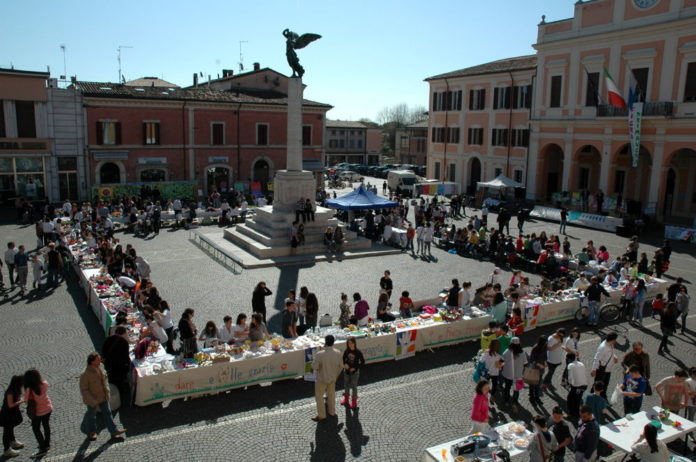
May 19, 2017 | Focolare Worldwide
 “We asked the mayor of Savignano sul Rubicone to send a message of fraternity by adding some color to a public space,” say Matteo and Giosuè, Italian members of Youth for a United World. “They gave us an underpass connecting the main road to the train station. We created a mural where we wrote, next to the bridge that symbolizes the city, ‘Let’s bridge’ and “Global citizens” in a number of languages, with the help of a number of migrant kids who came through.” The result was a collective work, a visible sign of peace. The mural project was also an opportunity to make contact with the head of the Ravenna mosque, Imam Mustapha Soufi (president of the European Islamic Conference of Imams). After three months of work the underpass was inaugurated with two mayors and a member of European Parliament who, just three days after the terrible events in Brussels (this was March 2016), had asked to participate in this type of project, one promoted by kids that instils hope in a peaceful future. The underpass became a symbolic place. Matteo and Giosuè are both “ambassadors of peace,” an honorary title bestowed on them by Universal Circle of Ambassadors of Peace, headquartered in Geneva, which has the goal of spotlighting all those who work for peace, especially young people and children ages 6 to 18. For a number of years, they have organized a spring fair in their region, together with other young people. This is a Young for Unity project that, in collaboration with schools, associations and local governments, hopes to create activities promoting peace and fraternity. “Last July,” continues Matteo, “together with 50 members of Young for Unity, we went to World Youth Day. Pope Francis concluded his words with ‘May God bless your dreams.’ There are so many dreams that we want to achieve, especially to be builders of a world of peace and fraternity.” After an earthquake struck central Italy, they felt called once again. Among the many ideas was one to put on two dinners in Modena and Cesena to raise funds. “We got close to 100 kids involved and served 350 people at table, raising more than 4,000 Euros.” The dinner at Cesena included Imam Mustapha, who asked them to come and meet young Muslims to start on a path for peace at the Ravenna mosque, one of the four official mosques in Italy. They were warmly welcomed on January 22. They took off their shoes as they entered, and the girls covered their heads. They sat in a circle, girls to one side, boys to the other. “We started playing a quiz game on the Bible and Quran – there are so many things in common. We are not so different, and all of us wanted to build a more united world. At noon we stood up and, holding hands, we had a minute of silence to ask God for the gift of peace.” After a meal of cous cous prepared by the Muslim mothers, the group had a guided tour of the mosque and a moment of dialogue. “Peace is made by the young,” says the imam, “we must unite and change our way of thinking in order to bring down the walls of prejudice.” Their Muslim friends asked to be able to visit a Catholic church next. “It feels fantastic,” concludes Giosuè. “To build peace we need to respect each other and not be afraid of differences. How can we not think of those Muslim kids that we meet at school or perhaps come across on the street? They too are our brothers, builders of peace together with us, and not terrorists like the media wants us to believe.”
“We asked the mayor of Savignano sul Rubicone to send a message of fraternity by adding some color to a public space,” say Matteo and Giosuè, Italian members of Youth for a United World. “They gave us an underpass connecting the main road to the train station. We created a mural where we wrote, next to the bridge that symbolizes the city, ‘Let’s bridge’ and “Global citizens” in a number of languages, with the help of a number of migrant kids who came through.” The result was a collective work, a visible sign of peace. The mural project was also an opportunity to make contact with the head of the Ravenna mosque, Imam Mustapha Soufi (president of the European Islamic Conference of Imams). After three months of work the underpass was inaugurated with two mayors and a member of European Parliament who, just three days after the terrible events in Brussels (this was March 2016), had asked to participate in this type of project, one promoted by kids that instils hope in a peaceful future. The underpass became a symbolic place. Matteo and Giosuè are both “ambassadors of peace,” an honorary title bestowed on them by Universal Circle of Ambassadors of Peace, headquartered in Geneva, which has the goal of spotlighting all those who work for peace, especially young people and children ages 6 to 18. For a number of years, they have organized a spring fair in their region, together with other young people. This is a Young for Unity project that, in collaboration with schools, associations and local governments, hopes to create activities promoting peace and fraternity. “Last July,” continues Matteo, “together with 50 members of Young for Unity, we went to World Youth Day. Pope Francis concluded his words with ‘May God bless your dreams.’ There are so many dreams that we want to achieve, especially to be builders of a world of peace and fraternity.” After an earthquake struck central Italy, they felt called once again. Among the many ideas was one to put on two dinners in Modena and Cesena to raise funds. “We got close to 100 kids involved and served 350 people at table, raising more than 4,000 Euros.” The dinner at Cesena included Imam Mustapha, who asked them to come and meet young Muslims to start on a path for peace at the Ravenna mosque, one of the four official mosques in Italy. They were warmly welcomed on January 22. They took off their shoes as they entered, and the girls covered their heads. They sat in a circle, girls to one side, boys to the other. “We started playing a quiz game on the Bible and Quran – there are so many things in common. We are not so different, and all of us wanted to build a more united world. At noon we stood up and, holding hands, we had a minute of silence to ask God for the gift of peace.” After a meal of cous cous prepared by the Muslim mothers, the group had a guided tour of the mosque and a moment of dialogue. “Peace is made by the young,” says the imam, “we must unite and change our way of thinking in order to bring down the walls of prejudice.” Their Muslim friends asked to be able to visit a Catholic church next. “It feels fantastic,” concludes Giosuè. “To build peace we need to respect each other and not be afraid of differences. How can we not think of those Muslim kids that we meet at school or perhaps come across on the street? They too are our brothers, builders of peace together with us, and not terrorists like the media wants us to believe.”
May 18, 2017 | Non categorizzato
https://vimeo.com/214590907
May 17, 2017 | Non categorizzato
Since 2005, World Telecommunication and Information Society Day, instituted by the United Nations Telecommunications Agency (UIT), is celebrated every year on 17 May. The goal is to enhance the contribution that such tools as the Internet and information technologies can give to society, to the economy, to the progress of humanity. Depending on the way they are put to use, these tools have the potential to enrich global society.
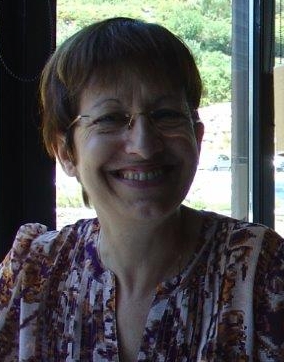
May 17, 2017 | Non categorizzato
 “There are questions in life that are truly difficult to answer: why does death, war, violence, separation or the gap between rich and poor exist? I would often talk with my university friends about these. I studied languages and literature at the University of Porto, in the north of Portugal – but no one seemed to be able to ease my concerns.
“There are questions in life that are truly difficult to answer: why does death, war, violence, separation or the gap between rich and poor exist? I would often talk with my university friends about these. I studied languages and literature at the University of Porto, in the north of Portugal – but no one seemed to be able to ease my concerns.
One day someone mentioned the Gospel and proposed I try living it. I couldn’t believe what I was hearing and objected. I know a lot of people who profess their Christianity, like I do. But after 2,000 years, things haven’t changed much. Yet given that finally someone was actually listening to me, I vented my doubts and judgements and went on for a bit. When it was time to say goodbye, the person only had space to say ‘Try it!’
In Porto I live in an apartment with other girls. That day I was the only who stayed home because I was studying for an exam. A poor lady knocked at the door. My first reaction was to get rid of her quickly, but I was held back by that ‘try it,’ which would pop up and challenge me every once in a while. We didn’t have much at home, but I found something to give the woman. “A bit later my mother called. She was in town for her medical checkup, and wanted to see if I was around: she had a bag of fruit and meat for us. My heart was full of joy, not just because that God-given food would feed us for a whole week, but because this confirmed that the Gospel is true. That small thing that I had just given to that woman had just come back to me hundredfold, just like the promise, ‘Give and you will be given.’
And so my new relationship with Jesus began, and got stronger every time that I tried to recognize him in each person I found myself next to. For my birthday I received a pair of fur gloves. I was hoping to get them for some time, since it gets icy at times here. Then I saw a woman shivering from the cold on the bus – what if I gave her my gloves? I did what I was thinking. This time I was jumping ahead a bit, since Jesus had already given me a hundredfold with that gift, so I could give my gloves to someone who needed them more than I did.
I was going to class when a lady carrying a baby stopped me. She was crying. I didn’t want to be late, I thought to myself, trying to get going. But inside I thought, ‘How can I say I love a God I don’t see and not love my neighbor that I do?’ (Jn 1:20). I looked at my watch and resisted the urge to leave. I stopped and got interested in her situation: she told me she had just left her child in the hospital doing quite poorly. She and her husband were living in two squalid rooms with their eight children.
I couldn’t do much right then and there, but I promised her I’d visit. That same day I told other young people and families from Focolare how I had gotten to know her. Each of them offered to help in whichever way they could. Together we provided the basic necessities (food, clothing, things for the house) and organized turns to help the children with their homework and play with them so their mother could be with their brother at the hospital.
At the same time we tried to understand how to let the city know about the situation and request better living space. A couple of weeks went by, and finally the much-awaited town truck arrived to move them to public housing. The privilege of taking the youngest child to their new home fell to me, and I will never forget that bus trip. The little one slept peacefully in my arms, unaware of the changes I’ve been seeing ever since I started living the Gospel.
Now those big questions, which are still there, have found some answers. I know now that taking the first step not only involves other people giving of themselves, but can even influence society.”
May 16, 2017 | Non categorizzato
May 15, 2017 | Non categorizzato
May 15 is celebrated each year as International Family Day, proclaimed by the United Nations General Assembly in 1994. This year’s theme is “Mothers and Families: Challenges in a Changing World” and it focuses on the Important role of mothers for families and communities in the world.
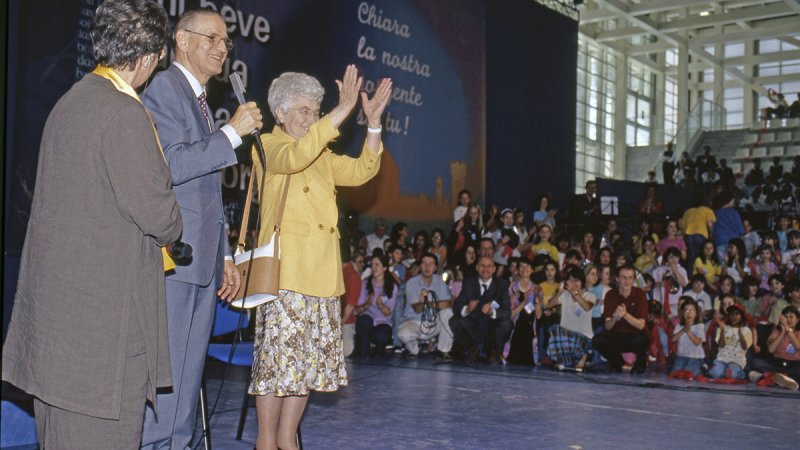
May 15, 2017 | Non categorizzato
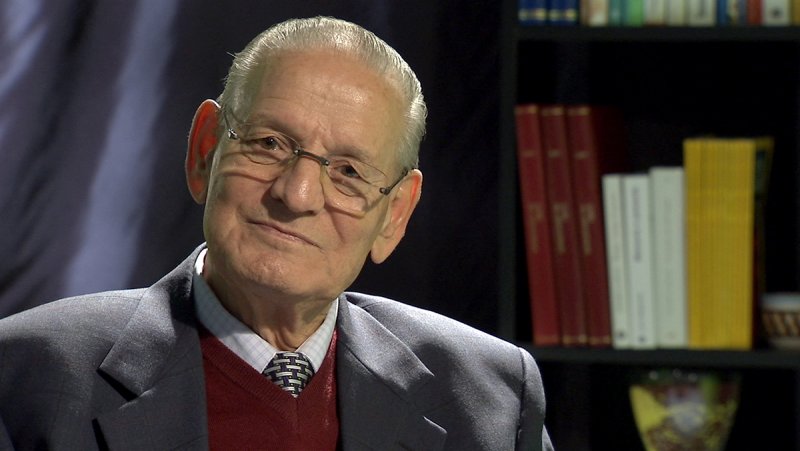 It was the end of 1945 in Trent, Italy, when the war had just ended. Marco was 19 years old and going through a very deep spiritual crisis. A friend who belonged to a community of Men Religious had invited him to a meeting. A young woman, a little older than himself, “spoke about God with such fervour and conviction that there wasn’t any room for doubts,” he later recalled. That young woman was Chiara Lubich who was joined by a group of girls who, like her, had chosen God as their ideal in life. In no time, Marco became the first young man to follow her. He was the first focolarino. The Tecilla family were simple folk, his father a baker, his mother a nurse, one sister and three brothers. With the Great Depression of 1929, his father lost his job. “I remember him covering himself with a mantle in the cold winter months,” Marco recounts, “and me accompanying him from one bread shop to the next, knocking on doors and asking for work, or basket of bread to feed ourselves. I later discovered that as he held on to my hand, with the other hand he counted the beads of his Rosary.” In January 1943 his father died. War broke out and the bombardments began on Trent. The Tecilla family fled to the mountains. Marco avoided the call to arms by signing up for civil service. Meanwhile,he was hired as an operator at the Trento- Malè Railway. His sister, Maria, began to attend a lot of spiritual retreats and to collect clothing for the poor. The family – and Marco – thought she was “over doing it” – until he received that invitation from the friend who belonged to the Men’s Religious community and Marco’s encounter with God-Love.
It was the end of 1945 in Trent, Italy, when the war had just ended. Marco was 19 years old and going through a very deep spiritual crisis. A friend who belonged to a community of Men Religious had invited him to a meeting. A young woman, a little older than himself, “spoke about God with such fervour and conviction that there wasn’t any room for doubts,” he later recalled. That young woman was Chiara Lubich who was joined by a group of girls who, like her, had chosen God as their ideal in life. In no time, Marco became the first young man to follow her. He was the first focolarino. The Tecilla family were simple folk, his father a baker, his mother a nurse, one sister and three brothers. With the Great Depression of 1929, his father lost his job. “I remember him covering himself with a mantle in the cold winter months,” Marco recounts, “and me accompanying him from one bread shop to the next, knocking on doors and asking for work, or basket of bread to feed ourselves. I later discovered that as he held on to my hand, with the other hand he counted the beads of his Rosary.” In January 1943 his father died. War broke out and the bombardments began on Trent. The Tecilla family fled to the mountains. Marco avoided the call to arms by signing up for civil service. Meanwhile,he was hired as an operator at the Trento- Malè Railway. His sister, Maria, began to attend a lot of spiritual retreats and to collect clothing for the poor. The family – and Marco – thought she was “over doing it” – until he received that invitation from the friend who belonged to the Men’s Religious community and Marco’s encounter with God-Love. 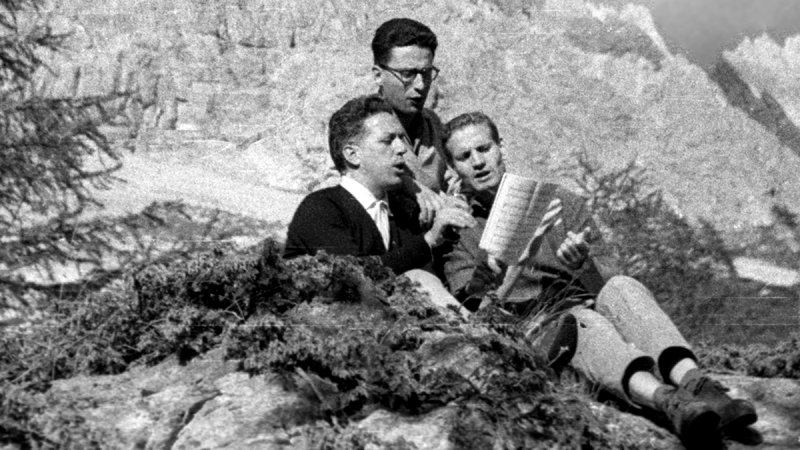 From the moment he met Chiara and the first group of young women, he went often to do odd jobs at the “little house” in Cappuccini square, where the women focolarine lived. He was drawn by the supernatural atmosphere that he found in that place. “One evening,” he recalls, “I had to work a little longer than usual, to finish up some repair work. Chiara was working on some sewing, sitting at the table nearby. Without warning she turned to me and said: “If Jesus were to come today, he would be Jesus 24 hours a day, whether working, praying, eating, resting . . . in today’s world he’d be an electrician like you . . .” Marco was quite struck by “this new vision of the Christian life. I saw a new horizon opening before me, overflowing with light. When I left the “little house” the sky was all dotted with stars. A new life began for me and I had to turn the page and abandon myself to the arms of the God who had manifested himself to me as LOVE.” Marco felt that Jesus was calling to him: If you want to be perfect go and sell what you have and give it to the poor; then, come and follow me. Following Jesus, that’s my path.” On the evening of November 27, 1948 the first men’s focolare was begun with Livio who had also been added to the group. Marco never imagined that in the years to come he would be moved thirty times! The nascent Movement spread quickly all over the world and Marco would move to many cities in Italy . . . In 1953 to Innsbruck, in 1958 to Uruguay, Argentina, Brazil and Chile; in 1960 to Trieste, Italy, and then beyond the Iron Curtain in Zagreb. On November 22, 1964 he was to the priesthood and returned to Brazil until 1967, returning again until 1971. Then he was in southern Italy and Milan, Padua and finally Trent after 31 years away. That is when he found the land for the new Mariapolis Centre in Cadine and took part in the project that Chiara Lubich launched in 2001: Trento Ardente. At the end of that year, Chiara wanted him at the Centre of the Movement in Rocca di Papa, Italy, where he would live out the last years of his life.
From the moment he met Chiara and the first group of young women, he went often to do odd jobs at the “little house” in Cappuccini square, where the women focolarine lived. He was drawn by the supernatural atmosphere that he found in that place. “One evening,” he recalls, “I had to work a little longer than usual, to finish up some repair work. Chiara was working on some sewing, sitting at the table nearby. Without warning she turned to me and said: “If Jesus were to come today, he would be Jesus 24 hours a day, whether working, praying, eating, resting . . . in today’s world he’d be an electrician like you . . .” Marco was quite struck by “this new vision of the Christian life. I saw a new horizon opening before me, overflowing with light. When I left the “little house” the sky was all dotted with stars. A new life began for me and I had to turn the page and abandon myself to the arms of the God who had manifested himself to me as LOVE.” Marco felt that Jesus was calling to him: If you want to be perfect go and sell what you have and give it to the poor; then, come and follow me. Following Jesus, that’s my path.” On the evening of November 27, 1948 the first men’s focolare was begun with Livio who had also been added to the group. Marco never imagined that in the years to come he would be moved thirty times! The nascent Movement spread quickly all over the world and Marco would move to many cities in Italy . . . In 1953 to Innsbruck, in 1958 to Uruguay, Argentina, Brazil and Chile; in 1960 to Trieste, Italy, and then beyond the Iron Curtain in Zagreb. On November 22, 1964 he was to the priesthood and returned to Brazil until 1967, returning again until 1971. Then he was in southern Italy and Milan, Padua and finally Trent after 31 years away. That is when he found the land for the new Mariapolis Centre in Cadine and took part in the project that Chiara Lubich launched in 2001: Trento Ardente. At the end of that year, Chiara wanted him at the Centre of the Movement in Rocca di Papa, Italy, where he would live out the last years of his life.  “His joy was always hard to contain when he came to Loppiano to give lessons on the Spirituality to members of the schools,” recalls Redi Mghenzani who lived with Marco for 20 years, “ [He showed special care and attention] when it came to the new generations of men and women focolarini. He leaves us a trail of light that will never be extinguished.” “Marco sowed love in many parts of the world,” recalls focolarino Armando Droghetti, who accompanied Marco during the final years of his life,” that love which allowed unity to be born among people from all social and cultural backgrounds, as many of the numberless visitors from this past month had said; especially from last year when a series of small strokes affected him in different ways. But as everything seemed to be failing in Marco (his voice became weaker and weaker, his legs were somehow blocked) the situation pushed all of us, beginning with Marco, to supplement our mutual love. Based on this spiritual life and an ever more intense unity in our focolare, even the unexpected crisis of May 8th didn’t catch Marco and us off guard. During a brief upturn in his condition he remarked with great certainty: “I only need to be purified.” He would welcome the doctor with those shining eyes that seemed to wrap everyone in love. And this was also the impression of many who went to say their final goodbye. They said that beyond a sense of orphan hood because of his departure, what Marco had prepared them for by saying I’m nothing and God is everything. Only in Him do we live” – was even stronger. Focolare president, Maria Voce, highlighted that “Marco that mark of radicalness of the early times of the Movement, along with his strength and faith in the charism of unity with the purity of his Gospel live.” In an interview that was released on March 31, 2008, a few days after Chiara Lubich died, Marco stated: “As long as I have a bit of breath, my wish is to be able to give my all to the new generations. I’m sure that whoever comes after us will do greater things than we did, precisely because of the richness that is transmitted by the charism of unity, which will never ever die.”
“His joy was always hard to contain when he came to Loppiano to give lessons on the Spirituality to members of the schools,” recalls Redi Mghenzani who lived with Marco for 20 years, “ [He showed special care and attention] when it came to the new generations of men and women focolarini. He leaves us a trail of light that will never be extinguished.” “Marco sowed love in many parts of the world,” recalls focolarino Armando Droghetti, who accompanied Marco during the final years of his life,” that love which allowed unity to be born among people from all social and cultural backgrounds, as many of the numberless visitors from this past month had said; especially from last year when a series of small strokes affected him in different ways. But as everything seemed to be failing in Marco (his voice became weaker and weaker, his legs were somehow blocked) the situation pushed all of us, beginning with Marco, to supplement our mutual love. Based on this spiritual life and an ever more intense unity in our focolare, even the unexpected crisis of May 8th didn’t catch Marco and us off guard. During a brief upturn in his condition he remarked with great certainty: “I only need to be purified.” He would welcome the doctor with those shining eyes that seemed to wrap everyone in love. And this was also the impression of many who went to say their final goodbye. They said that beyond a sense of orphan hood because of his departure, what Marco had prepared them for by saying I’m nothing and God is everything. Only in Him do we live” – was even stronger. Focolare president, Maria Voce, highlighted that “Marco that mark of radicalness of the early times of the Movement, along with his strength and faith in the charism of unity with the purity of his Gospel live.” In an interview that was released on March 31, 2008, a few days after Chiara Lubich died, Marco stated: “As long as I have a bit of breath, my wish is to be able to give my all to the new generations. I’m sure that whoever comes after us will do greater things than we did, precisely because of the richness that is transmitted by the charism of unity, which will never ever die.”
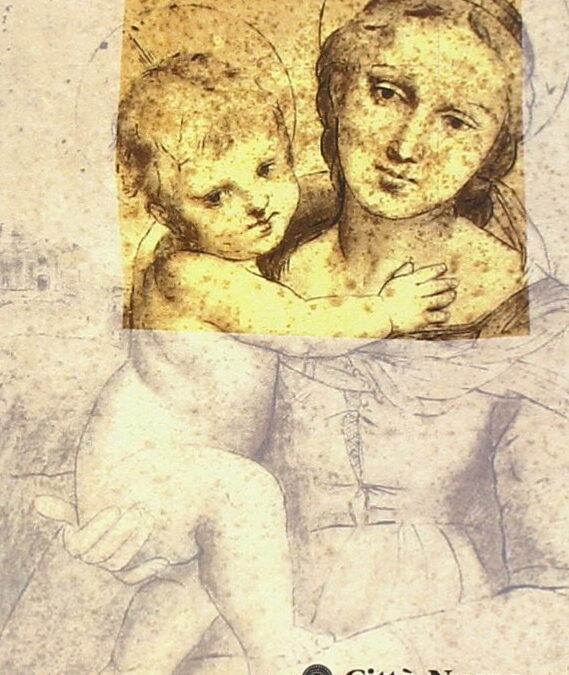
May 14, 2017 | Non categorizzato
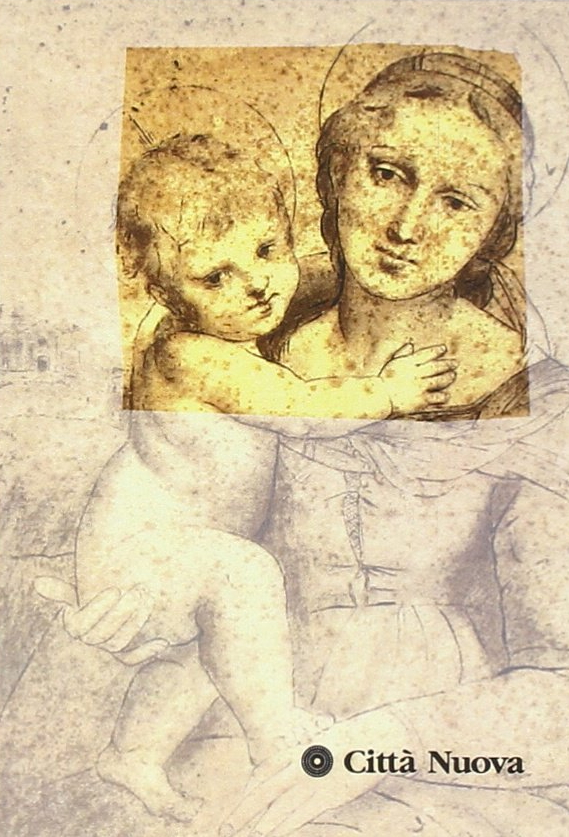 Mary was the most exemplary mother. Therefore, she became and remains forever the model of maternity. Not only was her heart a worthy temple for her Son’s divinity, but also for his humanity, because, whereas he was Man in his perfection, she was not only a woman, but the Woman who lived a double life; that is, an entirely human and divine life, all for the Lord God and all for the Son and, through him, all for humanity. This is how she teaches that the life of the spirit and the life of the flesh can be lived in harmony, in holiness and chastity with one as the custodian of the other. The double life enclosed above all the joys of divinity – the love of the Spouse, the Holy Spirit – and the sufferings of humanity – privations, indecencies, persecutions and finally the slaughter of the cross. From Mary women in general and mothers in particular, and all rational beings, should learn to acquire the wholeness that makes us fully alive Because if you neglect the spiritual element or you neglect the material element – you tumble into error, whether it’s towards humanity or towards divinity. Mary took and gave the proper ranking to that double reality, just the God-Man had done. She was the Virgin and she was the Mother, and she always dissolved suffering into love. She was the strong woman and because God was with her, she had divine strength. She was such a strong example that she has forged millions of human beings, especially mothers of course, who, with Mary were fortified in God, becoming the servants of his will, never giving in to every urge, like people who are empty of the Holy Spirit. “If God is for us, who can be against us?” Mother Frances Cabrini was so fond of these words, and she modelled herself on the Virgin Mother. Also many illustrious martyrs and millions of unknown victims of misery, persecution, wars and disgrace: humble women and men have enclosed their pain inside their hearts as they look towards Mary. Mary forever remains a source of energy: mother of a love that is stronger than death. Saint Bernard says that God wants us to have all things through the hands of Mary, Mary Mother of Grace and Mother of Mercy. Some would argue that Jesus is the mediator of all graces. True enough, but Jesus is our brother, flesh of our flesh, made so by Mary. And turning to him by way of Mary is to place between him, the offended one, and us, the offenders – our mother. Thus a chain is formed in which Mary listens to the sinner. Jesus listens to Mary, the Father listens to Jesus, and the Holy Spirit flows through the relationships. Jesus came to us through Mary: we go to Jesus by the same way; like a river of life that flows from God to [us] and back to God from us. Christians claim their kindship with Christ by way of their Mother’s lips, their kinship with God. Mother of God and my Mother, Medieval spirituality exclaims. And this was translated into verse by the Italian poet, Silvio Pellico[1]. Comforting Virgin, Hope of the afflicted, You are our mother and, together, Mother to our Salvator! Through Mary the human community becomes a family circle where the life that circulates is the life of God.” From Igino Giordani, Maria modello perfetto, (Rome: Città Nuova, 1967; 2012), 81-85; 108-109. [1] Silvio Pellico (1789 – 1854): Italian writer, poet and patriot, famous for writing Le mie prigioni.
Mary was the most exemplary mother. Therefore, she became and remains forever the model of maternity. Not only was her heart a worthy temple for her Son’s divinity, but also for his humanity, because, whereas he was Man in his perfection, she was not only a woman, but the Woman who lived a double life; that is, an entirely human and divine life, all for the Lord God and all for the Son and, through him, all for humanity. This is how she teaches that the life of the spirit and the life of the flesh can be lived in harmony, in holiness and chastity with one as the custodian of the other. The double life enclosed above all the joys of divinity – the love of the Spouse, the Holy Spirit – and the sufferings of humanity – privations, indecencies, persecutions and finally the slaughter of the cross. From Mary women in general and mothers in particular, and all rational beings, should learn to acquire the wholeness that makes us fully alive Because if you neglect the spiritual element or you neglect the material element – you tumble into error, whether it’s towards humanity or towards divinity. Mary took and gave the proper ranking to that double reality, just the God-Man had done. She was the Virgin and she was the Mother, and she always dissolved suffering into love. She was the strong woman and because God was with her, she had divine strength. She was such a strong example that she has forged millions of human beings, especially mothers of course, who, with Mary were fortified in God, becoming the servants of his will, never giving in to every urge, like people who are empty of the Holy Spirit. “If God is for us, who can be against us?” Mother Frances Cabrini was so fond of these words, and she modelled herself on the Virgin Mother. Also many illustrious martyrs and millions of unknown victims of misery, persecution, wars and disgrace: humble women and men have enclosed their pain inside their hearts as they look towards Mary. Mary forever remains a source of energy: mother of a love that is stronger than death. Saint Bernard says that God wants us to have all things through the hands of Mary, Mary Mother of Grace and Mother of Mercy. Some would argue that Jesus is the mediator of all graces. True enough, but Jesus is our brother, flesh of our flesh, made so by Mary. And turning to him by way of Mary is to place between him, the offended one, and us, the offenders – our mother. Thus a chain is formed in which Mary listens to the sinner. Jesus listens to Mary, the Father listens to Jesus, and the Holy Spirit flows through the relationships. Jesus came to us through Mary: we go to Jesus by the same way; like a river of life that flows from God to [us] and back to God from us. Christians claim their kindship with Christ by way of their Mother’s lips, their kinship with God. Mother of God and my Mother, Medieval spirituality exclaims. And this was translated into verse by the Italian poet, Silvio Pellico[1]. Comforting Virgin, Hope of the afflicted, You are our mother and, together, Mother to our Salvator! Through Mary the human community becomes a family circle where the life that circulates is the life of God.” From Igino Giordani, Maria modello perfetto, (Rome: Città Nuova, 1967; 2012), 81-85; 108-109. [1] Silvio Pellico (1789 – 1854): Italian writer, poet and patriot, famous for writing Le mie prigioni.
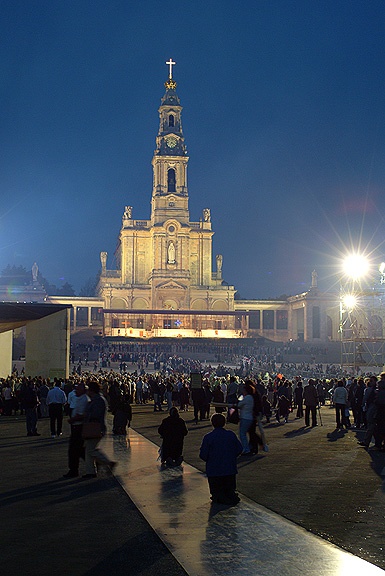
May 13, 2017 | Non categorizzato
 While Portugal welcomes the Holy Father in Fatima, we are highlighting an excerpt of an article of by Chiara Lubich published in the Roman Observatory, in 1984, on the occasion of the Family Jubilee. The Fatima event, Chiara affirmed, calls us to conversion and faithfulness to the Gospel, and also to the family. “[…] When the Pope [John Paul II − editor’s note] read the act of consecration of humanity to Mary, he began with these words: ‘The family is the heart of the Church. Today, from this heart ensues a particular prayer of consecration to the Heart of the Mother of Jesus.’ And so, from heart to Heart in this intense communion, that was created with the Eucharistic celebration, from the heart of the universal Father, arose almost a cry, filled with concern for the needs of humanity, the prayer of consecration to the Virgin Mary, asking her to take special care of the human family. The Pope was there, on kneeing in front of the white image of Our Lady of Fatima. In that moment the thought of many of us present went back to May 13 1981, the day of the assassination attempt. […] Now St. Peter’s Square was packed to the very brim. Next to him before Our Lady of Fatima, like a flower that blossomed from his suffering and blood, all the families of the Church were symbolically gathered like a sign of all the families of the world. At the moment of the world’s consecration to Mary, the Holy Father, as the supreme Pastor, could therefore count not only on the communion of all the Pastors of the Church, “constituting a body and a college”, but also on the full adhesion of the children of the Church, represented by many families of many countries. […]And in the prayer with which he concluded his homily – prayer which he composed for the 1980 Synod that had the family as its theme of study – he asked this grace: “May the love enhanced by the grace of the sacrament of marriage be stronger than any weakness and any crisis that our families sometimes experience.” All these important coincidences and expressions help us to gather the profound meaning of this consecration has to bring all Christian families to live – with the help and example of Mary – the luminous and fascinating plan of God on the family in all its expressions: marriage love, according to the divine plan, sign of Christ’s love for the Church up to the total gift of self; paternity and maternity, as the participation to the fertile love of the Creator; peace and harmony in overcoming all the tensions and difficulties as fruit of an always alive and tireless charity intent on keeping the spiritual presence of Christ in the family and, with Him, the unity of thought and action; an openness of communion and service towards other families. […] The message of Fatima that calls everyone to conversion and faithfulness to the Gospel, becomes the answer of the consecration of the family, a commitment of renewal so that the face of the Church may shine more. In the Christian family the Church is the “family of God” a welcoming dwelling place for all the lost children who are called back to the house of the Father and invited to enter through the maternal heart of the Mother of Jesus.
While Portugal welcomes the Holy Father in Fatima, we are highlighting an excerpt of an article of by Chiara Lubich published in the Roman Observatory, in 1984, on the occasion of the Family Jubilee. The Fatima event, Chiara affirmed, calls us to conversion and faithfulness to the Gospel, and also to the family. “[…] When the Pope [John Paul II − editor’s note] read the act of consecration of humanity to Mary, he began with these words: ‘The family is the heart of the Church. Today, from this heart ensues a particular prayer of consecration to the Heart of the Mother of Jesus.’ And so, from heart to Heart in this intense communion, that was created with the Eucharistic celebration, from the heart of the universal Father, arose almost a cry, filled with concern for the needs of humanity, the prayer of consecration to the Virgin Mary, asking her to take special care of the human family. The Pope was there, on kneeing in front of the white image of Our Lady of Fatima. In that moment the thought of many of us present went back to May 13 1981, the day of the assassination attempt. […] Now St. Peter’s Square was packed to the very brim. Next to him before Our Lady of Fatima, like a flower that blossomed from his suffering and blood, all the families of the Church were symbolically gathered like a sign of all the families of the world. At the moment of the world’s consecration to Mary, the Holy Father, as the supreme Pastor, could therefore count not only on the communion of all the Pastors of the Church, “constituting a body and a college”, but also on the full adhesion of the children of the Church, represented by many families of many countries. […]And in the prayer with which he concluded his homily – prayer which he composed for the 1980 Synod that had the family as its theme of study – he asked this grace: “May the love enhanced by the grace of the sacrament of marriage be stronger than any weakness and any crisis that our families sometimes experience.” All these important coincidences and expressions help us to gather the profound meaning of this consecration has to bring all Christian families to live – with the help and example of Mary – the luminous and fascinating plan of God on the family in all its expressions: marriage love, according to the divine plan, sign of Christ’s love for the Church up to the total gift of self; paternity and maternity, as the participation to the fertile love of the Creator; peace and harmony in overcoming all the tensions and difficulties as fruit of an always alive and tireless charity intent on keeping the spiritual presence of Christ in the family and, with Him, the unity of thought and action; an openness of communion and service towards other families. […] The message of Fatima that calls everyone to conversion and faithfulness to the Gospel, becomes the answer of the consecration of the family, a commitment of renewal so that the face of the Church may shine more. In the Christian family the Church is the “family of God” a welcoming dwelling place for all the lost children who are called back to the house of the Father and invited to enter through the maternal heart of the Mother of Jesus.
Chiara Lubich
(Osservatore Romano 25.03.1984)
May 12, 2017 | Non categorizzato
https://youtu.be/FZLJ_xLw9dk
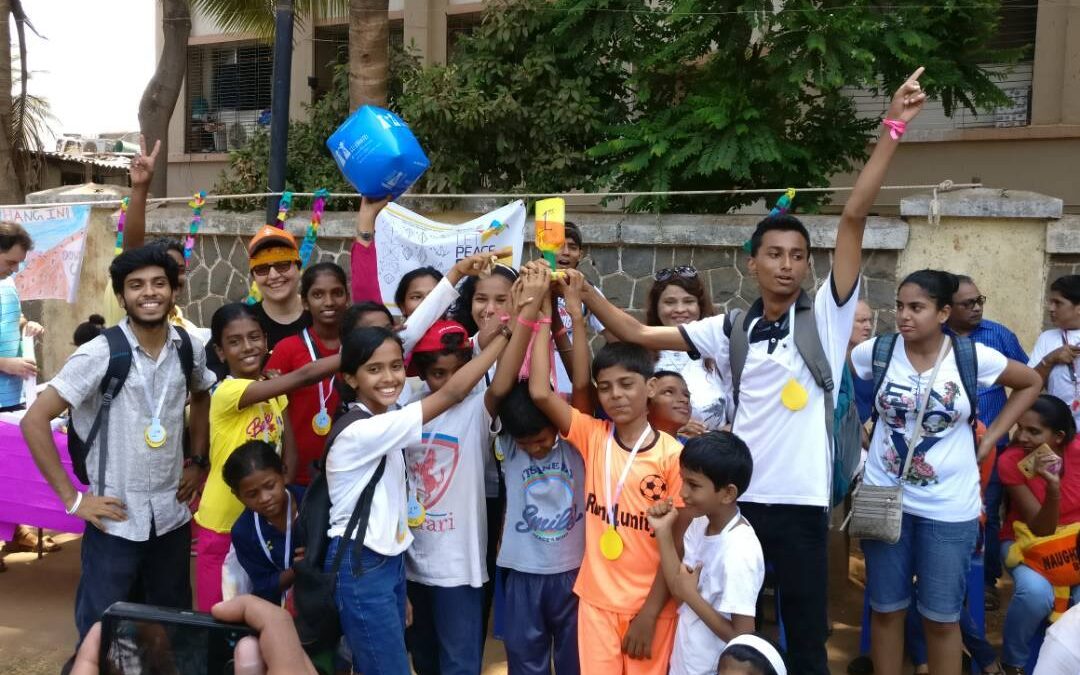
May 12, 2017 | Senza categoria
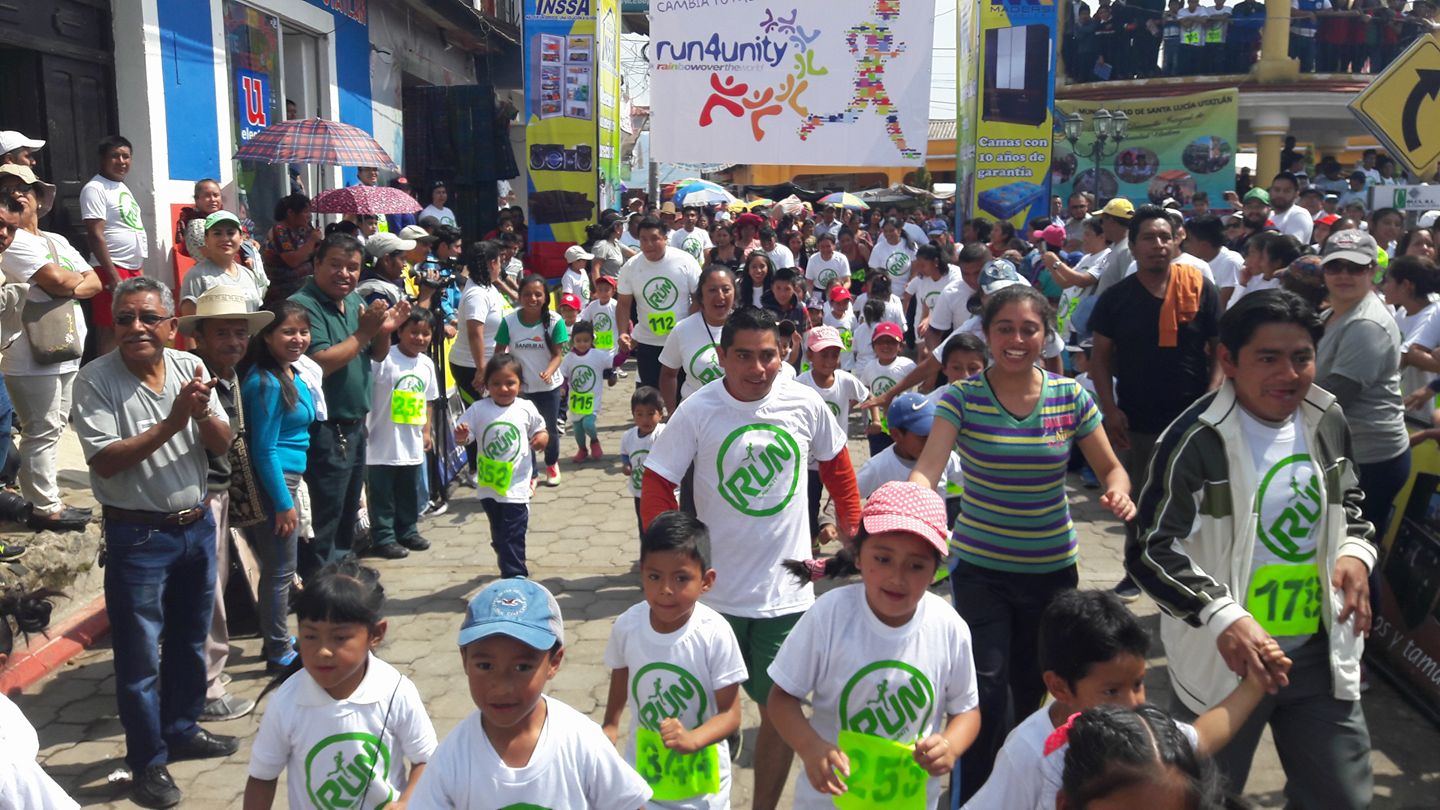 The race flowed through time zones from East to West with a message of brotherhood for the world. It’s Run4Unity, the annual relay race organized by the teenage members of the Focolare Movement. With a time difference of five hours, in Sopron, Hungary, the race charged through the border with Austria where young people from a refugee camp were on their way to meet up with the runners. Jumping over 10 time zones between Mexicali, Mexico and Calexico, USA, a hundred teenagers converged on the wall that separates their two nations. On this day hatred and racism don’t have a country. The race concluded World Unity Week, seven days of projects and events in favour of peace and unity among peoples: from Ecuador and its humanitarian emergency after the earthquake, to Medan, Indonesia, with a concert for peace, to Goma in the Democratic Republic of the Congo and the Amani Music Festival, three days of music-making and dancing for peace. There was a meaningful video message from teenagers in Aleppo, Syria, to their peers in Argentina. Run4Unity is a multi-staged journey that cuts through the planet’s most controversial border crossings between the hours of eleven and twelve o’clock local time. On foot, on a bike, on roller-skates, in boats or standing silently in prayer – once again this year it was the most against-the-current race there has ever been, a prophetic sign of the unity that will one day be ours. In this race willing hearts mattered more than quick feet. Each stop along the way provided sport events solidarity projects, presentations of experiences of active citizenship in places where solitude, poverty and marginalisation are prevalent – all of it to show that a united world is still possible, despite worrying tensions.
The race flowed through time zones from East to West with a message of brotherhood for the world. It’s Run4Unity, the annual relay race organized by the teenage members of the Focolare Movement. With a time difference of five hours, in Sopron, Hungary, the race charged through the border with Austria where young people from a refugee camp were on their way to meet up with the runners. Jumping over 10 time zones between Mexicali, Mexico and Calexico, USA, a hundred teenagers converged on the wall that separates their two nations. On this day hatred and racism don’t have a country. The race concluded World Unity Week, seven days of projects and events in favour of peace and unity among peoples: from Ecuador and its humanitarian emergency after the earthquake, to Medan, Indonesia, with a concert for peace, to Goma in the Democratic Republic of the Congo and the Amani Music Festival, three days of music-making and dancing for peace. There was a meaningful video message from teenagers in Aleppo, Syria, to their peers in Argentina. Run4Unity is a multi-staged journey that cuts through the planet’s most controversial border crossings between the hours of eleven and twelve o’clock local time. On foot, on a bike, on roller-skates, in boats or standing silently in prayer – once again this year it was the most against-the-current race there has ever been, a prophetic sign of the unity that will one day be ours. In this race willing hearts mattered more than quick feet. Each stop along the way provided sport events solidarity projects, presentations of experiences of active citizenship in places where solitude, poverty and marginalisation are prevalent – all of it to show that a united world is still possible, despite worrying tensions. 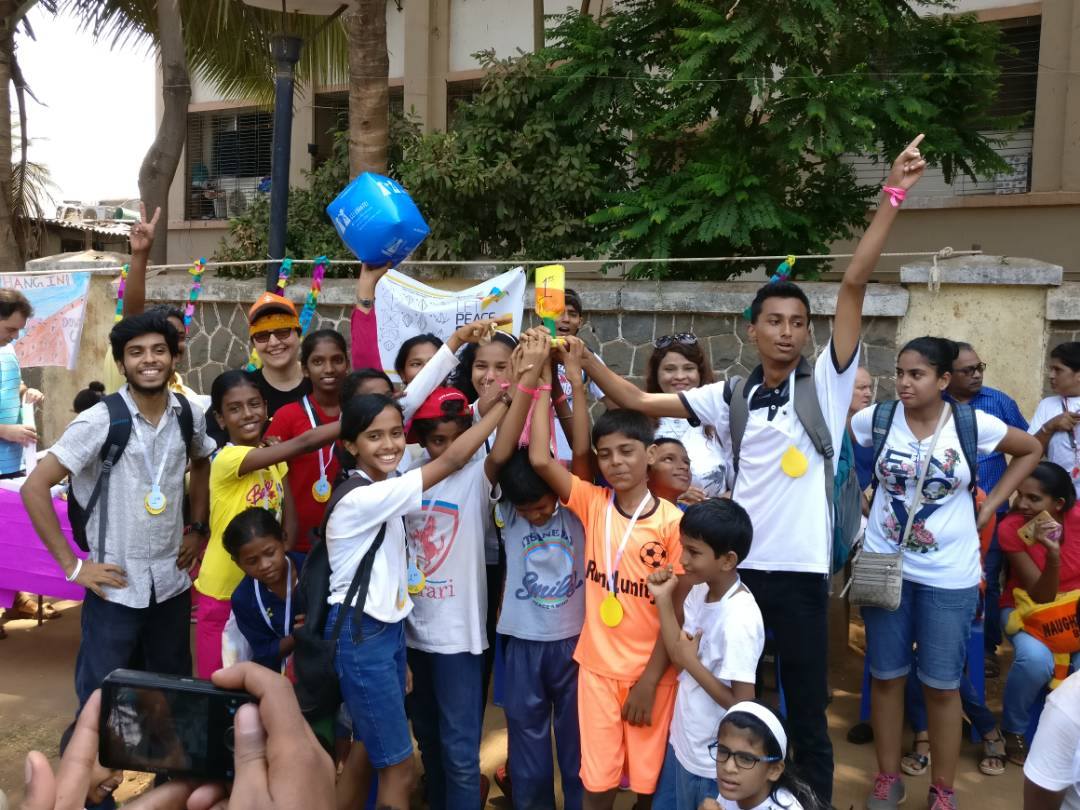 In Penang, West Malaysia, Run4Unity was a Unity Walk, an 8km trek that drew in 1200 people of all ages and belonging to different ethnic, cultural and religious groups: Hindus, Muslims, Sikhs, Christians and Buddhists. In India the race expressed its desire for peace as it flowed through downtown New Dehli, from Gandhi to Smirti where Mahatma Gandhi was murdered in 1948 and is now a sacred site, then on to the India Gate monument that is dedicated to soldiers who never returned from war. In Dresden, Germany, Run4Unity was held as part of the Pulse of Europe event, which was meant to encourage citizens to listen to the heartbeat of Europe. In Columbus, USA, Run4Unity was held at a centre for at risk people. It included games, messages of peace and sharing the Golden Rule. Then they cleaned the streets and shared sandwiches with the homeless. In Santa Lucia Utatlàn, Guatemala, the race was an opportunity for a multi-cultural event that brought together a thousand people from different ethnic groups, including youngsters from the Maya community of Quiché. In Iglesias, Italy, Run4Unity took on a rather different form: Disarmament Awareness. There are two bombs and weapons factories in the region, which produce arms to be used in today’s wars. Teenagers around the globe imagine a different kind world, one without wars, walls and hatred. Their message has also gone viral online. Radioimmaginaria, the first European radio station run exclusively for and by teenagers, dedicated live direct coverage of the Run4Unity events around the world. Because, they say, “at fifteen years of age you’re allowed to imagine the world of the future.”
In Penang, West Malaysia, Run4Unity was a Unity Walk, an 8km trek that drew in 1200 people of all ages and belonging to different ethnic, cultural and religious groups: Hindus, Muslims, Sikhs, Christians and Buddhists. In India the race expressed its desire for peace as it flowed through downtown New Dehli, from Gandhi to Smirti where Mahatma Gandhi was murdered in 1948 and is now a sacred site, then on to the India Gate monument that is dedicated to soldiers who never returned from war. In Dresden, Germany, Run4Unity was held as part of the Pulse of Europe event, which was meant to encourage citizens to listen to the heartbeat of Europe. In Columbus, USA, Run4Unity was held at a centre for at risk people. It included games, messages of peace and sharing the Golden Rule. Then they cleaned the streets and shared sandwiches with the homeless. In Santa Lucia Utatlàn, Guatemala, the race was an opportunity for a multi-cultural event that brought together a thousand people from different ethnic groups, including youngsters from the Maya community of Quiché. In Iglesias, Italy, Run4Unity took on a rather different form: Disarmament Awareness. There are two bombs and weapons factories in the region, which produce arms to be used in today’s wars. Teenagers around the globe imagine a different kind world, one without wars, walls and hatred. Their message has also gone viral online. Radioimmaginaria, the first European radio station run exclusively for and by teenagers, dedicated live direct coverage of the Run4Unity events around the world. Because, they say, “at fifteen years of age you’re allowed to imagine the world of the future.”
![Celebrating a Europe of Hope in Malta]()
May 11, 2017 | Focolare Worldwide
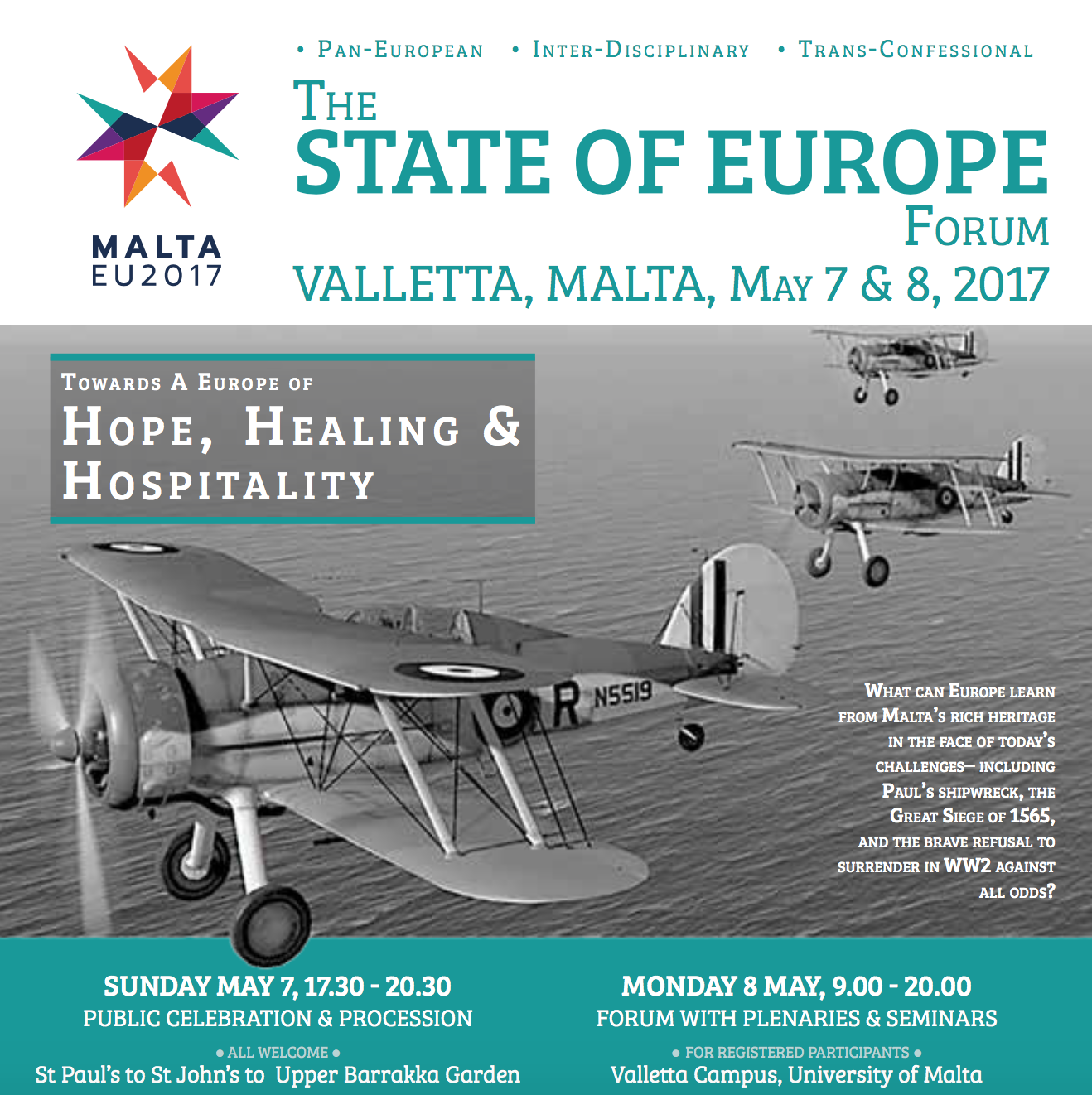 Malta is the largest island in the archipelago that shares its name. It is located in the central Mediterranean Sea between Sicily, Tunisia and Libya. It was the head of the Council of the European Union for the first time in its history in 2017. The island, whose symbol is the eight-cusped cross, signifying the eight Beatitudes, pertaining to the Knights of Malta, is closely situated to the tragedies that occur daily in the blue tomb that the Mediterranean Sea has become for those crossing between Africa, the Middle East and Europe in a desperate search for a new chance at life. On one of its other shores another shipwreck had found safe port after fourteen days adrift. One of the passengers was Saint Paul on his way back to Rome in around AD 60. According to tradition the ship carrying him and another 264 passengers was sunk by a storm, and everyone on board swam to shore. After some time he was invited to stay at the house of Publius, the Roman governor of the islands, whose father Paul cured of a serious flu. The governor converted to Christianity and became the first bishop of Malta. Europe’s Christian roots were the focus of discussion in Malta’s capital of Valletta on the 7th and 8th of May during a forum titled Towards a Europe of Hope, Healing and Hospitality. The goal of the forum, which is held each year by the European Union in the country of the presidency, is the promotion of dialogue according to the foundational inspiration of Robert Schuman. On the first day, after the opening events at the Anglican Cathedral, there was an artistic performance and a prayer titled “Hope”. Then a procession led through the streets of Valletta to the Roman Catholic Co-Cathedral of Saint John where some words were offered by Archbishop Scicluna and Maria Voce. The Focolare president offered a reflection on “Healing and Reconciliation”.
Malta is the largest island in the archipelago that shares its name. It is located in the central Mediterranean Sea between Sicily, Tunisia and Libya. It was the head of the Council of the European Union for the first time in its history in 2017. The island, whose symbol is the eight-cusped cross, signifying the eight Beatitudes, pertaining to the Knights of Malta, is closely situated to the tragedies that occur daily in the blue tomb that the Mediterranean Sea has become for those crossing between Africa, the Middle East and Europe in a desperate search for a new chance at life. On one of its other shores another shipwreck had found safe port after fourteen days adrift. One of the passengers was Saint Paul on his way back to Rome in around AD 60. According to tradition the ship carrying him and another 264 passengers was sunk by a storm, and everyone on board swam to shore. After some time he was invited to stay at the house of Publius, the Roman governor of the islands, whose father Paul cured of a serious flu. The governor converted to Christianity and became the first bishop of Malta. Europe’s Christian roots were the focus of discussion in Malta’s capital of Valletta on the 7th and 8th of May during a forum titled Towards a Europe of Hope, Healing and Hospitality. The goal of the forum, which is held each year by the European Union in the country of the presidency, is the promotion of dialogue according to the foundational inspiration of Robert Schuman. On the first day, after the opening events at the Anglican Cathedral, there was an artistic performance and a prayer titled “Hope”. Then a procession led through the streets of Valletta to the Roman Catholic Co-Cathedral of Saint John where some words were offered by Archbishop Scicluna and Maria Voce. The Focolare president offered a reflection on “Healing and Reconciliation”. 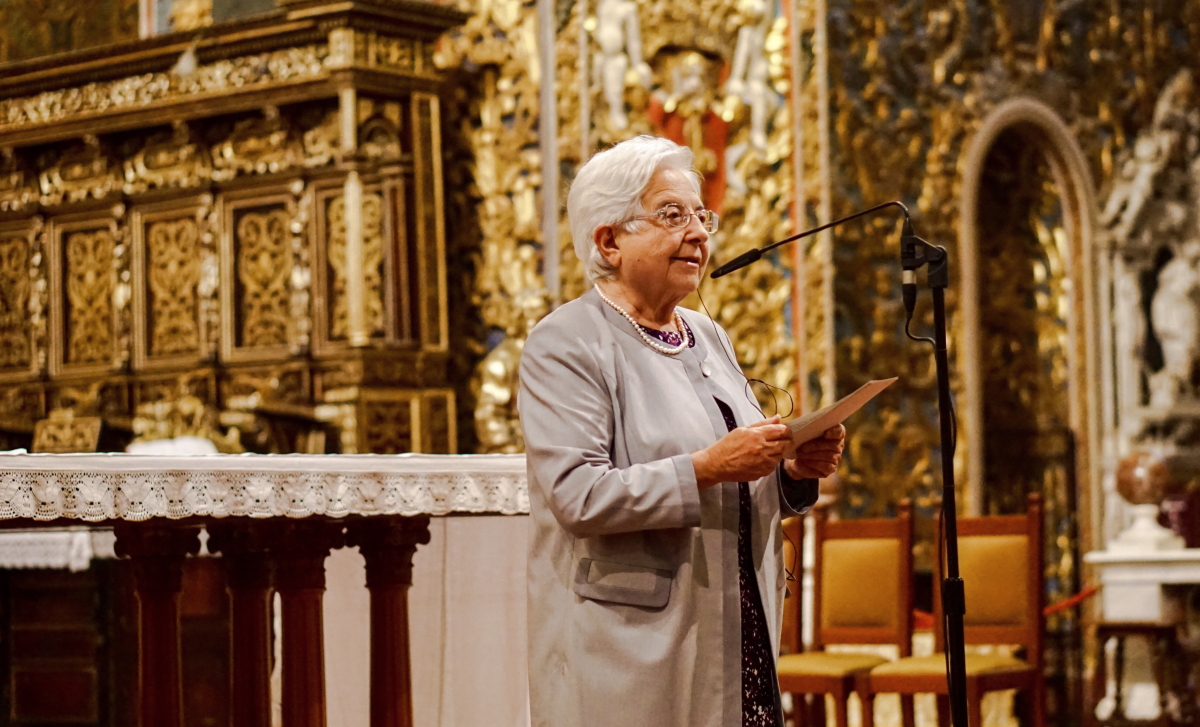 On the anniversary of that “community of peoples” that Schuman envisioned in 1950, proposing the historic coal and steel community to avoid all forms of war between France, Germany and any country who would later join the community, Maria Voce asked what the inspirational spark might have been behind such an extraordinary gesture that was intended to bring reconciliation to populations overwhelmed by the most horrible conflicts ever seen up until then. Who had inspired Schuman, Adenauer, De Gasperi – all Christian statesmen who are considered the founding fathers of Europe? The answer is obvious: “We want to think that the ideas and the strength to build Europe came from God who had shown his love for all people by suffering an infamous and atrocious death, God had identified with all the pains of humanity, including the ones deriving from violence and wars.”
On the anniversary of that “community of peoples” that Schuman envisioned in 1950, proposing the historic coal and steel community to avoid all forms of war between France, Germany and any country who would later join the community, Maria Voce asked what the inspirational spark might have been behind such an extraordinary gesture that was intended to bring reconciliation to populations overwhelmed by the most horrible conflicts ever seen up until then. Who had inspired Schuman, Adenauer, De Gasperi – all Christian statesmen who are considered the founding fathers of Europe? The answer is obvious: “We want to think that the ideas and the strength to build Europe came from God who had shown his love for all people by suffering an infamous and atrocious death, God had identified with all the pains of humanity, including the ones deriving from violence and wars.” 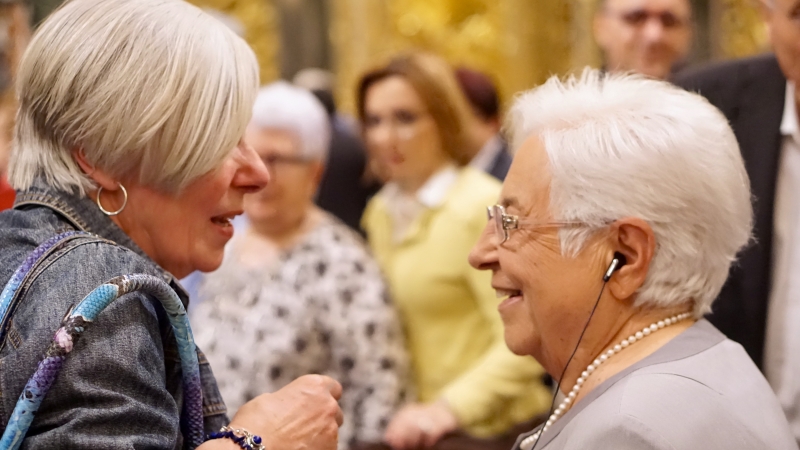 With regard to the culture that could emerge when there is profound reconciliation, Maria Voce quoted Chiara Lubich: “Every person can have a contribution to give – in any field: science, art, politics, communications, and so on. And they will be more efficacious if they work together with others who are united in the name of Christ: it is the continuation of the Incarnation and, it is in this way, that what could be called a culture of the Resurrection spreads through the world.” But for this to happen, “a path towards full and visible communion is asked of us, Christians, knowing that this will be decisive for the unity of Europe and for serving humanity better.” Recently, this path began to unfold further stages, in Lund, Sweden, Lesbos, Greece, and Cuba. “In a multi-cultural and multi-religious Europe there is need for a new capacity to dialogue, dialogue that can be based on the Golden Rule that is found in every religion on earth.” How significant to be saying these things precisely in the safe port of Malta in the midst of the Mediterranean, in the hope that this blue tomb will again become “Mare Nostrum” where Europe, Africa and the Middle East can find a peaceful route.
With regard to the culture that could emerge when there is profound reconciliation, Maria Voce quoted Chiara Lubich: “Every person can have a contribution to give – in any field: science, art, politics, communications, and so on. And they will be more efficacious if they work together with others who are united in the name of Christ: it is the continuation of the Incarnation and, it is in this way, that what could be called a culture of the Resurrection spreads through the world.” But for this to happen, “a path towards full and visible communion is asked of us, Christians, knowing that this will be decisive for the unity of Europe and for serving humanity better.” Recently, this path began to unfold further stages, in Lund, Sweden, Lesbos, Greece, and Cuba. “In a multi-cultural and multi-religious Europe there is need for a new capacity to dialogue, dialogue that can be based on the Golden Rule that is found in every religion on earth.” How significant to be saying these things precisely in the safe port of Malta in the midst of the Mediterranean, in the hope that this blue tomb will again become “Mare Nostrum” where Europe, Africa and the Middle East can find a peaceful route.
![Celebrating a Europe of Hope in Malta]()
May 10, 2017 | Non categorizzato
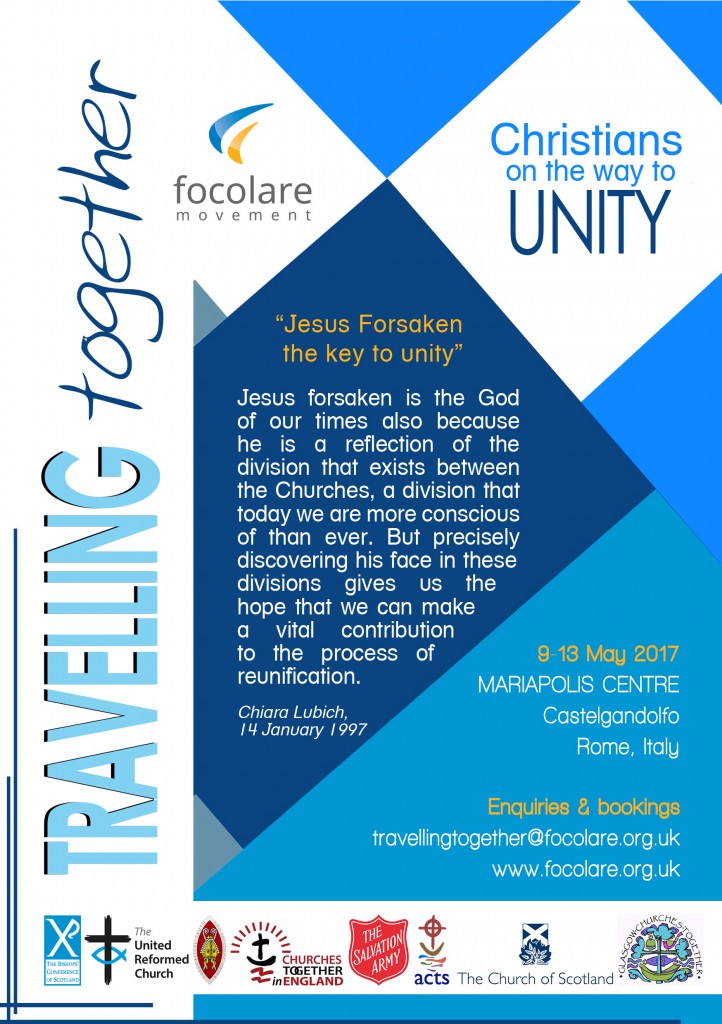 “Unity among Churches requires heroes, heroes in faith, heroes who face history, heroes who are humble in spirit”. Pope Tawadros II said these words in Alexandria, Egypt in 2015, when celebrating the first Day of Friendship between the Orthodox Coptic Church and the Catholic Church. During his recent visit to Cairo, Pope Francis repeated the same thought when he said, “In the light of God who wishes us to be ‘perfectly one’ it is no longer possible to take refuge behind the pretext of differing interpretations, much less of those centuries of history and traditions that estranged us one from the other”. The Pope also spoke about “an already effective communion that grows daily”, the mysterious and ever present fruits of “a genuine ecumenism of blood”, and the importance of progress in our ecumenical journey because “static ecumenism does not exist”. Christians inspired by the Focolare spirituality of unity are convinced of this because of the experience lived in these last years. The 59th Ecumenical Week, to be held at Castelgandolfo, Rome from the 9 to 13 May 2017, blends into the current ecumenical trend, which brings to the foreground gestures, words and statements of Church leaders and also initiatives of Christians in different parts of the world. 700 Christians hailing from 40 countries and belonging to 70 Churches and ecclesial Communities are expected to attend. During this “Ecumenical Mariapoli”, as many prefer to call this event, living together, sharing, spirituality and reflection will take place,and it will be a new step towards “the dialogue of life” and “the ecumenism of the people”. In fact, Chiara envisaged the “dialogue of life” as the typical contribution of the spirituality of unity towards full, visible communion among Churches . It is of utmost importance that people are well prepared ecumenically. Fully aware of the many steps still to be taken and with respect towards all Churches, we try to delve deeper into the common heritage that already unites us. The title of this ecumenical meeting is: “Walking together. Christians on the road to unity”. Its focal point will be a central theme in the spirituality of unity: Jesus crucified and forsaken: the God of our time, foundation for a spirituality of communion. It will be enriched by moments of reflection, dialogue and testimonies of people from different parts of the world, While the 500 years since the Lutheran Reformation are being celebrated in the ecumenical field, among the main speakers, one will find: Bishop Christian Krause, former President of Lutheran World Federation; Rev. Dr. Martin Robra of the World Council of Churches in Geneva; Bishop Brian Farrell, Secretary of the Pontifical Council for Promoting Christian Unity and Maria Voce, President of the Focolare Movement.
“Unity among Churches requires heroes, heroes in faith, heroes who face history, heroes who are humble in spirit”. Pope Tawadros II said these words in Alexandria, Egypt in 2015, when celebrating the first Day of Friendship between the Orthodox Coptic Church and the Catholic Church. During his recent visit to Cairo, Pope Francis repeated the same thought when he said, “In the light of God who wishes us to be ‘perfectly one’ it is no longer possible to take refuge behind the pretext of differing interpretations, much less of those centuries of history and traditions that estranged us one from the other”. The Pope also spoke about “an already effective communion that grows daily”, the mysterious and ever present fruits of “a genuine ecumenism of blood”, and the importance of progress in our ecumenical journey because “static ecumenism does not exist”. Christians inspired by the Focolare spirituality of unity are convinced of this because of the experience lived in these last years. The 59th Ecumenical Week, to be held at Castelgandolfo, Rome from the 9 to 13 May 2017, blends into the current ecumenical trend, which brings to the foreground gestures, words and statements of Church leaders and also initiatives of Christians in different parts of the world. 700 Christians hailing from 40 countries and belonging to 70 Churches and ecclesial Communities are expected to attend. During this “Ecumenical Mariapoli”, as many prefer to call this event, living together, sharing, spirituality and reflection will take place,and it will be a new step towards “the dialogue of life” and “the ecumenism of the people”. In fact, Chiara envisaged the “dialogue of life” as the typical contribution of the spirituality of unity towards full, visible communion among Churches . It is of utmost importance that people are well prepared ecumenically. Fully aware of the many steps still to be taken and with respect towards all Churches, we try to delve deeper into the common heritage that already unites us. The title of this ecumenical meeting is: “Walking together. Christians on the road to unity”. Its focal point will be a central theme in the spirituality of unity: Jesus crucified and forsaken: the God of our time, foundation for a spirituality of communion. It will be enriched by moments of reflection, dialogue and testimonies of people from different parts of the world, While the 500 years since the Lutheran Reformation are being celebrated in the ecumenical field, among the main speakers, one will find: Bishop Christian Krause, former President of Lutheran World Federation; Rev. Dr. Martin Robra of the World Council of Churches in Geneva; Bishop Brian Farrell, Secretary of the Pontifical Council for Promoting Christian Unity and Maria Voce, President of the Focolare Movement.  A special moment has been entrusted to His Most Rev. Eminence Zervos Gennadios, Orthodox Archbishop of Italy and Malta. He will be speaking about: “50 years after the first meeting of two protagonists of dialogue: Ecumenical Patriarch Athenagoras I and Chiara Lubich “. The programme also includes participation in the General audience with Pope Francis at St. Peter’s Square, a visit to St. Peter’s Basilica and to St. Paul Outside the Walls Baslica and common prayers at the St. Domitilla and St. Sebastian Catacombs. This 59th Ecumenical Week is also meant to manifest the Focolare’s renewed ecumenical commitment, expressed recently in the Ottmaring Declaration, which promises to do all that is possible “so that all our activities, initiatives and meetings, both internationally and locally, will be sustained by this open, brotherly behaviour among Christians, while we entrust to God the hastening of our Churches’ journey towards celebrating in the one chalice”. Press Release
A special moment has been entrusted to His Most Rev. Eminence Zervos Gennadios, Orthodox Archbishop of Italy and Malta. He will be speaking about: “50 years after the first meeting of two protagonists of dialogue: Ecumenical Patriarch Athenagoras I and Chiara Lubich “. The programme also includes participation in the General audience with Pope Francis at St. Peter’s Square, a visit to St. Peter’s Basilica and to St. Paul Outside the Walls Baslica and common prayers at the St. Domitilla and St. Sebastian Catacombs. This 59th Ecumenical Week is also meant to manifest the Focolare’s renewed ecumenical commitment, expressed recently in the Ottmaring Declaration, which promises to do all that is possible “so that all our activities, initiatives and meetings, both internationally and locally, will be sustained by this open, brotherly behaviour among Christians, while we entrust to God the hastening of our Churches’ journey towards celebrating in the one chalice”. Press Release
May 10, 2017 | Non categorizzato
On May 10, 2013, Pope Tawadros II of the Coptic Orthodox Church visited Pope Francis at the Vatican for the first time. In memory of that historic meeting, when he returned to Egypt he declared a day of Coptic-Catholic friendship that has been held ever since on May 10. The pope recently repaid the visit when he went to Cairo.
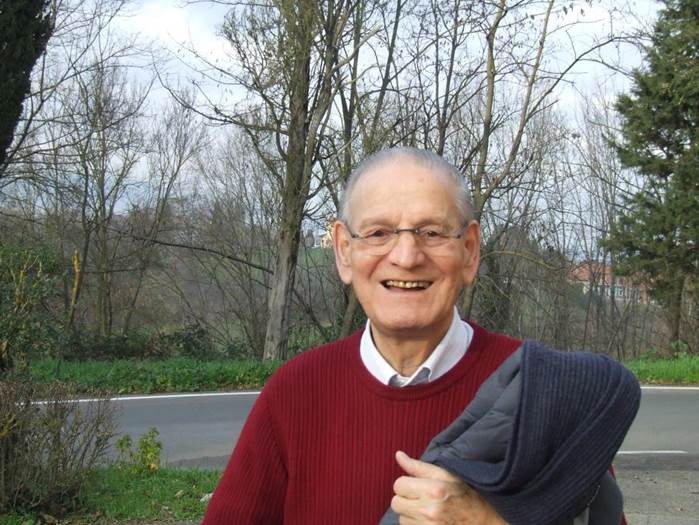
May 9, 2017 | Non categorizzato
 “This evening, Marco Tecilla, the first focolarino, is latest pearl to be added to the crown of Mary. With infinite gratitude, we gather around him in an embrace which unites heaven and earth,” writes Maria Voce, President of the Focolare Movement, when she announced the passing of Marco, the first young man to follow Chiara Lubich in the way of the Focolare. The funeral will be held tomorrow, Wednesday 10th May, at 11.00 am at the Mariapolis Centre in Castel Gandolfo (Rome).
“This evening, Marco Tecilla, the first focolarino, is latest pearl to be added to the crown of Mary. With infinite gratitude, we gather around him in an embrace which unites heaven and earth,” writes Maria Voce, President of the Focolare Movement, when she announced the passing of Marco, the first young man to follow Chiara Lubich in the way of the Focolare. The funeral will be held tomorrow, Wednesday 10th May, at 11.00 am at the Mariapolis Centre in Castel Gandolfo (Rome).
![Celebrating a Europe of Hope in Malta]()
May 9, 2017 | Focolare Worldwide
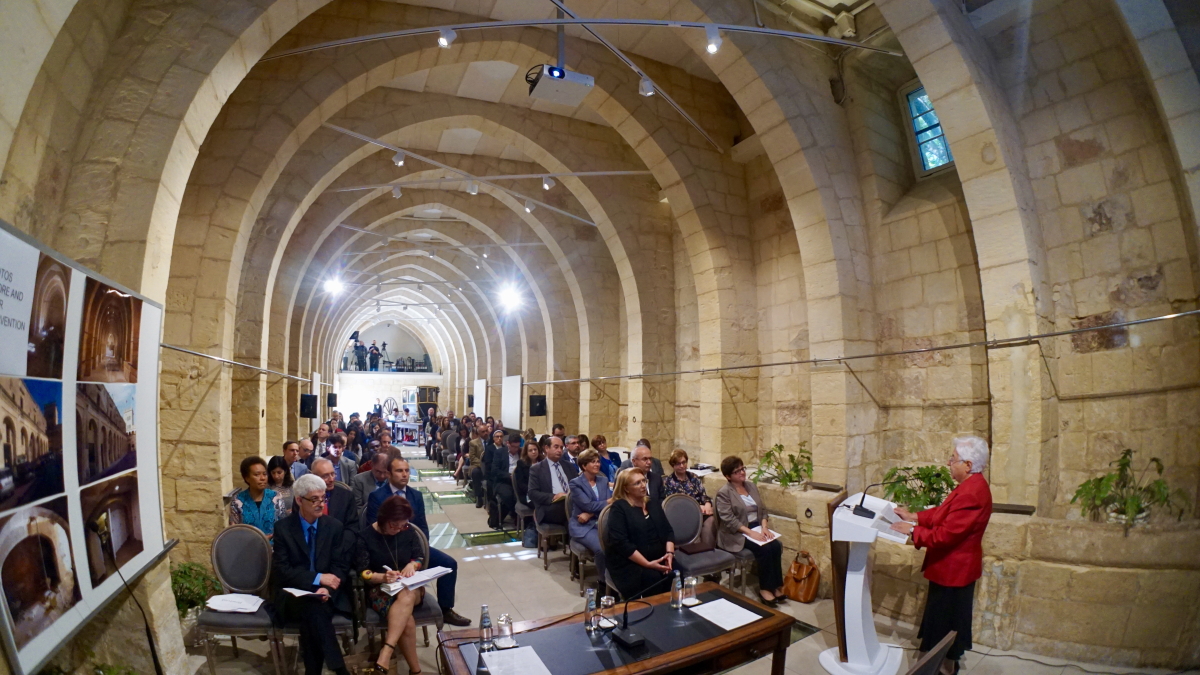 The visit (2-7 May) began with the participation on Monday, 2nd May, in the seminar promoted by “Communion and Law,” entitled, “Law as a means for integration in a multicultural society,” held in a meeting hall at the Presidential Palace, together with around 70 experts in the fields of immigration, education and employment. Among them were representatives of the Maltese Commission for refugees, representatives of the IOM and EASO Malta, Arnold Cassola, President of the Alternative Democratic Party (Alternattiva Demokratika), as well as law teachers and students. In her speech Maria Voce affirmed that the law can became an instrument for integration in society “if we overcome an exclusively formal vision, and focus on the concept of Law as an indispensable means for contributing to the creation of a reality of communion in society.” Citing the Together for Europe experience, born from an inspiration of Chiara Lubich, she talked about the actions that “appear like a prophetic sign of what Europe can become if its citizens will share more, the common experience that goes beyond the different cultures and ecclesiastical faiths,” and thus be a voice of “a Europe which, based on its own roots, opens out without fear to those who ask to be accepted and knows that the blend of peoples that have composed it for centuries can in turn blend with other peoples that will contribute to its development.” Each speech was backed by concrete initiatives, like the TANDEM project – presented by Apollos Pedro from Biafra, but a resident in Italy – which promotes peace and dialogue, giving people of different nationalities and religions the chance to live together.
The visit (2-7 May) began with the participation on Monday, 2nd May, in the seminar promoted by “Communion and Law,” entitled, “Law as a means for integration in a multicultural society,” held in a meeting hall at the Presidential Palace, together with around 70 experts in the fields of immigration, education and employment. Among them were representatives of the Maltese Commission for refugees, representatives of the IOM and EASO Malta, Arnold Cassola, President of the Alternative Democratic Party (Alternattiva Demokratika), as well as law teachers and students. In her speech Maria Voce affirmed that the law can became an instrument for integration in society “if we overcome an exclusively formal vision, and focus on the concept of Law as an indispensable means for contributing to the creation of a reality of communion in society.” Citing the Together for Europe experience, born from an inspiration of Chiara Lubich, she talked about the actions that “appear like a prophetic sign of what Europe can become if its citizens will share more, the common experience that goes beyond the different cultures and ecclesiastical faiths,” and thus be a voice of “a Europe which, based on its own roots, opens out without fear to those who ask to be accepted and knows that the blend of peoples that have composed it for centuries can in turn blend with other peoples that will contribute to its development.” Each speech was backed by concrete initiatives, like the TANDEM project – presented by Apollos Pedro from Biafra, but a resident in Italy – which promotes peace and dialogue, giving people of different nationalities and religions the chance to live together. 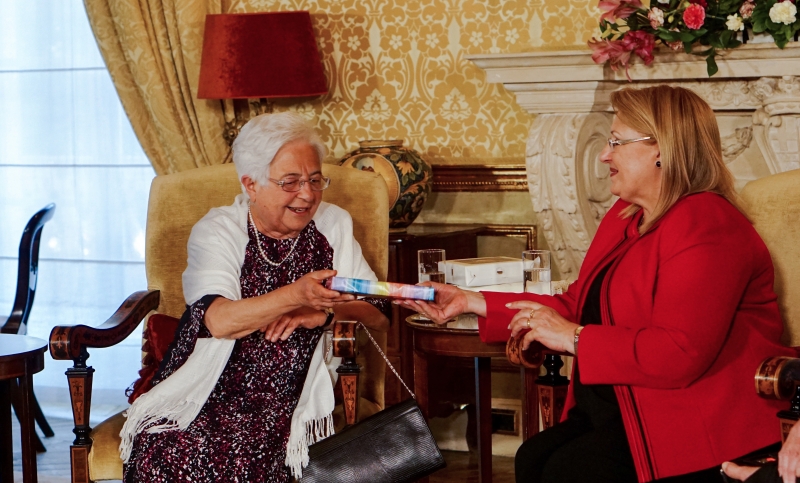 On 4th May, Maria Voce met with the President of the Republic of Malta, Marie-Louise Coleiro Preca, to whom she recounted the various branches of the Focolare Movement in Malta, and in particular the activities of New Humanity and the initiatives of the teenagers and young people. The President showed great interest and in the end, greeted the youth with a warm embrace. “The Focolare is like a vitamin boost. The art of loving is a precursor to positive peace in a world that is increasingly narcissistic and egocentric.” The children then presented her with the “Dice of love”. The Focolare President had been invited by the Malta Diocese, through its Ecumenical Commission, on the occasion of the 40th anniversary of its foundation. In this context, on 5th May, Maria Voce was received by the Archbishop C.J. Scicluna. Immediately afterwards, in the presence of 300 participants, she gave a conference on the topic “Dialogue or Dialogues – A Way of Life”.
On 4th May, Maria Voce met with the President of the Republic of Malta, Marie-Louise Coleiro Preca, to whom she recounted the various branches of the Focolare Movement in Malta, and in particular the activities of New Humanity and the initiatives of the teenagers and young people. The President showed great interest and in the end, greeted the youth with a warm embrace. “The Focolare is like a vitamin boost. The art of loving is a precursor to positive peace in a world that is increasingly narcissistic and egocentric.” The children then presented her with the “Dice of love”. The Focolare President had been invited by the Malta Diocese, through its Ecumenical Commission, on the occasion of the 40th anniversary of its foundation. In this context, on 5th May, Maria Voce was received by the Archbishop C.J. Scicluna. Immediately afterwards, in the presence of 300 participants, she gave a conference on the topic “Dialogue or Dialogues – A Way of Life”. 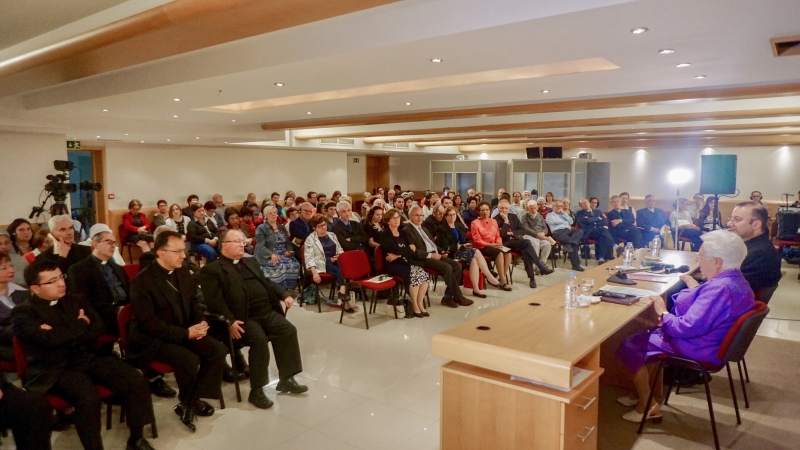 Also present were the Archbishop, the President of the Ecumenical Commission, the Vicar General, the Secretary of the Nunciature of Malta, the Nuncio of the Ivory Coast (of Maltese origin), a representative of the Romanian Orthodox Church, two members of the “Robert Schuman Centre for European Studies” and several members of ecclesial organisations. In tracing the rich history of the Movement’s ecumenical commitment, Maria Voce explained that the method of dialogue which Chiara Lubich promoted is love, “a dialogue between people, not between ideologies of systems of thought. She said that this must necessarily be supported and substantiated by mercy, compassion, and charity, summarised in the Golden Rule present in every culture and religion: Do to others whatever you wish others to do to you (Mt 7:12).” “The only way to ease the way to unity in truth is that of bowing before the others in the attitude of washing their feet (cf Jn 13) instead of telling them off. We need a lot of patience and humbleness.” Lastly, she presented the Ottmaring Declaration, published in Germany last 21 February, in which the Focolare Movement undertakes a greater ecumenical commitment. In the end, the Archbishop thanked Maria Voce for the work of the Focolare Movement in “arousing in people the thirst for unity.” He also recalled a phrase of Paul VI: “the world listens more to witnesses than to teachers.” Read about the Focolare in Malta
Also present were the Archbishop, the President of the Ecumenical Commission, the Vicar General, the Secretary of the Nunciature of Malta, the Nuncio of the Ivory Coast (of Maltese origin), a representative of the Romanian Orthodox Church, two members of the “Robert Schuman Centre for European Studies” and several members of ecclesial organisations. In tracing the rich history of the Movement’s ecumenical commitment, Maria Voce explained that the method of dialogue which Chiara Lubich promoted is love, “a dialogue between people, not between ideologies of systems of thought. She said that this must necessarily be supported and substantiated by mercy, compassion, and charity, summarised in the Golden Rule present in every culture and religion: Do to others whatever you wish others to do to you (Mt 7:12).” “The only way to ease the way to unity in truth is that of bowing before the others in the attitude of washing their feet (cf Jn 13) instead of telling them off. We need a lot of patience and humbleness.” Lastly, she presented the Ottmaring Declaration, published in Germany last 21 February, in which the Focolare Movement undertakes a greater ecumenical commitment. In the end, the Archbishop thanked Maria Voce for the work of the Focolare Movement in “arousing in people the thirst for unity.” He also recalled a phrase of Paul VI: “the world listens more to witnesses than to teachers.” Read about the Focolare in Malta
May 9, 2017 | Non categorizzato
Peace and unity are celebrated in Europe on May 9th. The date recalls the historic Schuman Declaration of May 9, 1950, in which the then French foreign minister proposed the creation of an economic community that would lead to the construction of a federation of European States that was indispensable in preserving peace. As a first step, Robert Schuman proposed the creation of a Coal and Steel Community for France and West Germany that could one day include other countries. He thus laid the foundations for a broader and much more comprehensive integration, to the point that today the Declaration is considered to be the symbolic beginning of the long process of peace and stability that led to the European Union. The celebration has always been an occasion to draw citizens, institutions and populations nearer to nearer to one another, increasing awareness that the human community should be founded on values of peace, integration and solidarity.
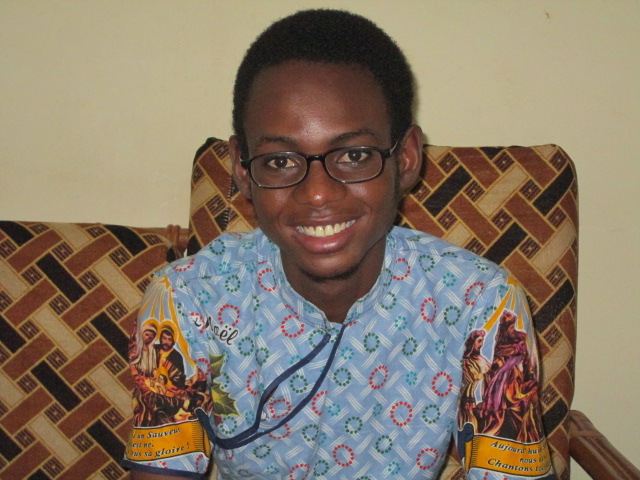
May 8, 2017 | Non categorizzato
 «Ever since our parents separated, my sister and I have been living with our father. It is a very difficult situation for me, also due to my health. I have been suffering from asthma and for two years now, also heart problems. Thanks to the support of many youths who like me try to live the spirituality of unity, these physical limits do not hinder me from living my Christian commitment with enthusiasm. Instead, as a student, things were not going well. In the public school I was attending, there was not much attention for students in my situation, and when I found out that I had to repeat the first year of high school, I changed school. In the new school I understood better the importance of education and the advantage of achieving a diploma. At the start of the year, my grades were good: evidently the new incentive was working well. One evening I had a terrible headache. I hoped that it would pass during the night since in the next days I was expecting a series of tests. Effectively in the morning the headache had disappeared, but when I took my books in hand, it returned, stronger than ever. The same thing happened every time I tried to concentrate on an intellectual task. I went to many hospitals but none were able to diagnose my disease. Meanwhile the average of my grades dropped, while my headache had become a permanent thing. My father had no more money to pay the doctors, so I tried to consult the traditional quack doctors, to no avail. Overcome by this situation strong doubts of faith started to assault me. I asked myself: out of seven billion people in this situation, why did this have to happen precisely to me, now that I had decided to take my studies seriously? Despite my rebellion I wanted to participate with the Gen in an educational weekend. I attended only to see my friends, and not really because I believed in it. The meeting started with a video-speech of Chiara Lubich, but I was so angry with God that I didn’t even listen, or want to give my contribution to the communion of goods. I was even less interested in what the others were saying. My mind wandered elsewhere. I thought that God had forgotten me, no one could understand me, and these meetings were useless. At a certain point, however, I was struck by a boy who said that in difficult moments we can give hope to others by valorizing our personal sufferings. And that it is precisely in making ourselves one with Jesus crucified and forsaken that we find the strength to love the others. These words were like a challenge to me. I said to myself: if Jesus on the cross had pulled back, what would we do now. From that moment on I found the strength to accept my situation and the certainty that God is love also when he permits suffering. And even if I continued to have headaches, I found the joy of living again, out of love for my sister and all those who tried to bring joy all around me. Thanks to the prayers of many, today I feel much better and if there are no other surprises, it seems that even my health has returned.»
«Ever since our parents separated, my sister and I have been living with our father. It is a very difficult situation for me, also due to my health. I have been suffering from asthma and for two years now, also heart problems. Thanks to the support of many youths who like me try to live the spirituality of unity, these physical limits do not hinder me from living my Christian commitment with enthusiasm. Instead, as a student, things were not going well. In the public school I was attending, there was not much attention for students in my situation, and when I found out that I had to repeat the first year of high school, I changed school. In the new school I understood better the importance of education and the advantage of achieving a diploma. At the start of the year, my grades were good: evidently the new incentive was working well. One evening I had a terrible headache. I hoped that it would pass during the night since in the next days I was expecting a series of tests. Effectively in the morning the headache had disappeared, but when I took my books in hand, it returned, stronger than ever. The same thing happened every time I tried to concentrate on an intellectual task. I went to many hospitals but none were able to diagnose my disease. Meanwhile the average of my grades dropped, while my headache had become a permanent thing. My father had no more money to pay the doctors, so I tried to consult the traditional quack doctors, to no avail. Overcome by this situation strong doubts of faith started to assault me. I asked myself: out of seven billion people in this situation, why did this have to happen precisely to me, now that I had decided to take my studies seriously? Despite my rebellion I wanted to participate with the Gen in an educational weekend. I attended only to see my friends, and not really because I believed in it. The meeting started with a video-speech of Chiara Lubich, but I was so angry with God that I didn’t even listen, or want to give my contribution to the communion of goods. I was even less interested in what the others were saying. My mind wandered elsewhere. I thought that God had forgotten me, no one could understand me, and these meetings were useless. At a certain point, however, I was struck by a boy who said that in difficult moments we can give hope to others by valorizing our personal sufferings. And that it is precisely in making ourselves one with Jesus crucified and forsaken that we find the strength to love the others. These words were like a challenge to me. I said to myself: if Jesus on the cross had pulled back, what would we do now. From that moment on I found the strength to accept my situation and the certainty that God is love also when he permits suffering. And even if I continued to have headaches, I found the joy of living again, out of love for my sister and all those who tried to bring joy all around me. Thanks to the prayers of many, today I feel much better and if there are no other surprises, it seems that even my health has returned.»
May 7, 2017 | Non categorizzato
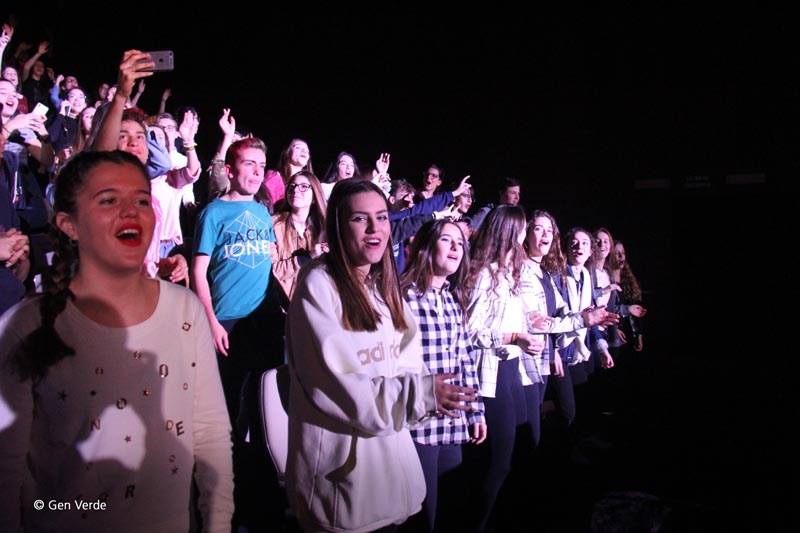
May 6, 2017 | Non categorizzato
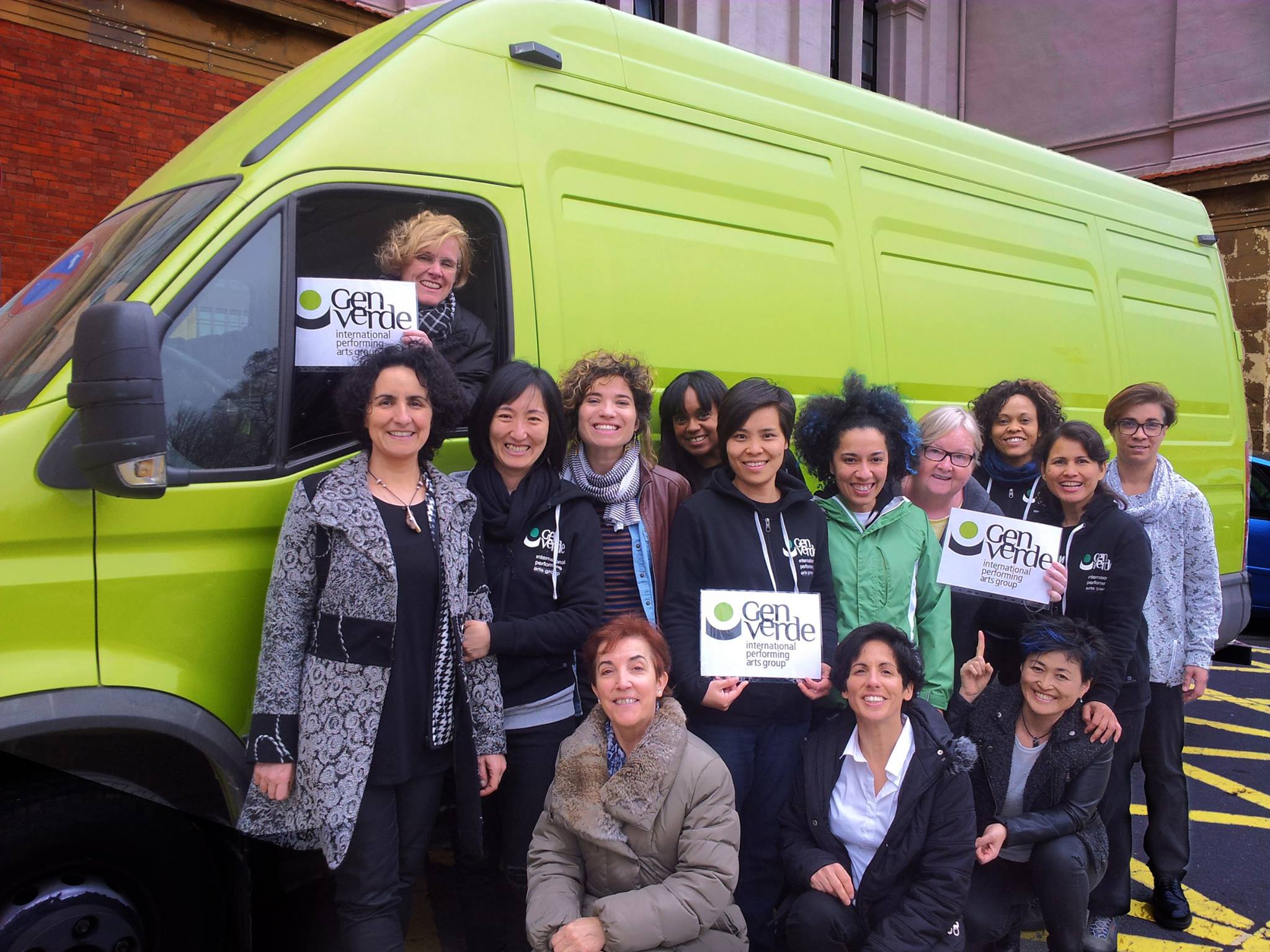 Recent opinion polls paint a bleak picture of Spanish young people describing them as disillusioned by politics, suspicious of social programs, imprisoned by an uncertainty that shatters their dreams and hopes for the future. They would appear to be practically an “existential periphery” abandoned to itself. And yet, during their recently concluded long tour, Gen Verde came across young people who were upbeat,resourceful, hoping to live meaningful and generous experiences, while at the same time accepting the challenge they bring. The group brought their show “On the Other Side” featuring the “Start Now Project” to a number of Spanish cities. Its tried and tested formula, involves five days of living together with young people. Three are dedicated to workshops where the band – made up of 22 people from 14 countries – work on singing, drama, percussion and dance. Then there is one day for rehearsals and the show, which they put on together with the young people. The last day is to share feedback on the experience lived together. These are moments in which everyone has an opportunity to experience fraternity, to see with their own eyes that what they are looking for exists and can be achieved. We can definitely talk about a before and after the workshops,” affirms Sally McAllister, the Irish manager of the group. “The young people work hard, not just in terms of preparing a performance, but on relating to each other as well. They meet those who are different from themselves, and they learn how to manage the cultural complexity of the people they interact with, and how to appreciate the positive, enriching values. So the goal is to enable them to have an experience which is enriching for them as human beings, as well as artistically, so they can become people who are able to welcome, understand and value others, whoever they are. They pass from a sense of insecurity, fear, and even hate sometimes, to attitudes that are based on trust and inclusion.”
Recent opinion polls paint a bleak picture of Spanish young people describing them as disillusioned by politics, suspicious of social programs, imprisoned by an uncertainty that shatters their dreams and hopes for the future. They would appear to be practically an “existential periphery” abandoned to itself. And yet, during their recently concluded long tour, Gen Verde came across young people who were upbeat,resourceful, hoping to live meaningful and generous experiences, while at the same time accepting the challenge they bring. The group brought their show “On the Other Side” featuring the “Start Now Project” to a number of Spanish cities. Its tried and tested formula, involves five days of living together with young people. Three are dedicated to workshops where the band – made up of 22 people from 14 countries – work on singing, drama, percussion and dance. Then there is one day for rehearsals and the show, which they put on together with the young people. The last day is to share feedback on the experience lived together. These are moments in which everyone has an opportunity to experience fraternity, to see with their own eyes that what they are looking for exists and can be achieved. We can definitely talk about a before and after the workshops,” affirms Sally McAllister, the Irish manager of the group. “The young people work hard, not just in terms of preparing a performance, but on relating to each other as well. They meet those who are different from themselves, and they learn how to manage the cultural complexity of the people they interact with, and how to appreciate the positive, enriching values. So the goal is to enable them to have an experience which is enriching for them as human beings, as well as artistically, so they can become people who are able to welcome, understand and value others, whoever they are. They pass from a sense of insecurity, fear, and even hate sometimes, to attitudes that are based on trust and inclusion.”  Gen Verde are not offering a pie in the sky illusion, but ideals and tools with which to build the world we all dream of -starting here and now with each person. And everywhere “young people are like fire – all you need to do is provide the spark, and who can stop them once they set aflame?” And so it was along the various stages of the journey: Burgos, Jaén, Murcia, Huétor Tájar, Albacete, Pozuelo, Bilbao, Pamplona, Azpeitia, Talavera de la Reina … each with its own colour and unrepeatable characteristics, as we can see from the news on the Gen Verde website. These authentic exchanges were welcomed enthusiastically everywhere, such as at Huétor Tájar, where the bienvenida (welcome) came from a square teeming with families, youth and children, with music and songs from the group on huge screens. At the end around 30 of the youngest students from a school of flamenco and rhythmic gymnastics danced to a flamenco version of Gen Verde’s new song “Turn It Up.” A country of sad, hopeless young people? Anything but, the feedback says clearly. “I cried, I smiled, I danced… but above all I came away with a great hope in a world that really needs it.” “I learned values without anyone telling me what to do.” “After just a few days of work it felt like we were a true family.” “I discovered that people who work for a common goal are more open.” “There was nothing theoretical; all together we put into practice the values of fraternity, dialogue and sharing that we learned these days as we worked.” “Start Now is something fantastic, a project that is educational, social, cultural and spiritual.” The words that best sum up the legacy of the tour come from one of the many young people Gen Verde met. Simple and tangible, they express both achallenge and a commitment: “If we have a dream, we don’t want to achieve it tomorrow, we want to do it today, if we possibly can.”
Gen Verde are not offering a pie in the sky illusion, but ideals and tools with which to build the world we all dream of -starting here and now with each person. And everywhere “young people are like fire – all you need to do is provide the spark, and who can stop them once they set aflame?” And so it was along the various stages of the journey: Burgos, Jaén, Murcia, Huétor Tájar, Albacete, Pozuelo, Bilbao, Pamplona, Azpeitia, Talavera de la Reina … each with its own colour and unrepeatable characteristics, as we can see from the news on the Gen Verde website. These authentic exchanges were welcomed enthusiastically everywhere, such as at Huétor Tájar, where the bienvenida (welcome) came from a square teeming with families, youth and children, with music and songs from the group on huge screens. At the end around 30 of the youngest students from a school of flamenco and rhythmic gymnastics danced to a flamenco version of Gen Verde’s new song “Turn It Up.” A country of sad, hopeless young people? Anything but, the feedback says clearly. “I cried, I smiled, I danced… but above all I came away with a great hope in a world that really needs it.” “I learned values without anyone telling me what to do.” “After just a few days of work it felt like we were a true family.” “I discovered that people who work for a common goal are more open.” “There was nothing theoretical; all together we put into practice the values of fraternity, dialogue and sharing that we learned these days as we worked.” “Start Now is something fantastic, a project that is educational, social, cultural and spiritual.” The words that best sum up the legacy of the tour come from one of the many young people Gen Verde met. Simple and tangible, they express both achallenge and a commitment: “If we have a dream, we don’t want to achieve it tomorrow, we want to do it today, if we possibly can.”
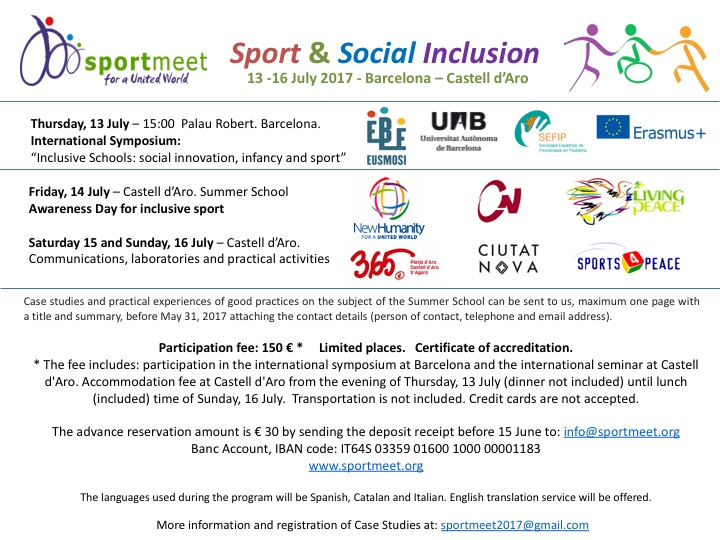
May 5, 2017 | Non categorizzato
 Summer school 2017 ENG
Summer school 2017 ENG
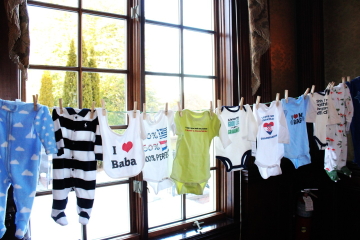
May 5, 2017 | Non categorizzato
 Trusting in God “At the news that I was expecting twins, we entrusted ourselves to God. We already had six children and my husband wasn’t earning much. One day, a friend of mine, also pregnant, was undergoing some economic difficulties. I gave her some of my children’s things. A few days after, I received a gift of two beautiful and valuable baby-care kits from my aunt. Furthermore, just after the birth of the twins, my husband got a promotion with a remarkable salary increase. This encouraged us to always trust in God.” A.M. – Brazil A small light “It is a confusing and problematic period at home. There are days when at times I experience moments of darkness and abandonment. But a mother like me should not give up: what matters is to love my family the way I am. I am not alone! I saw that only through detachment from ourselves, and taking Mary as a model can make us progress. I started to live this way and God sent me a small light. If I continue to be guided by love, this light will grow and God will make it shine for all”. Margrit – Switzerland From the diary of a terminally ill person “I am deeply convinced that the Lord loves us always whether he consoles us or puts us to the test, to fulfil His masterpiece in us in a short time. With the passing of time, many useless things have happened in my life, like dead leaves in autumn. And now between Him and me, there is a more direct relationship, without intermediaries. For some years now, new health trials have begun. Recently a more serious one came up, for which a remedy still has not been found. It seems that my life is entering into a narrow passage. But at the same time I feel that God is closer to me and that my days are in His hands.” Filippo – Italy An old paralysed religious “Ever since I was struck by a paralysis in my lower limbs a few years ago, I have had to fight the temptation of feeling that I have been left on a ‘dead-end track’. Now I depend on others for all my needs. The world for me has become a room, and I have to entrust myself to faith to give a meaning to my life and discover its value. It’s true that, given my conditions, I can no longer influence the near and far events. However, I have this marvellous adventure to live. All can be an occasion for praise, thanks, prayer, and offering. Also Jesus on the cross no longer worked miracles or announced the Kingdom, but continued to love, and on the other hand, manifested a greater and purer love. Being motionless does not signify stagnation.” Fr Vittorio – Italy
Trusting in God “At the news that I was expecting twins, we entrusted ourselves to God. We already had six children and my husband wasn’t earning much. One day, a friend of mine, also pregnant, was undergoing some economic difficulties. I gave her some of my children’s things. A few days after, I received a gift of two beautiful and valuable baby-care kits from my aunt. Furthermore, just after the birth of the twins, my husband got a promotion with a remarkable salary increase. This encouraged us to always trust in God.” A.M. – Brazil A small light “It is a confusing and problematic period at home. There are days when at times I experience moments of darkness and abandonment. But a mother like me should not give up: what matters is to love my family the way I am. I am not alone! I saw that only through detachment from ourselves, and taking Mary as a model can make us progress. I started to live this way and God sent me a small light. If I continue to be guided by love, this light will grow and God will make it shine for all”. Margrit – Switzerland From the diary of a terminally ill person “I am deeply convinced that the Lord loves us always whether he consoles us or puts us to the test, to fulfil His masterpiece in us in a short time. With the passing of time, many useless things have happened in my life, like dead leaves in autumn. And now between Him and me, there is a more direct relationship, without intermediaries. For some years now, new health trials have begun. Recently a more serious one came up, for which a remedy still has not been found. It seems that my life is entering into a narrow passage. But at the same time I feel that God is closer to me and that my days are in His hands.” Filippo – Italy An old paralysed religious “Ever since I was struck by a paralysis in my lower limbs a few years ago, I have had to fight the temptation of feeling that I have been left on a ‘dead-end track’. Now I depend on others for all my needs. The world for me has become a room, and I have to entrust myself to faith to give a meaning to my life and discover its value. It’s true that, given my conditions, I can no longer influence the near and far events. However, I have this marvellous adventure to live. All can be an occasion for praise, thanks, prayer, and offering. Also Jesus on the cross no longer worked miracles or announced the Kingdom, but continued to love, and on the other hand, manifested a greater and purer love. Being motionless does not signify stagnation.” Fr Vittorio – Italy
May 4, 2017 | Non categorizzato
The sports relay race promoted by the Teens for Unity of the Focolare Movement is about to start. It takes place every year, on the first Sunday of May, from 11 am to 12 noon (in the various time zones), during the United World Week. The baton is passed across the planet, with sports events, actions of solidarity and proactive citizens projects, especially in places marked by solitude, poverty, isolation. Important figures of the world of sports and culture, civil and religious authorities will participate. The web site will help in gathering in real time the social network contributions. In the previous editions, the relay race involved over 100,000 teenagers worldwide.
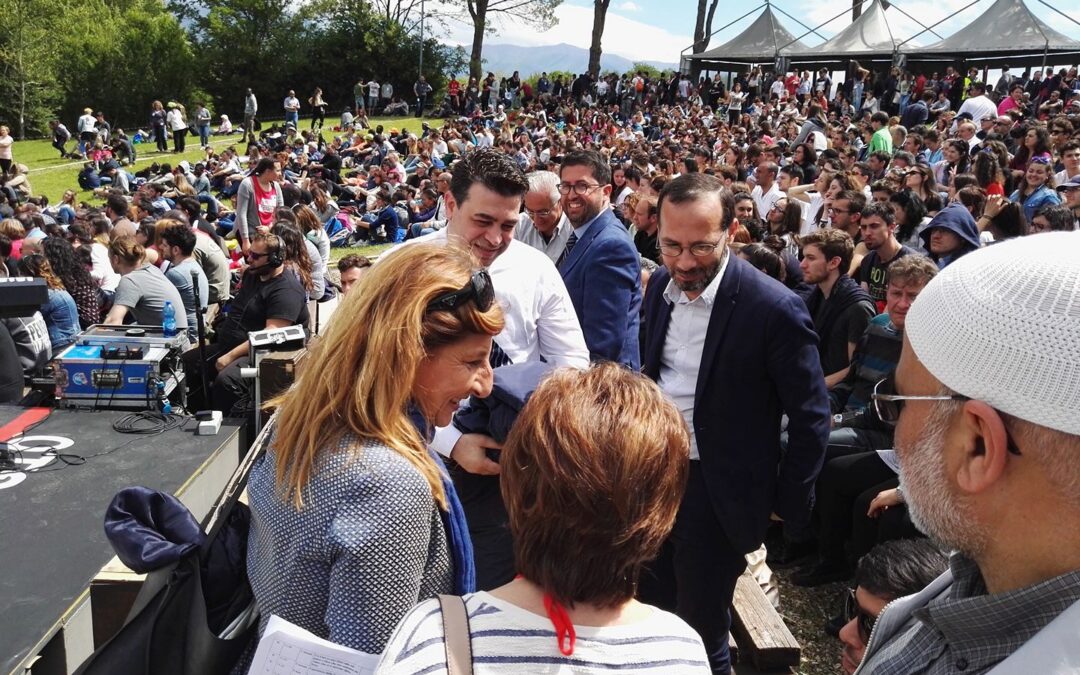
May 4, 2017 | Focolare Worldwide
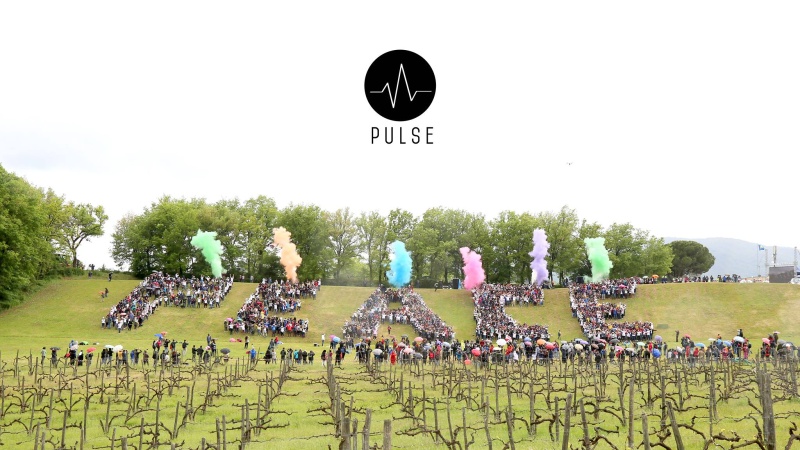 One image stood out, the word PEACE formed by the participants themselves on the front of a hill. One sound stood out, the sound of hand clapping to the same beat, a symbol of many hearts together in the boat of life where we are all migrant voyagers. On song for all, Hope is the eternal voice that guides us towards salvation. The annual appointment came to its symbolic end beneath an explosion of cannons loaded with colours – from green to fuchsia, on the first of May in Loppiano, at the International Meeting of Young People for a United World, during United World Week 2017, which was titled “Pulse: Change your heart, change the world.” Ever since 1973 when the first edition of the event was held in the small city of central Italy, a colourful crowd of crowd of thousands of young people from Italy, Europe and around the world have descended on Loppiano every May. It is a festive event that is like a model of living in peace with others, beginning from the young people, generations that are interconnected by nature and culture, and more inclined to putting up bridges rather than walls. Daily events included discussions, testimonies, music, dance, choreographies, all in the name of peace and the construction of a more united world, which has seen the commitment of the young people from t he Focolare Movement in collaboration with other associations and movements, such as New Horizons, the Community of San Egidio, La Pira International Centre, Living Peace, Robins, Barbiana, Economia disarmata, Il varco, and Non dalla guerra.There was a significant presence from the Muslim community of Italy, with support from the Imams of Massa Carrara, Teramo, Trieste and Veneto. The artistic quality was ensured thanks to the Gen Rosso and Gen Verde musical groups, DanceLab Cultural Harmony Associaton, singing performers Amara and Paolo Vallesi, who were on their way back from the Sanremo Musical Festival, and numerous other bands from different cities of Italy – all of them united by a strong desire for peace, and by the dream of a more inclusive world, more equal and fraternal. And that enthusiasm, not even the rain could wash away. While the greats of the world threaten new and ruinous acts of war, which are appalling to most, on the main stage of the natural amphitheatre of Loppiano, a series of stories “from below” were being proclaimed, real stories that if they were told enough times would change the course of history. Like the story of Mohamed, recounted by Luca, who had arrived in Italy in a boat after a dangerous crossing. Or like the story of a group of very young Christians from Syria who in a video message expressed their love for their martyred land. The forward gaze of the Harmony Dancelab Association was not a fake facade of pacifism, while it is holding Fine Arts workshops for children of the Palestinian territories with the help of Father Ibrahim Faltas from the Custody of the Holy Land.
One image stood out, the word PEACE formed by the participants themselves on the front of a hill. One sound stood out, the sound of hand clapping to the same beat, a symbol of many hearts together in the boat of life where we are all migrant voyagers. On song for all, Hope is the eternal voice that guides us towards salvation. The annual appointment came to its symbolic end beneath an explosion of cannons loaded with colours – from green to fuchsia, on the first of May in Loppiano, at the International Meeting of Young People for a United World, during United World Week 2017, which was titled “Pulse: Change your heart, change the world.” Ever since 1973 when the first edition of the event was held in the small city of central Italy, a colourful crowd of crowd of thousands of young people from Italy, Europe and around the world have descended on Loppiano every May. It is a festive event that is like a model of living in peace with others, beginning from the young people, generations that are interconnected by nature and culture, and more inclined to putting up bridges rather than walls. Daily events included discussions, testimonies, music, dance, choreographies, all in the name of peace and the construction of a more united world, which has seen the commitment of the young people from t he Focolare Movement in collaboration with other associations and movements, such as New Horizons, the Community of San Egidio, La Pira International Centre, Living Peace, Robins, Barbiana, Economia disarmata, Il varco, and Non dalla guerra.There was a significant presence from the Muslim community of Italy, with support from the Imams of Massa Carrara, Teramo, Trieste and Veneto. The artistic quality was ensured thanks to the Gen Rosso and Gen Verde musical groups, DanceLab Cultural Harmony Associaton, singing performers Amara and Paolo Vallesi, who were on their way back from the Sanremo Musical Festival, and numerous other bands from different cities of Italy – all of them united by a strong desire for peace, and by the dream of a more inclusive world, more equal and fraternal. And that enthusiasm, not even the rain could wash away. While the greats of the world threaten new and ruinous acts of war, which are appalling to most, on the main stage of the natural amphitheatre of Loppiano, a series of stories “from below” were being proclaimed, real stories that if they were told enough times would change the course of history. Like the story of Mohamed, recounted by Luca, who had arrived in Italy in a boat after a dangerous crossing. Or like the story of a group of very young Christians from Syria who in a video message expressed their love for their martyred land. The forward gaze of the Harmony Dancelab Association was not a fake facade of pacifism, while it is holding Fine Arts workshops for children of the Palestinian territories with the help of Father Ibrahim Faltas from the Custody of the Holy Land. 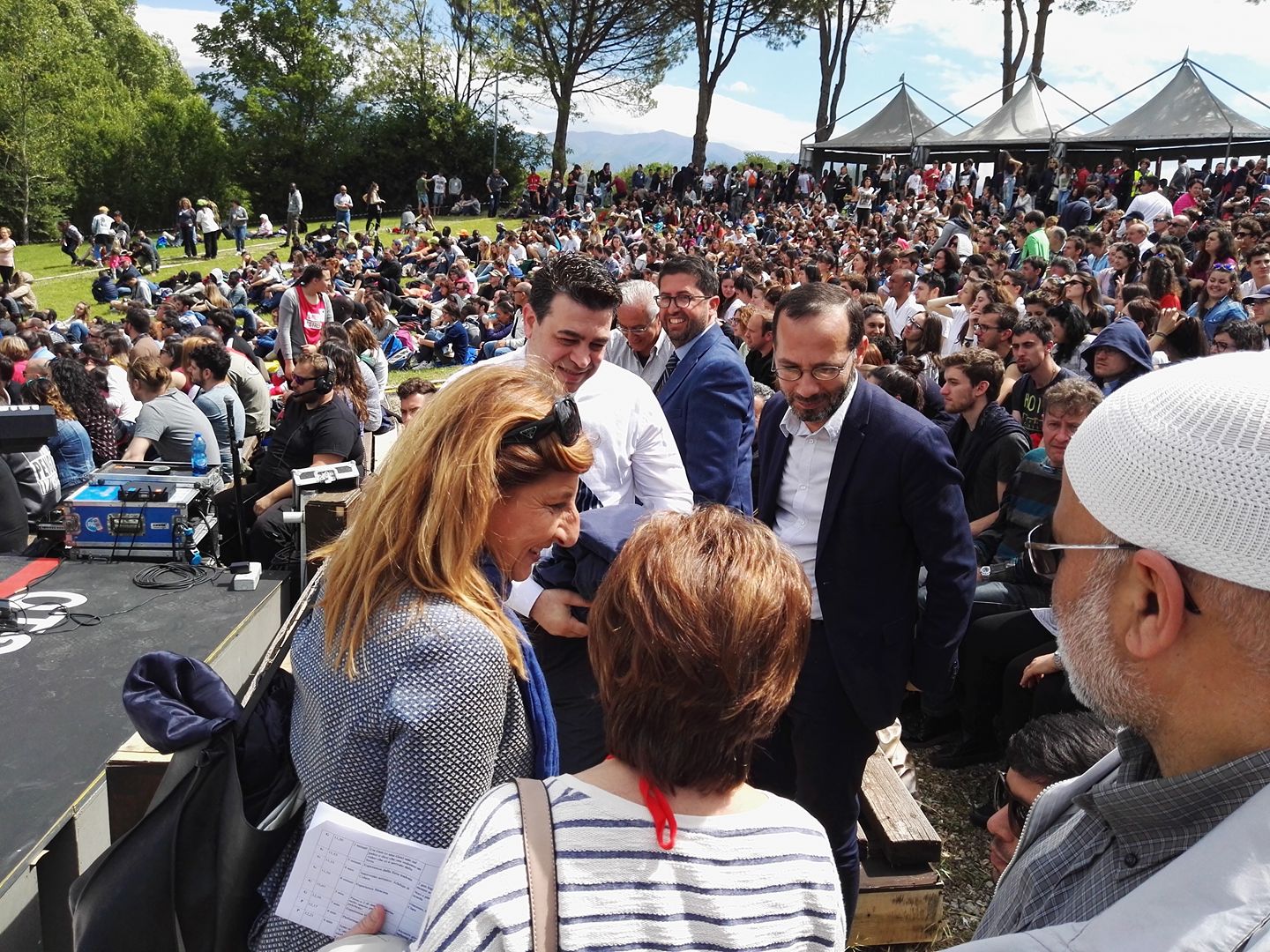 Heedless of all the rain, on the first afternoon, the young people began to trace the silhouette of a boat. Or perhaps the rain was precisely the missing detail, since the the journeys of today’s immigrants who are at the mercy of the waves in the hope of finding a peaceful and dignified future, are not void of threats and dangers. This is something that Giusi Nicolini, Mayor of Lambedusa, Italy and 2017 Peace Prize winner knows well. It’s raining on the hill as the message of peace is being formed, which is the theme of the musical piece by Amara and Paolo Vallesi, and it has become the theme of the day. But the brilliant colours exploding from un-warlike cannons, manage to overcome the grey clouds, the same colours that the young people gather from large sacks, before departing amidst a festive atmosphere. It represents the promise and commitment to “get their hands dirty” in bringing about a world of peace.
Heedless of all the rain, on the first afternoon, the young people began to trace the silhouette of a boat. Or perhaps the rain was precisely the missing detail, since the the journeys of today’s immigrants who are at the mercy of the waves in the hope of finding a peaceful and dignified future, are not void of threats and dangers. This is something that Giusi Nicolini, Mayor of Lambedusa, Italy and 2017 Peace Prize winner knows well. It’s raining on the hill as the message of peace is being formed, which is the theme of the musical piece by Amara and Paolo Vallesi, and it has become the theme of the day. But the brilliant colours exploding from un-warlike cannons, manage to overcome the grey clouds, the same colours that the young people gather from large sacks, before departing amidst a festive atmosphere. It represents the promise and commitment to “get their hands dirty” in bringing about a world of peace.
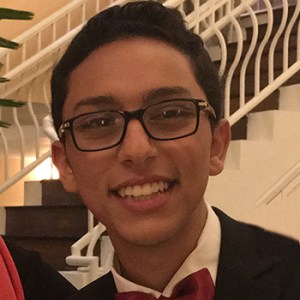
May 3, 2017 | Focolare Worldwide, Senza categoria
 “May peace be with you,” Omar Abou Baker exhorts, who has been a peace ambassador since 2016 when the World Forum of Young People for Peace, held in Egypt, named him and 47 other young people between the ages of 8 and 23 ambassadors of peace. “I belong to the Heliopolis Choir of Cairo, which was begun for the sole purpose of spreading a culture of peace. Last year we organized a celebration for World Peace Day. This was the first time we presented ourselves to different embassies, explaining who we are and what our goal is. Through our shows we managed to convey to a vast audience that included ambassadors, actors, songs and famous people, our desire to build peace in our world.” During Ramadan, a sacred month for the Muslim world, when you fast from first light until sundown, the ambassadors organized dinners for 400 people in need. Everyone got to work using their own special talents: some got food, others presented songs, recitations, dances, games, face-painting for the children . . . But mostly we put our efforts into creating personal relationships. Together with other organizations we were able to hold a marathon for athletes with disabilities. Their lives represent a constant challenge. Each ambassador was responsible for one aspect of the event. The choir prepared songs to celebrate their feats; others worked on presentations, taking pictures or running particular events and workshops. On the National Day of Orphans the children sang in the choir with us. It was a meaningful experience for them, because by expressing themselves through music, they developed a bit more self confidence.” “I believe that peace is a very high concept that is attainable only if people make every effort possible to render it real. Because peace isn’t a word in an article or a lyric in a song. It’s a common effort that should be based on a whole series of values to be lived out by each and every one of us: justice, tolerance, helping others . . . The only way to actually build a world of peace and brotherhood is to put love into action. If I’m here today,” Omar concluded, “it’s to testify both with my word and with my life, that peace is possible if it begins from me.”
“May peace be with you,” Omar Abou Baker exhorts, who has been a peace ambassador since 2016 when the World Forum of Young People for Peace, held in Egypt, named him and 47 other young people between the ages of 8 and 23 ambassadors of peace. “I belong to the Heliopolis Choir of Cairo, which was begun for the sole purpose of spreading a culture of peace. Last year we organized a celebration for World Peace Day. This was the first time we presented ourselves to different embassies, explaining who we are and what our goal is. Through our shows we managed to convey to a vast audience that included ambassadors, actors, songs and famous people, our desire to build peace in our world.” During Ramadan, a sacred month for the Muslim world, when you fast from first light until sundown, the ambassadors organized dinners for 400 people in need. Everyone got to work using their own special talents: some got food, others presented songs, recitations, dances, games, face-painting for the children . . . But mostly we put our efforts into creating personal relationships. Together with other organizations we were able to hold a marathon for athletes with disabilities. Their lives represent a constant challenge. Each ambassador was responsible for one aspect of the event. The choir prepared songs to celebrate their feats; others worked on presentations, taking pictures or running particular events and workshops. On the National Day of Orphans the children sang in the choir with us. It was a meaningful experience for them, because by expressing themselves through music, they developed a bit more self confidence.” “I believe that peace is a very high concept that is attainable only if people make every effort possible to render it real. Because peace isn’t a word in an article or a lyric in a song. It’s a common effort that should be based on a whole series of values to be lived out by each and every one of us: justice, tolerance, helping others . . . The only way to actually build a world of peace and brotherhood is to put love into action. If I’m here today,” Omar concluded, “it’s to testify both with my word and with my life, that peace is possible if it begins from me.”
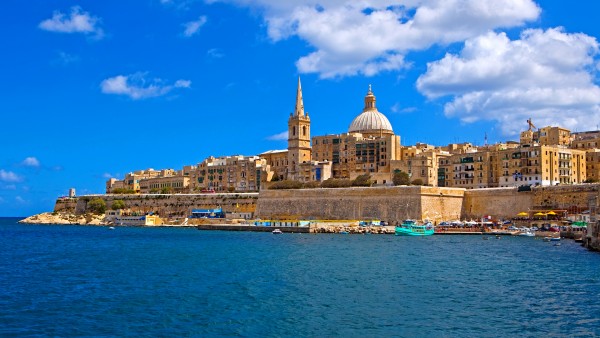
May 2, 2017 | Non categorizzato
Schedule of meetings  2 May: Maria Voce, President of the Focolare Movement, will be the guest of honour at a seminar organised by Communion & Law entitled “Law as a Tool for Integration in a Multicultural Society” at San Anton Palace, Attard, with the participation of experts from various fields of immigration, education and employment. 4 May: Meeting with the President of the Republic of Malta, Her Excellency Marie-Louise Coleiro Preca. 5 May: Meeting with the Archbishop of Malta, Monsignor C.J. Scicluna. Maria Voce was invited by the Diocese of Malta, through its Ecumenical Commission, on the 40th anniversary of its founding. In that context, she will hold a public conference entitled “Dialogue or Dialogues? A Way of Life”. 7 May: The opening ceremony of the State of Europe Forum entitled “Towards a Europe of Hope, Healing and Hospitality” will take place at the Anglican Cathedral of St. Paul, and will thereafter proceed in a procession to the Catholic Co-Cathedral of St John, where Maria Voce and the Archbishop of Malta, Monsignor C.J. Scicluna, will address those present.
2 May: Maria Voce, President of the Focolare Movement, will be the guest of honour at a seminar organised by Communion & Law entitled “Law as a Tool for Integration in a Multicultural Society” at San Anton Palace, Attard, with the participation of experts from various fields of immigration, education and employment. 4 May: Meeting with the President of the Republic of Malta, Her Excellency Marie-Louise Coleiro Preca. 5 May: Meeting with the Archbishop of Malta, Monsignor C.J. Scicluna. Maria Voce was invited by the Diocese of Malta, through its Ecumenical Commission, on the 40th anniversary of its founding. In that context, she will hold a public conference entitled “Dialogue or Dialogues? A Way of Life”. 7 May: The opening ceremony of the State of Europe Forum entitled “Towards a Europe of Hope, Healing and Hospitality” will take place at the Anglican Cathedral of St. Paul, and will thereafter proceed in a procession to the Catholic Co-Cathedral of St John, where Maria Voce and the Archbishop of Malta, Monsignor C.J. Scicluna, will address those present.
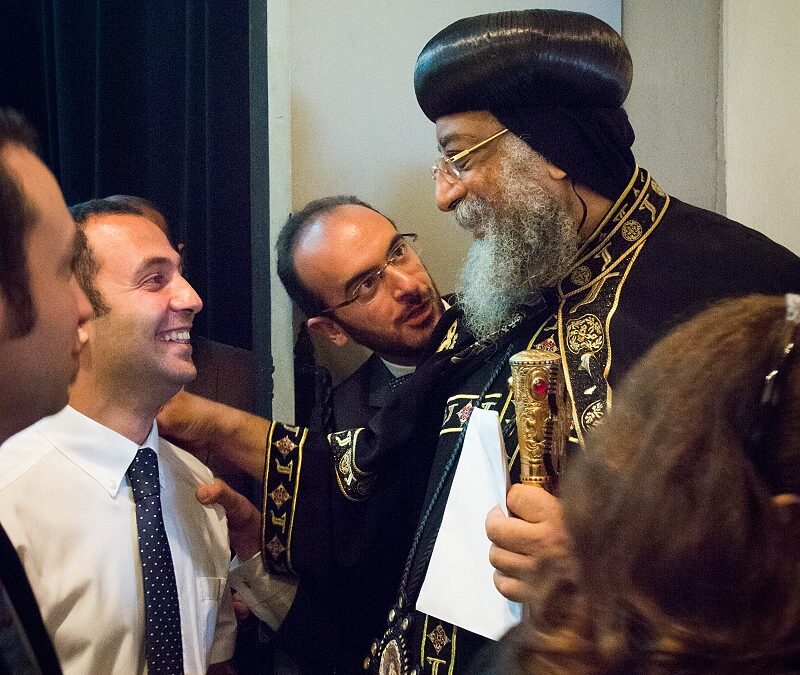
May 2, 2017 | Non categorizzato
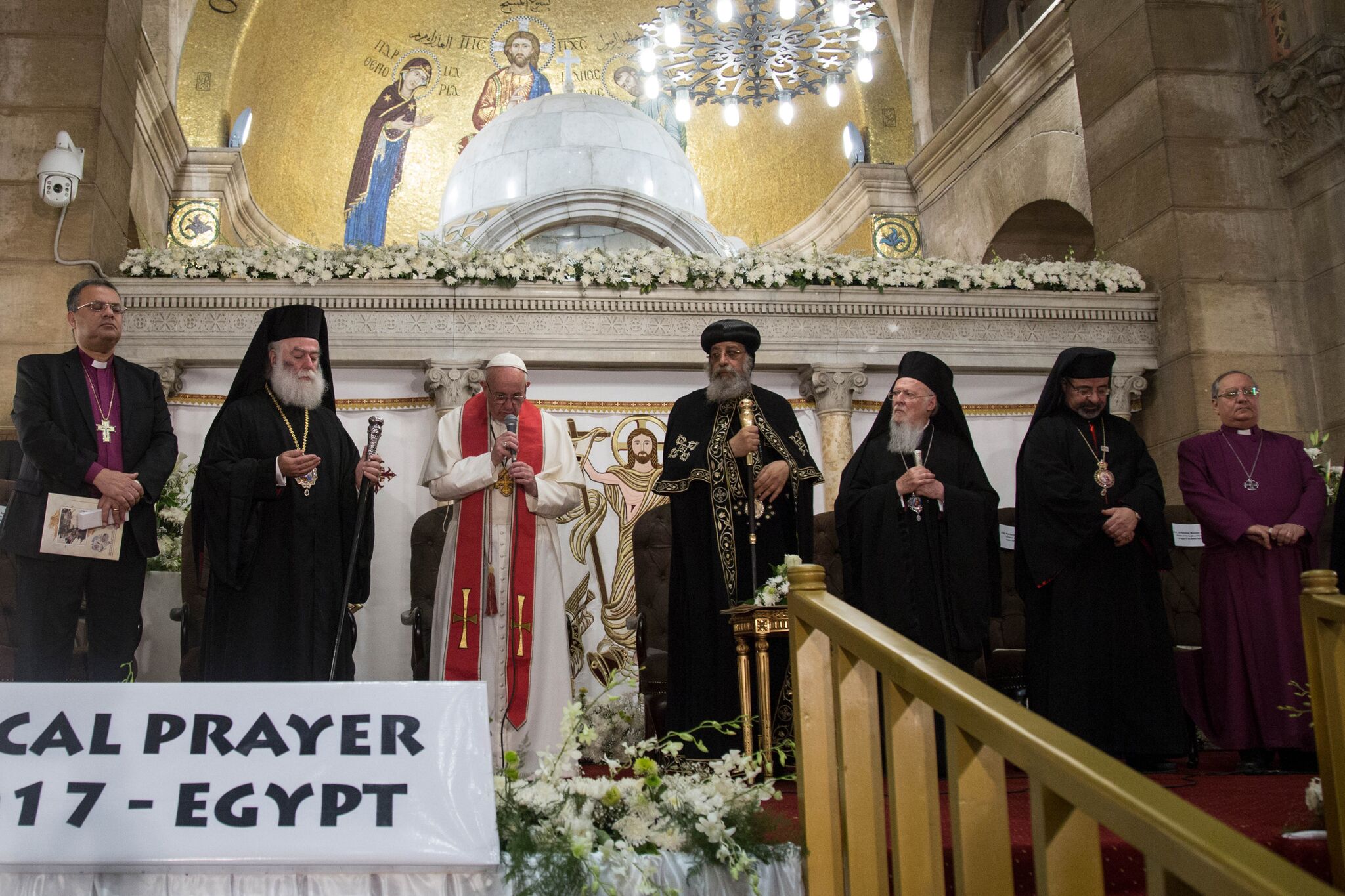
Photo: Roger Anis
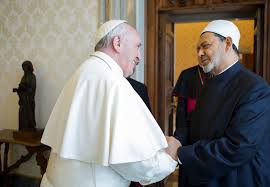 The second invitation was offered by President Al-Sisi when he visited the Vatican in 2014. He’s trying to bring ahead a culture of peace, not without difficulty. But the pope went beyond the politics, in depth. The third invitation came from the Grand Imam of al-Azhar in 2016. On that occasion the pope gave the Encyclical Laudato sii in a gesture of seeking what unites us. In my opinion it was quite courageous of the Grand Imam to offer this invitation, given the precedents. The pope’s speech at al-Azhar University was important, perhaps a beginning. Now I think time will be needed and courage to face the more delicate questions and in order to delve more deeply into the history as well . . . Now it’s up to us Egyptians to get working and moving forward.”
The second invitation was offered by President Al-Sisi when he visited the Vatican in 2014. He’s trying to bring ahead a culture of peace, not without difficulty. But the pope went beyond the politics, in depth. The third invitation came from the Grand Imam of al-Azhar in 2016. On that occasion the pope gave the Encyclical Laudato sii in a gesture of seeking what unites us. In my opinion it was quite courageous of the Grand Imam to offer this invitation, given the precedents. The pope’s speech at al-Azhar University was important, perhaps a beginning. Now I think time will be needed and courage to face the more delicate questions and in order to delve more deeply into the history as well . . . Now it’s up to us Egyptians to get working and moving forward.” 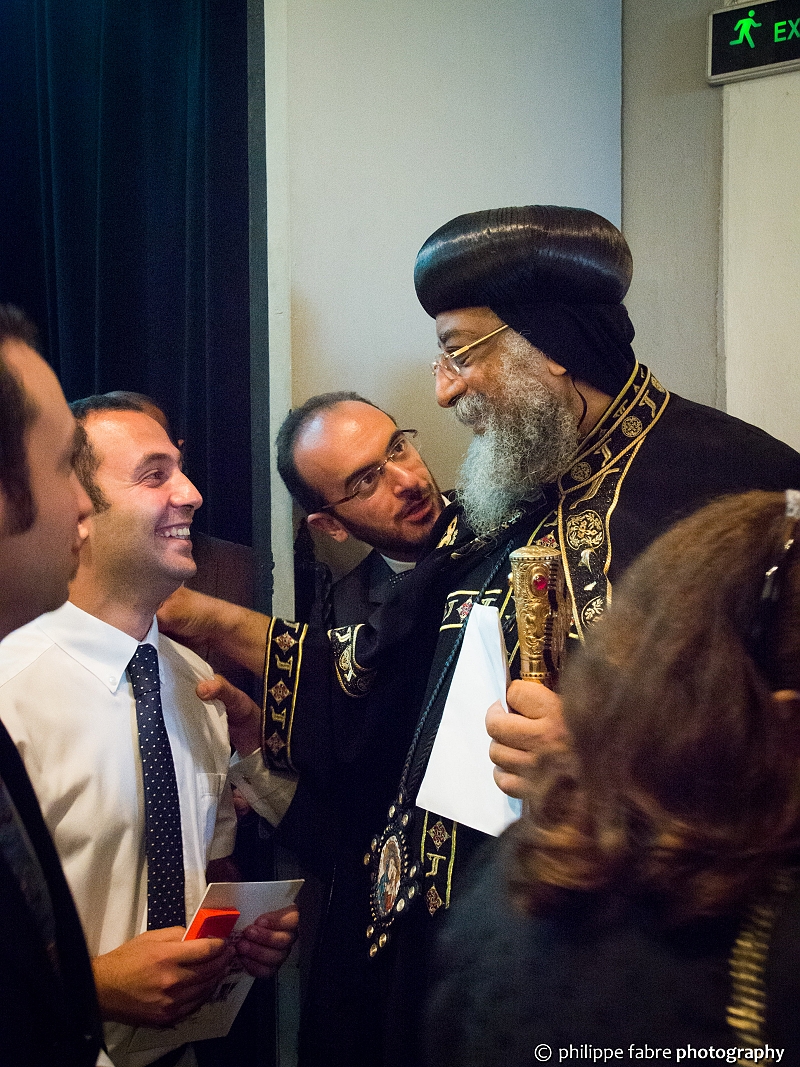 Besides these important events Pope Francis also met with Catholic men and women Religious, priests and seminarians. “He spoke to them about how a pastor should act. The Catholic community in Egypt is a minority (less than 1%), yet it’s an important reference point when it comes to interreligious dialogue, often because of the Religious: with their lifestyle, their openness to dialogue. Then it is our specific with the ‘dialogue of life’ and the help of the spirituality of unity. The week before the pope arrived, the parents of Blessed Chiara Luce Badano were here. Chiara Luce was a young person from the Focolare Movement who died at the age of 19 because of a tumor. The Catholic Church has held her up as an example of holiness for young people. Her parents travelled around the country presenting the life of their daughter who is now a Blessed. Their visit concluded with a meeting of 1500 young people who were preparing the Mass with the Holy Father. The most powerful moment of the night was getting to know the life of Chiara Luce.” In your opinion, what can change because of this brief but intense visit? I think new inroads were opened for us to follow, especially in interreligious and ecumenical dialogue. Now there’s more faith in the pope and in the Church. So I think it will be easier to move forward. We need to remain open, even though, I think, we’ll need time to ‘digest’ and understand deeply what the pope said in his various speeches. During the mass, in the homily on the disciples of Emmaus, the pope himself underscored how they spent in understanding the Risen Lord event. After this event we also feel like those disciples whose ‘hearts were burning’ because of their great joy.”
Besides these important events Pope Francis also met with Catholic men and women Religious, priests and seminarians. “He spoke to them about how a pastor should act. The Catholic community in Egypt is a minority (less than 1%), yet it’s an important reference point when it comes to interreligious dialogue, often because of the Religious: with their lifestyle, their openness to dialogue. Then it is our specific with the ‘dialogue of life’ and the help of the spirituality of unity. The week before the pope arrived, the parents of Blessed Chiara Luce Badano were here. Chiara Luce was a young person from the Focolare Movement who died at the age of 19 because of a tumor. The Catholic Church has held her up as an example of holiness for young people. Her parents travelled around the country presenting the life of their daughter who is now a Blessed. Their visit concluded with a meeting of 1500 young people who were preparing the Mass with the Holy Father. The most powerful moment of the night was getting to know the life of Chiara Luce.” In your opinion, what can change because of this brief but intense visit? I think new inroads were opened for us to follow, especially in interreligious and ecumenical dialogue. Now there’s more faith in the pope and in the Church. So I think it will be easier to move forward. We need to remain open, even though, I think, we’ll need time to ‘digest’ and understand deeply what the pope said in his various speeches. During the mass, in the homily on the disciples of Emmaus, the pope himself underscored how they spent in understanding the Risen Lord event. After this event we also feel like those disciples whose ‘hearts were burning’ because of their great joy.”
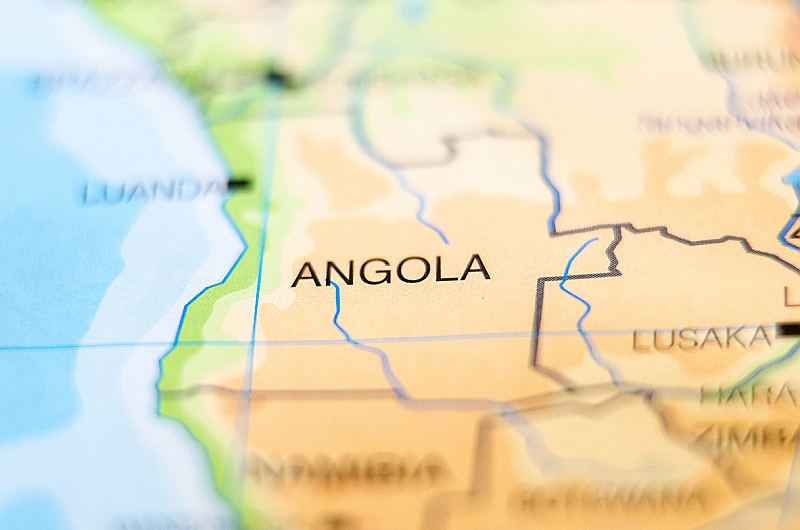
May 1, 2017 | Focolare Worldwide
 “My brother was born on 12 March 1995 in a city of Bié, south of Angola. He was a cheerful child, loved nature, and enjoyed climbing trees, gathering their fruit and bringing them to others. He had been lively and active since he was a child and had started to work. At the age of 15 he had started to reach his objectives. Not wanting to weigh on his parents, he started working as an assistant bricklayer, and then at 16, as a motorcycle and bicycle mechanic. He dreamt of becoming a doctor to help people, like our dad. Yes, this story is about my brother. Two years ago, he went to the sea with three of his friends. On their way home they were surprised by some policemen. In those days there was a big tension in the city, and a lot of violence. To prevent it, the police had set a curfew: all those who were out and about after 6 pm were arrested. It was a way of frightening criminals and assuring the population. Most of the people, however, had not been informed of this decision, and it was the first curfew day. Among these were my brother and his friend, who found themselves simply in the wrong place at the wrong time. My brother, mistaken for a criminal, was arrested. Time passed and he had not returned home. Anguished we went to search for him everywhere: in the house of our relatives, hospitals, prisons, and at the beach where he had gone. But nobody had any clue as to my brother’s whereabouts. In the end, an uncle proposed looking in the last place we would have ever wanted to go: the orbituary. His body was there. He was only 20 and with all the future before him. It was a really difficult moment, an immense suffering for our family. From the signs on his body it was clear that the policemen had been very cruel and he had suffered greatly before dying. This tragedy provoked a deep crisis, especially in my father. He had chosen to work to save human lives, and now before him was the drama of a son he was unable to help…. I knew the spirituality of the Focolare Movement for a long time, and tried to put the Gospel into practice. In giving myself to the others I had found my fulfillment, but with my brother’s death, a sentiment of hatred grew in me towards the policemen who had done this atrocity. The pain dug an unbridgeable void deep inside me. It was a long internal trial: in the depth of my heart, in fact, I wanted to start a process towards forgiveness. It wasn’t easy. Only God could fill this void and make my heart capable of mercy. In this path, the love of the Focolare community in my city was fundamental. I felt loved, welcomed and helped by all. I thus found the strength within me to make this choice. I have rediscovered the gift of peace, by building it firstly inside me, up to the point of looking at every policeman with my eyes and heart full of mercy.”
“My brother was born on 12 March 1995 in a city of Bié, south of Angola. He was a cheerful child, loved nature, and enjoyed climbing trees, gathering their fruit and bringing them to others. He had been lively and active since he was a child and had started to work. At the age of 15 he had started to reach his objectives. Not wanting to weigh on his parents, he started working as an assistant bricklayer, and then at 16, as a motorcycle and bicycle mechanic. He dreamt of becoming a doctor to help people, like our dad. Yes, this story is about my brother. Two years ago, he went to the sea with three of his friends. On their way home they were surprised by some policemen. In those days there was a big tension in the city, and a lot of violence. To prevent it, the police had set a curfew: all those who were out and about after 6 pm were arrested. It was a way of frightening criminals and assuring the population. Most of the people, however, had not been informed of this decision, and it was the first curfew day. Among these were my brother and his friend, who found themselves simply in the wrong place at the wrong time. My brother, mistaken for a criminal, was arrested. Time passed and he had not returned home. Anguished we went to search for him everywhere: in the house of our relatives, hospitals, prisons, and at the beach where he had gone. But nobody had any clue as to my brother’s whereabouts. In the end, an uncle proposed looking in the last place we would have ever wanted to go: the orbituary. His body was there. He was only 20 and with all the future before him. It was a really difficult moment, an immense suffering for our family. From the signs on his body it was clear that the policemen had been very cruel and he had suffered greatly before dying. This tragedy provoked a deep crisis, especially in my father. He had chosen to work to save human lives, and now before him was the drama of a son he was unable to help…. I knew the spirituality of the Focolare Movement for a long time, and tried to put the Gospel into practice. In giving myself to the others I had found my fulfillment, but with my brother’s death, a sentiment of hatred grew in me towards the policemen who had done this atrocity. The pain dug an unbridgeable void deep inside me. It was a long internal trial: in the depth of my heart, in fact, I wanted to start a process towards forgiveness. It wasn’t easy. Only God could fill this void and make my heart capable of mercy. In this path, the love of the Focolare community in my city was fundamental. I felt loved, welcomed and helped by all. I thus found the strength within me to make this choice. I have rediscovered the gift of peace, by building it firstly inside me, up to the point of looking at every policeman with my eyes and heart full of mercy.”
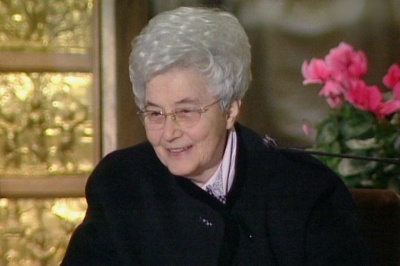
Apr 30, 2017 | Non categorizzato
 “My dear young people … God calls in different ways: he calls many persons and gives them special tasks and missions to accomplish. For example, he calls young men to the sublime vocation of the priesthood, to be other Christs. He calls men and women to the families of Religious Orders, which are like multicolored flowerbeds in the garden of the Church, constantly adorning the Bride of Christ with the most splendid virtues. He calls men and women to the modern ecclesial movements, to give themselves to God individually and in community, or to form model families that are like many little churches. Remember: God’s calling can come at any age. He calls adolescents and children too; he calls people all over the world. How can we recognize our vocation? It is my experience that generally we need to have a particular attitude. Since God’s call is an act of love on his part, if he finds love in people he is freer to call them. What should we do in order to hear God’s voice? We need to love with an authentic love. By doing that, we make God’s task easier and if we already know what our vocation is, then it is by loving that we find the best way to fulfill it. As I said, we need authentic love. Authentic love is so important that if you live it, you start a revolution in the world, which is the Christian revolution. Authentic love has four qualities: it loves everyone, because Jesus died for everyone; Mary is the mother of everyone. Therefore, someone who has an authentic love doesn’t look at whether people are pleasant or unpleasant, whether they are young or old, white or black, German or Italian, a member of one religion or another, if they are friends or enemies. Authentic love is directed toward everyone. Try to live it. Try to live it. Usually, we love our friends, our parents and relatives, and this is wonderful. But do we have love for all in our hearts? Try it, try it. It is a revolution. Because people do not understand and after a while, they ask, “Why are you doing this for me? Why do you love me? Why did you give me that pen? Why did you help me with my homework? Why?” “Why? Because I want to love everyone,” and this opens a dialogue with other Catholics, with people of other Churches or of other religions. A dialogue begins because we start taking an interest in other people. Therefore, especially you young people remember that the first point of authentic love is to love everyone. The second point: be the first to love. When Jesus came on earth we weren’t loving him, we were all sinners. He loved us first. We must be ready to make the first move, not expecting to be loved. Do we love because we are loved? No! we must take the initiative in loving. The Holy Spirit has poured this love into our hearts. It is the same love as in the Holy Trinity and in which we share; but we must put it into practice. Then we need to see Jesus in everyone, because he said that at the final judgment we would be examined on this: you did it to me. This means whatever good we do and, unfortunately, whatever evil we do. So three qualities: love everyone, be the first to love, see Jesus in every neighbor. But this love should not be idealistic or sentimental; it should be a concrete love and to be concrete, as St Paul says, we should make ourselves all things to all people. We need to make ourselves one with those who suffer, make ourselves one with those who are happy, and to share joys, sufferings and needs. We must share. So love everyone, be the first to love, see Jesus, and love concretely. This is what we can do, putting authentic love in our hearts. The calling is his part, it is his task.… Dear young people, God never stops calling especially if we love. It’s up to us to respond and during our life we’ll weave the divine, wonderful design that God has for each one of us for the good of all. Do you know what it means to put God in the first place in your life? Whether he calls you to consecrate yourself to him or to form a beautiful family, putting God in the first place in life means finding happiness already here on earth. This is what I wish for all of you! Aim high, young people, we have only one life, there won’t be another, it’s worthwhile spending it well.”
“My dear young people … God calls in different ways: he calls many persons and gives them special tasks and missions to accomplish. For example, he calls young men to the sublime vocation of the priesthood, to be other Christs. He calls men and women to the families of Religious Orders, which are like multicolored flowerbeds in the garden of the Church, constantly adorning the Bride of Christ with the most splendid virtues. He calls men and women to the modern ecclesial movements, to give themselves to God individually and in community, or to form model families that are like many little churches. Remember: God’s calling can come at any age. He calls adolescents and children too; he calls people all over the world. How can we recognize our vocation? It is my experience that generally we need to have a particular attitude. Since God’s call is an act of love on his part, if he finds love in people he is freer to call them. What should we do in order to hear God’s voice? We need to love with an authentic love. By doing that, we make God’s task easier and if we already know what our vocation is, then it is by loving that we find the best way to fulfill it. As I said, we need authentic love. Authentic love is so important that if you live it, you start a revolution in the world, which is the Christian revolution. Authentic love has four qualities: it loves everyone, because Jesus died for everyone; Mary is the mother of everyone. Therefore, someone who has an authentic love doesn’t look at whether people are pleasant or unpleasant, whether they are young or old, white or black, German or Italian, a member of one religion or another, if they are friends or enemies. Authentic love is directed toward everyone. Try to live it. Try to live it. Usually, we love our friends, our parents and relatives, and this is wonderful. But do we have love for all in our hearts? Try it, try it. It is a revolution. Because people do not understand and after a while, they ask, “Why are you doing this for me? Why do you love me? Why did you give me that pen? Why did you help me with my homework? Why?” “Why? Because I want to love everyone,” and this opens a dialogue with other Catholics, with people of other Churches or of other religions. A dialogue begins because we start taking an interest in other people. Therefore, especially you young people remember that the first point of authentic love is to love everyone. The second point: be the first to love. When Jesus came on earth we weren’t loving him, we were all sinners. He loved us first. We must be ready to make the first move, not expecting to be loved. Do we love because we are loved? No! we must take the initiative in loving. The Holy Spirit has poured this love into our hearts. It is the same love as in the Holy Trinity and in which we share; but we must put it into practice. Then we need to see Jesus in everyone, because he said that at the final judgment we would be examined on this: you did it to me. This means whatever good we do and, unfortunately, whatever evil we do. So three qualities: love everyone, be the first to love, see Jesus in every neighbor. But this love should not be idealistic or sentimental; it should be a concrete love and to be concrete, as St Paul says, we should make ourselves all things to all people. We need to make ourselves one with those who suffer, make ourselves one with those who are happy, and to share joys, sufferings and needs. We must share. So love everyone, be the first to love, see Jesus, and love concretely. This is what we can do, putting authentic love in our hearts. The calling is his part, it is his task.… Dear young people, God never stops calling especially if we love. It’s up to us to respond and during our life we’ll weave the divine, wonderful design that God has for each one of us for the good of all. Do you know what it means to put God in the first place in your life? Whether he calls you to consecrate yourself to him or to form a beautiful family, putting God in the first place in life means finding happiness already here on earth. This is what I wish for all of you! Aim high, young people, we have only one life, there won’t be another, it’s worthwhile spending it well.”
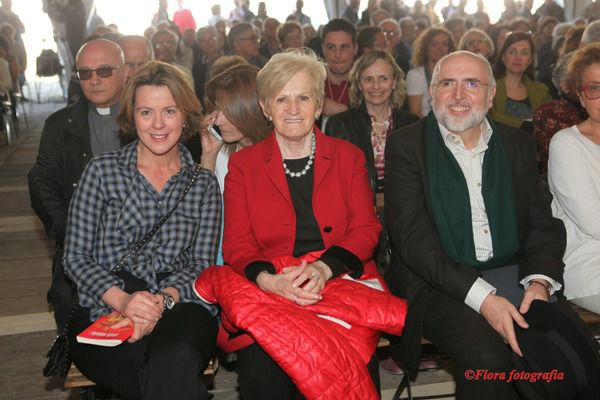
Apr 29, 2017 | Focolare Worldwide
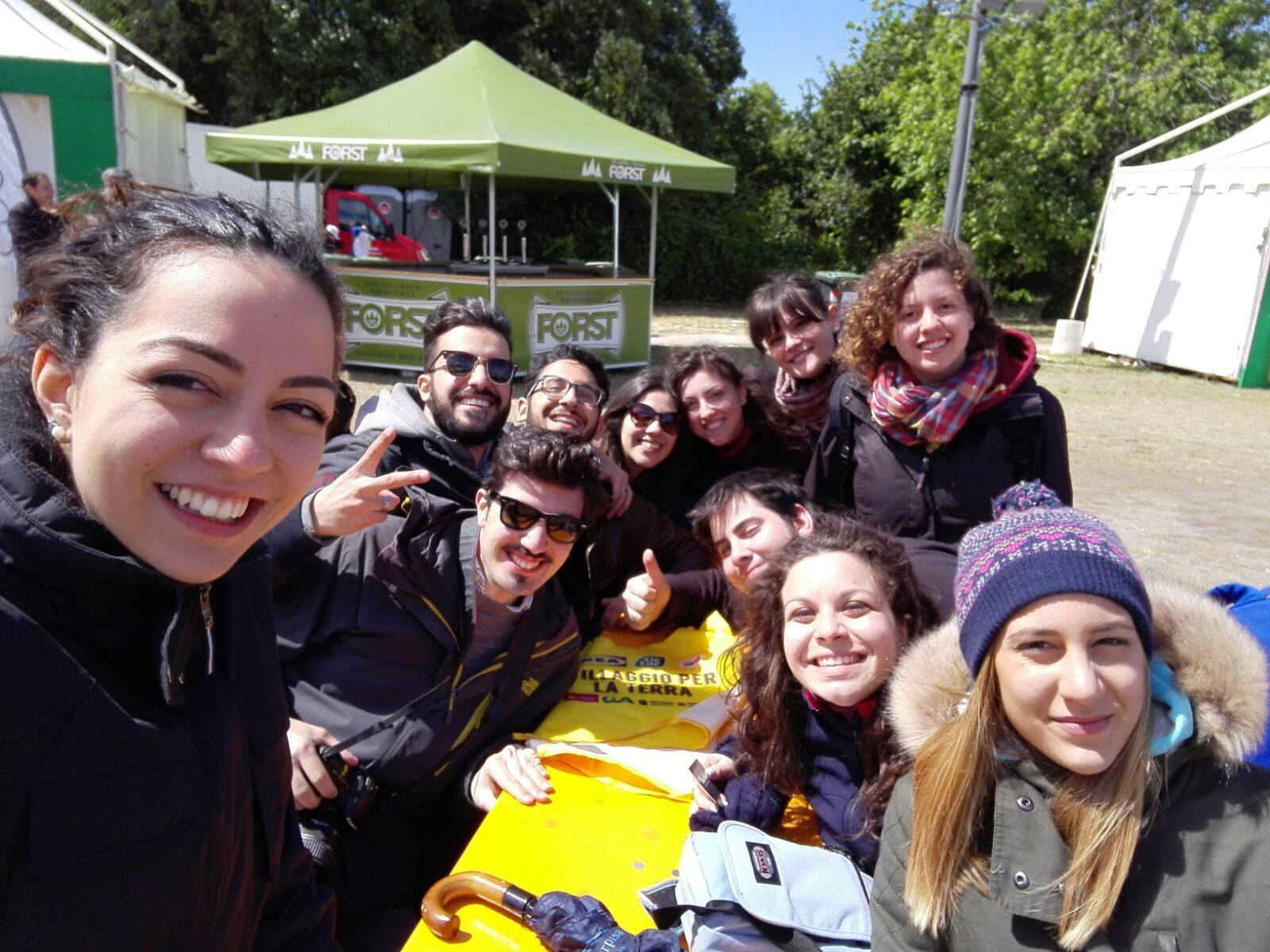 The Pincio Hill is a privileged terrace looking out over Rome, an observation point with a breathtaking view of the city skyline. But from 21 to 25 April a festive population stole the limelight to become an undisputed protagonist: the participants of “The Earth’s Village”, an event organised by Earth Day and the Focolare Movement within the setting of Villa Borghese, the capital’s green lung in the city centre. There were about130,000 visitors, families, children, youth, transiting citizens, but also ministers, key figures in the country’s economic and cultural life, cardinals and heads of various religions. It was a five-day event of institutional meetings, theme forums, courses, shows (also some stars of the musical world), a children’s village – within the context of the celebrations dedicated worldwide to the themes of ecology and respect for the environment – that contaminated also the strolling tourists, who thronged the place also due to the radiant sunlight and festive air. Like last year, the Focolare Movement found in the Earth’s Village the ideal place to hold one of its most important gatherings, the Mariapolis: a temporary but insightful city, whose inhabitants renew their decision to live the Golden Rule which invites to “do to others what you would like others to do to you.” “For us, this rule is the throbbing heart of integral ecology,” explained the organisers of the event, which last year had received the unexpected visit of Pope Francis. The concept was also taken up by Cardinal Parolin, Vatican Secretary of State, during a mass celebrated in the Village: “the spark of interest for the things of God» is like a “spark of interest for our own selves, for the truest, deepest and most essential part of ourselves (…). A new attitude towards creation, the promotion of an integral ecology lived with joy and authenticity, following the example of St. Francis of Assisi.”
The Pincio Hill is a privileged terrace looking out over Rome, an observation point with a breathtaking view of the city skyline. But from 21 to 25 April a festive population stole the limelight to become an undisputed protagonist: the participants of “The Earth’s Village”, an event organised by Earth Day and the Focolare Movement within the setting of Villa Borghese, the capital’s green lung in the city centre. There were about130,000 visitors, families, children, youth, transiting citizens, but also ministers, key figures in the country’s economic and cultural life, cardinals and heads of various religions. It was a five-day event of institutional meetings, theme forums, courses, shows (also some stars of the musical world), a children’s village – within the context of the celebrations dedicated worldwide to the themes of ecology and respect for the environment – that contaminated also the strolling tourists, who thronged the place also due to the radiant sunlight and festive air. Like last year, the Focolare Movement found in the Earth’s Village the ideal place to hold one of its most important gatherings, the Mariapolis: a temporary but insightful city, whose inhabitants renew their decision to live the Golden Rule which invites to “do to others what you would like others to do to you.” “For us, this rule is the throbbing heart of integral ecology,” explained the organisers of the event, which last year had received the unexpected visit of Pope Francis. The concept was also taken up by Cardinal Parolin, Vatican Secretary of State, during a mass celebrated in the Village: “the spark of interest for the things of God» is like a “spark of interest for our own selves, for the truest, deepest and most essential part of ourselves (…). A new attitude towards creation, the promotion of an integral ecology lived with joy and authenticity, following the example of St. Francis of Assisi.” 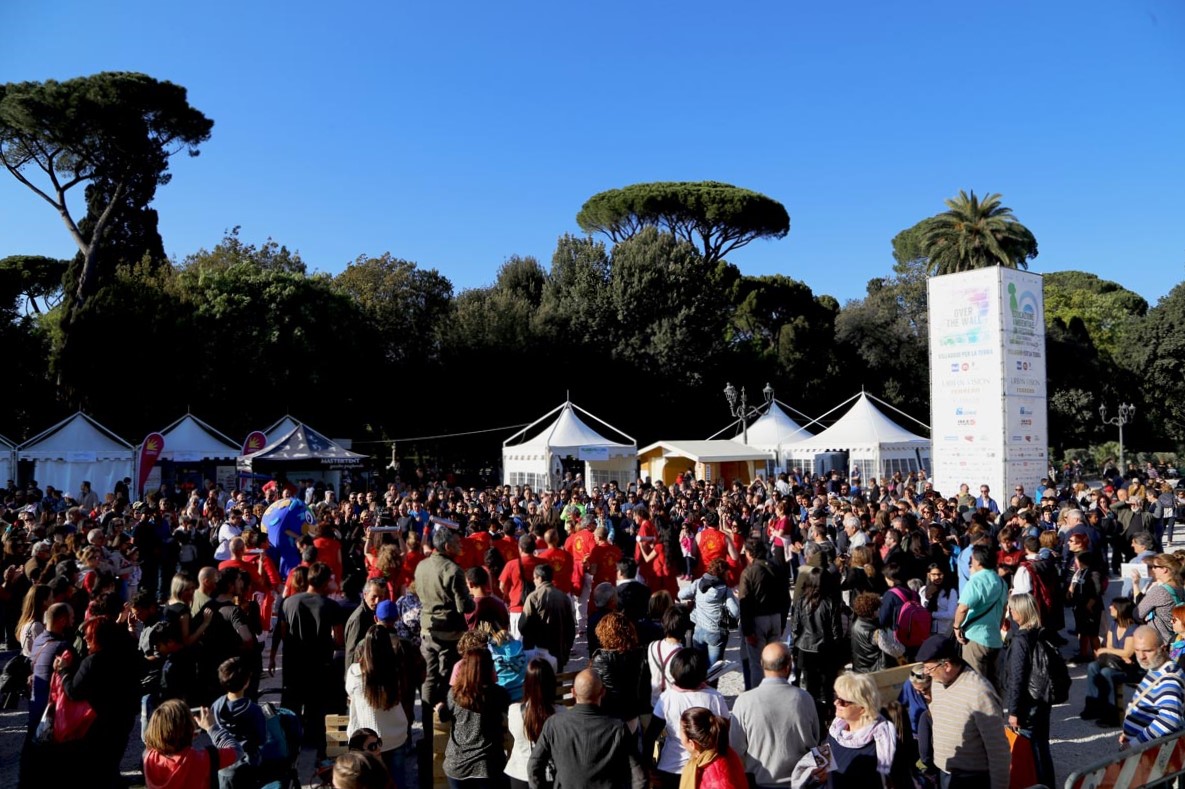 Among the many issues were discussed, a specific theme was Economy of Communion which is based on a market concept which surpasses the logic of savage capitalism and aims to make the economy an instrument for the humanization of relationships. The forums on Economy of the Village, The Community and the Enterprises, also saw the participation of the economist Stefano Zamagni. This educational phase proposed to the participants – citizens and economic and cultural operators – a space for the sharing of ideas, experiences and projects based on peace and economy, a dual term which today seems unachievable, given that behind every conflict, even behind the migration of thousands of refugees, lie enormous financial interests. And yet there are – and we saw them in the Village– economists and businessmen who have chosen to go against the current, to build enterprises that produce profits to be partly allocated to solve situations of poverty. These, in the current panorama, are concrete answers that bring hope. Another central theme was intercultural and interreligious dialogue. There were moving testimonials from Fontem, offered by Maria Bencivenni and Martin Nkafu. In the tiny village, north-west of Cameroon, wedged in the equatorial rain forest, stands the hospital Mary Health of Africa, founded in 1964 by the Focolare. Due to the high infant mortality rate the king of the village had asked for help. In response, the Focolare had sent doctors, nurses, civil engineers and technicians, and thus initiated an extraordinary story of friendship and harmonious co-existence between Christians and the faithful of other traditional religions, Europeans and Africans.
Among the many issues were discussed, a specific theme was Economy of Communion which is based on a market concept which surpasses the logic of savage capitalism and aims to make the economy an instrument for the humanization of relationships. The forums on Economy of the Village, The Community and the Enterprises, also saw the participation of the economist Stefano Zamagni. This educational phase proposed to the participants – citizens and economic and cultural operators – a space for the sharing of ideas, experiences and projects based on peace and economy, a dual term which today seems unachievable, given that behind every conflict, even behind the migration of thousands of refugees, lie enormous financial interests. And yet there are – and we saw them in the Village– economists and businessmen who have chosen to go against the current, to build enterprises that produce profits to be partly allocated to solve situations of poverty. These, in the current panorama, are concrete answers that bring hope. Another central theme was intercultural and interreligious dialogue. There were moving testimonials from Fontem, offered by Maria Bencivenni and Martin Nkafu. In the tiny village, north-west of Cameroon, wedged in the equatorial rain forest, stands the hospital Mary Health of Africa, founded in 1964 by the Focolare. Due to the high infant mortality rate the king of the village had asked for help. In response, the Focolare had sent doctors, nurses, civil engineers and technicians, and thus initiated an extraordinary story of friendship and harmonious co-existence between Christians and the faithful of other traditional religions, Europeans and Africans.  Livia Turco, in the past Health Minster and Beatrice Lorenzin, current Italian Health Minister, together with Vittorio Pelligra, professor of Economy, presented the book entitled Creative Fidelity. A Charism’s Implementation Challenges by Jesús Morán, current Co-President of the Focolare Movement. An exchange of ideas on politics and charisms, two apparently distant fields, to the point that Chiara Lubich herself had defined politics the “love of loves,” the tool par excellence that can respond to the present needs. A creative fidelity: ideals and concreteness, novelties and faithfulness, a challenge of identity in every field. “Creative fidelity means not fearing to face challenges but at the same time signifies firmness in one’s own values and principles. In the globalization world, it is not easy to build equality and social justice – affirmed Turco. It is a great and very difficult challenge.” A strong message of peace was launched on the last day. While the children were busy in the Playing together for peace workshop where they learned the differences between the Christian, Jewish, Muslim and Buddhist religions and the various places of worship, and built a mosaic with the words they had just learned, 7 women of 5 different faiths gave life to a panel called “Mothers of the Earth,” a round table of interreligious dialogue on the protection of the environment envisaged by the various religions. “Women,” declared Franca Coen, president of the Jewish Beth Hillel community, “by nature know what it means to take care of and protect a seed so that it can develop into a healthy and harmonious being. Through dialogue between the various cultures and religious faiths, they can overcome the fear of the diverse and operate in synergy honouring the work of the Only Creator.” Lilamaya Devi, of the Italian Hindu Union added: “According to our tradition, God rests on stones, breathes with the trees, sleeps with the animals and awakes in man. Religions have a very important function, that of reminding all of the deep union with the Earth.“ Mervat Kelli, a Syro-Orthodox Syrian said: “Nature is a shrine that teaches us how to create reciprocal relationships and live in profound harmony.” The Earth’s Village closed shop but opened many hearts. The participants returned to immerse themselves again in the reality of the metropolis, with the firm intention to live in full communion with the surrounding environment and humanity.
Livia Turco, in the past Health Minster and Beatrice Lorenzin, current Italian Health Minister, together with Vittorio Pelligra, professor of Economy, presented the book entitled Creative Fidelity. A Charism’s Implementation Challenges by Jesús Morán, current Co-President of the Focolare Movement. An exchange of ideas on politics and charisms, two apparently distant fields, to the point that Chiara Lubich herself had defined politics the “love of loves,” the tool par excellence that can respond to the present needs. A creative fidelity: ideals and concreteness, novelties and faithfulness, a challenge of identity in every field. “Creative fidelity means not fearing to face challenges but at the same time signifies firmness in one’s own values and principles. In the globalization world, it is not easy to build equality and social justice – affirmed Turco. It is a great and very difficult challenge.” A strong message of peace was launched on the last day. While the children were busy in the Playing together for peace workshop where they learned the differences between the Christian, Jewish, Muslim and Buddhist religions and the various places of worship, and built a mosaic with the words they had just learned, 7 women of 5 different faiths gave life to a panel called “Mothers of the Earth,” a round table of interreligious dialogue on the protection of the environment envisaged by the various religions. “Women,” declared Franca Coen, president of the Jewish Beth Hillel community, “by nature know what it means to take care of and protect a seed so that it can develop into a healthy and harmonious being. Through dialogue between the various cultures and religious faiths, they can overcome the fear of the diverse and operate in synergy honouring the work of the Only Creator.” Lilamaya Devi, of the Italian Hindu Union added: “According to our tradition, God rests on stones, breathes with the trees, sleeps with the animals and awakes in man. Religions have a very important function, that of reminding all of the deep union with the Earth.“ Mervat Kelli, a Syro-Orthodox Syrian said: “Nature is a shrine that teaches us how to create reciprocal relationships and live in profound harmony.” The Earth’s Village closed shop but opened many hearts. The participants returned to immerse themselves again in the reality of the metropolis, with the firm intention to live in full communion with the surrounding environment and humanity.
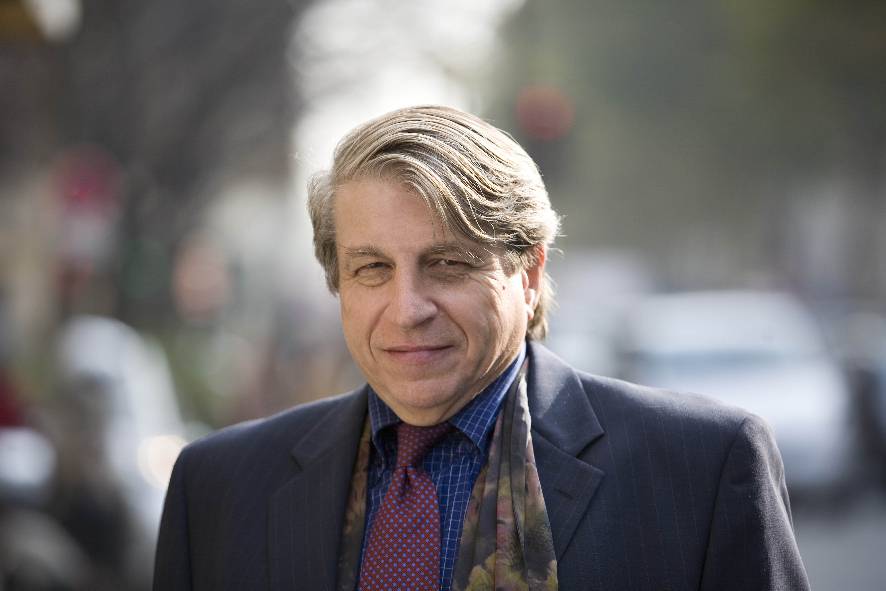
Apr 28, 2017 | Non categorizzato
 On April 24, 2017, Dr Benjamin Barber passed away at the age of 77, following a brief illness in New York. He leaves behind his wife Leah and daughter Cornelia. A political philosopher, author of several books, including the best-seller Jihad Vs. McWorld, Barber dedicated his entire life to the ideas of citizenship and democracy. He was convinced that the great challenges of interdependance could be resolved in a constructive way if citizens made an effort to live civic virtues and become actively involved in politics. He was sceptical of the ability of the nation-states to give sufficient answers to the contemporary global challenges (from climate change to terrorism; from immigration to poverty). In his last years, Barber emphasized the indispensible involvement of cities. In his book, If Mayors Rule the World, he demonstrated how cities respond in a more efficacious way than states to the problems of our interdependant world. Therefore, in his last years with the tenacity and passion that had always distinguished him, Barber gave life to the Global Parliament of Mayors, which 49 mayors joined, including the Italians Leouca Orlando amd Virginio Merola. I met Barber in the aftermath of September 11th at the New York home of Italian journalist, Antonio Monda. We were at a dinner together along with Leoluca Orlando, and Barber told us about a new project of his: to launch a World Interdependence Day that would be celebrated every September 12th, the day after the anniversary of the Twin Towers and Pentagon attacks. In fact, for Barber, the response to those attacks couldn’t be military, but had to rise from a common commitment to find sustainable solutions to all the great global challenges that could never be faced in an isolated way. Remembering that the United States had been born with the Declaration of Independance, Barber emphasized the need for a new declaration of interdependance. I worked closely with Barber to set up the first Interdependance Day that was symbolically celebrated in Philadelphia. With him, we thought up and put together the second edition of the day in Rome, Italy, in 2004, with the support of the Focolare Movement. It was on that occasion that I had the privilege of introducing Dr Barber to Chiara Lubich and be a witness to the various encounters and discussions that they had between 2003 and 2004. I recall during the conclusion of the first meeting between them, in June 2003 at Rocca di Papa, Italy, where I listened to him closely, Chiara observed that the idea of interdependance was important, but not enough. Chiara told Barber during that first meeting: “Not only do we need interdependance, but then communion. The goods have to move. But goods can’t move on their own, and this is why we need to move hearts. Therefore, I talk about the universal brotherhood that we achieve among individuals and individual groups, but if we begin to remake this brotherhood among the nations, we’ll resolve the problem of terrorism at its roots.” Barber responded: “Yes. The term “interdependance” is the lite version of the word “communion”. It’s the first step towards communion.” He went on to say: “Democracy is also a matter of the spirit; it begins with the habit of the heart and then is expressed in secular terms. So, oftentimes the separation between spirit and secular is a stretch . . .” That dialogue between Barber and Lubich is something that is still vibrating today, beause of its absolute timeliness. What remains of Barber as a most precious legacy is his intellectual and civic commitment to giving life to a global citizenry that leads us nearer to unity.” Aldo Civico Source: Città Nuova
On April 24, 2017, Dr Benjamin Barber passed away at the age of 77, following a brief illness in New York. He leaves behind his wife Leah and daughter Cornelia. A political philosopher, author of several books, including the best-seller Jihad Vs. McWorld, Barber dedicated his entire life to the ideas of citizenship and democracy. He was convinced that the great challenges of interdependance could be resolved in a constructive way if citizens made an effort to live civic virtues and become actively involved in politics. He was sceptical of the ability of the nation-states to give sufficient answers to the contemporary global challenges (from climate change to terrorism; from immigration to poverty). In his last years, Barber emphasized the indispensible involvement of cities. In his book, If Mayors Rule the World, he demonstrated how cities respond in a more efficacious way than states to the problems of our interdependant world. Therefore, in his last years with the tenacity and passion that had always distinguished him, Barber gave life to the Global Parliament of Mayors, which 49 mayors joined, including the Italians Leouca Orlando amd Virginio Merola. I met Barber in the aftermath of September 11th at the New York home of Italian journalist, Antonio Monda. We were at a dinner together along with Leoluca Orlando, and Barber told us about a new project of his: to launch a World Interdependence Day that would be celebrated every September 12th, the day after the anniversary of the Twin Towers and Pentagon attacks. In fact, for Barber, the response to those attacks couldn’t be military, but had to rise from a common commitment to find sustainable solutions to all the great global challenges that could never be faced in an isolated way. Remembering that the United States had been born with the Declaration of Independance, Barber emphasized the need for a new declaration of interdependance. I worked closely with Barber to set up the first Interdependance Day that was symbolically celebrated in Philadelphia. With him, we thought up and put together the second edition of the day in Rome, Italy, in 2004, with the support of the Focolare Movement. It was on that occasion that I had the privilege of introducing Dr Barber to Chiara Lubich and be a witness to the various encounters and discussions that they had between 2003 and 2004. I recall during the conclusion of the first meeting between them, in June 2003 at Rocca di Papa, Italy, where I listened to him closely, Chiara observed that the idea of interdependance was important, but not enough. Chiara told Barber during that first meeting: “Not only do we need interdependance, but then communion. The goods have to move. But goods can’t move on their own, and this is why we need to move hearts. Therefore, I talk about the universal brotherhood that we achieve among individuals and individual groups, but if we begin to remake this brotherhood among the nations, we’ll resolve the problem of terrorism at its roots.” Barber responded: “Yes. The term “interdependance” is the lite version of the word “communion”. It’s the first step towards communion.” He went on to say: “Democracy is also a matter of the spirit; it begins with the habit of the heart and then is expressed in secular terms. So, oftentimes the separation between spirit and secular is a stretch . . .” That dialogue between Barber and Lubich is something that is still vibrating today, beause of its absolute timeliness. What remains of Barber as a most precious legacy is his intellectual and civic commitment to giving life to a global citizenry that leads us nearer to unity.” Aldo Civico Source: Città Nuova
Apr 27, 2017 | Non categorizzato, Word of
https://www.focolare.org/gb/files/2017/04/201705WoL.mp3
Matthew ends his Gospel with the final events of Jesus’ life on earth. Jesus has risen from the dead, having fulfilled his mission. He had proclaimed God’s healing love for all, reopening the way that leads to fraternity. Matthew sees Jesus as Emmanuel, “God with us,” the one promised by the prophets and awaited by the people of Israel. Before returning to the Father, Jesus gathers together his disciples, the group who had most closely shared in his mission. He entrusts them with continuing his work — a tough assignment! But Jesus reassures them. He will not leave them on their own. Indeed, he promises to be with them every day, to support, accompany and encourage them “to the end of the age.” With his help, they will bear witness to meeting him, to his word and his acts of welcome and mercy toward all. In this way, many others will meet him and together form the new people of God, founded upon the commandment of love. We could say that God’s joy is to be with me, with you, with us every day to the end of our individual lives and to the end of human history. But is that true? Can we really encounter him? In a Word of Life commentary from 1982, Focolare founder Chiara Lubich wrote, “He is around the corner; he is next to me and to you. He hides himself in the poor, the despised, little ones, the sick, the person seeking advice, or deprived of freedom. He is in the ugly and the marginalized … As he said, ‘I was hungry and you gave me food’ (Mt 25:35) … Let’s learn how to find him where he is.” He is in his Word, which, if put into practice, renews our lives. All over the world he is in the Eucharist. He also works through his ministers, the servants of his people. He is present when we are in agreement among us (see Mt 18:20). Our prayer to the Father then becomes more effective, and we find light for our daily decisions. “I am with you always, to the end of the age.” How much hope this promise gives us! It encourages us to find him as we go along our way. Let’s open our hearts, and our arms too, to be welcoming and to share. Let’s do this personally and as communities, in our families and our churches, in our workplaces and on festive occasions, in our civil and religious associations. We will meet Jesus, and he will amaze us with joy and with light, the signs of his presence. If we start each morning thinking, “Today I want to discover where God wants to meet me!” we too will have wonderful experiences like this one shared in Glimpses of Gospel Life: “My husband’s mother deeply cared about her son, even to the point of being jealous. A year ago she was diagnosed with cancer, and her only daughter was not able to give her the level of care and help she needed. “During that time, I went to a summer gathering of the Focolare called a Mariapolis, where I encountered God’s love in a way that changed my life. “The first fruit of this conversion was the decision to ask my mother-in-law to come and live with us, setting aside all my fears about it. The light that had been lit in my heart made me see her with new eyes. Now I knew that it was Jesus in her that I cared for and helped. “To my surprise, she responded to all I did with just as much love. Months of sacrifice went by, but when my mother-in-law passed gently on to the next life, she left us all with a deep sense of peace. “It was around that time that I realized I was pregnant, after nine years of waiting! This child was a tangible sign of God’s love for us.”
Letizia Magri
________________________________________________ Read more: • Lubich, Chiara. “Jesus in our neighbor,” The Art of Loving. New City Press: Hyde Park, New York, 2010, pp. 103-110. • Lubich, Chiara. “The Word that gives life,” Essential Writings. New City Press: Hyde Park, New York, 2007, pp. 120-128.
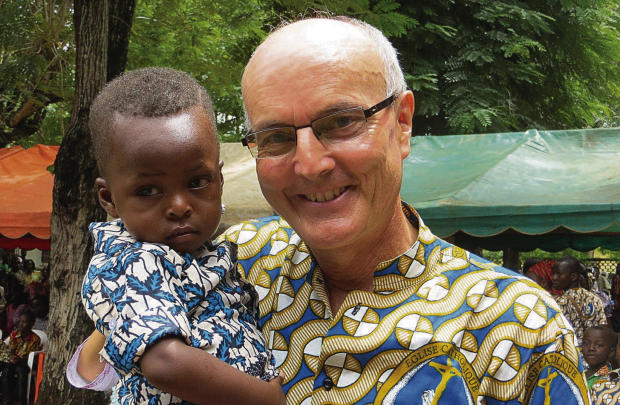
Apr 27, 2017 | Focolare Worldwide
 “In 2010 I had been sent to the parish of St Marie, on the outskirts of Man, which is the capital of Ivory Coast. At that time I wasn’t familiar with the culture and traditions of Africa. I was immediately struck by the strength and vitality of the people, despite the great poverty and consequences of the war. Over time I learned to recognize the ancestral fear towards white people. For me, as a priest from Switzerland, it wasn’t so much a matter of providing economic support, but of putting myself in a position of deep listening. What I had to offer was me, my availability, my lack of pretensions. I lived in the Focolare town of Mariapolis Victoria, near Man. From there I travelled every morning on bicycle towards my quarter, on my way to meet people in the shops, offices and along the road. I waved to everyone on my way and stopped now and then to put a stop to some large or small argument. I paid special attention to the children. I talked to them and played with them. If any of them were sick, I’d take them to the infirmary at the Mariapolis. I did the same for their parents and relatives. This is how nearly all the children in the parish came to recognize me and introduce me to the adults. During the feasts I’d go through the quarters with them, to extend my best wishes to the families, Christian and Muslim alike. This also led to friendships with Imams and Evangelical pastors. One day, a boy from the parish approached me. He wanted to do something for the children of the village, although he had previously grown far from the Church because of a misunderstanding. I encouraged them to do small fund-raisers to support their journeys, a gesture of auto-financing that was greatly appreciated by the local bishop. We visited 11 villages in which the young people were trained in visiting the sick and elderly. During the Year of Mercy, with the help of the residents of Mariapolis Victoria, we supported the bishop’s projects in the diocese, sponsoring a meeting of traditional leaders, pastors from the Evangelical Churches and Imams. The campaign for brotherhood among the populations that spread through the region concluded at the Mariapolis. I substituted for the chaplain at the public jail for a while. During the celebrations of the mass, I tried to underscore the importance of living the Gospel. Sometimes I invited others to join me, who shared their testimonies. These masses were celebrated under a roof, in a courtyard, in the midst of a lot of confusion. So, I brought along a loud-speaker, inviting them to use it when they had other events. I later learned that they shared it with the Muslims and that the Imam was touched by their generosity, which he called “typically Christian”. Before my departure, they wanted to hold a send-off feast for me with the director of the jail. They told me: “You always practiced what you preached.”
“In 2010 I had been sent to the parish of St Marie, on the outskirts of Man, which is the capital of Ivory Coast. At that time I wasn’t familiar with the culture and traditions of Africa. I was immediately struck by the strength and vitality of the people, despite the great poverty and consequences of the war. Over time I learned to recognize the ancestral fear towards white people. For me, as a priest from Switzerland, it wasn’t so much a matter of providing economic support, but of putting myself in a position of deep listening. What I had to offer was me, my availability, my lack of pretensions. I lived in the Focolare town of Mariapolis Victoria, near Man. From there I travelled every morning on bicycle towards my quarter, on my way to meet people in the shops, offices and along the road. I waved to everyone on my way and stopped now and then to put a stop to some large or small argument. I paid special attention to the children. I talked to them and played with them. If any of them were sick, I’d take them to the infirmary at the Mariapolis. I did the same for their parents and relatives. This is how nearly all the children in the parish came to recognize me and introduce me to the adults. During the feasts I’d go through the quarters with them, to extend my best wishes to the families, Christian and Muslim alike. This also led to friendships with Imams and Evangelical pastors. One day, a boy from the parish approached me. He wanted to do something for the children of the village, although he had previously grown far from the Church because of a misunderstanding. I encouraged them to do small fund-raisers to support their journeys, a gesture of auto-financing that was greatly appreciated by the local bishop. We visited 11 villages in which the young people were trained in visiting the sick and elderly. During the Year of Mercy, with the help of the residents of Mariapolis Victoria, we supported the bishop’s projects in the diocese, sponsoring a meeting of traditional leaders, pastors from the Evangelical Churches and Imams. The campaign for brotherhood among the populations that spread through the region concluded at the Mariapolis. I substituted for the chaplain at the public jail for a while. During the celebrations of the mass, I tried to underscore the importance of living the Gospel. Sometimes I invited others to join me, who shared their testimonies. These masses were celebrated under a roof, in a courtyard, in the midst of a lot of confusion. So, I brought along a loud-speaker, inviting them to use it when they had other events. I later learned that they shared it with the Muslims and that the Imam was touched by their generosity, which he called “typically Christian”. Before my departure, they wanted to hold a send-off feast for me with the director of the jail. They told me: “You always practiced what you preached.”
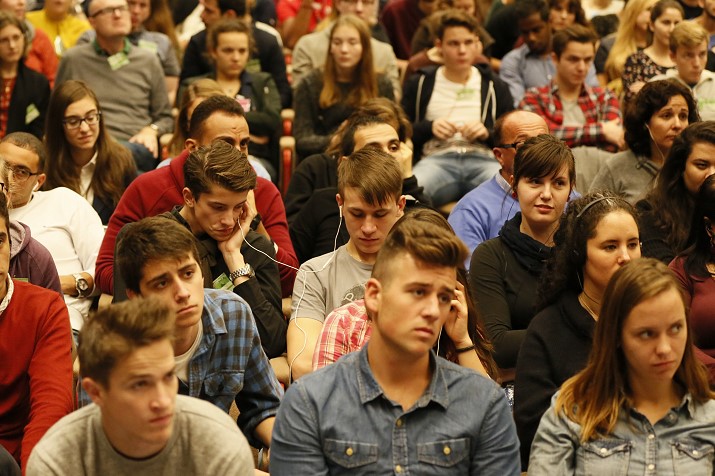
Apr 26, 2017 | Non categorizzato
 Only three days remain until the opening of the United World Week with the long awaited International Meeting of Youth for a United World in Loppiano, Italy. Five hundred young people are the starting blocks. “United World Project” is their slogan that will carry them through the race they are spreading by every possible means of communication. They are all directly involved in the project, a network of numberless concrete and courageous gestures that build bridges and open paths of dialogue and solidarity. The main working document of the Meeting, entitled “Universal Brotherhood: An Opportunity for the World” states: “The financial, economic and, above all, cultural crisis the has spread in every country poses epochal questions”. How can a future of justice, freedom and peace be given to all the peoples of the earth? We would like to begin from unity, the unity of the human family and to aim towards a horizon of the universal brotherhood among all peoples. This is our project.” The border that extends from the Gulf of Mexico to the Pacific Ocean, with its 3,169 kilometres of metal barriers and barbed wire and control towers, representation of the broken dreams of many immigrants in search of a better future. In the same vicinity, in Mexicali and in Calexico, a group of young people have believed in a world without walls and have been keeping busy. “We began singing in one of our city parks which is located right next to the border wall. It was a way of offering a bit of relief to the people who were passing through that area. The second step was to go inside the city’s maximum security prison where 4 thousand people are living, to offer them some music and song. After going through a lot of security controls, we were given permission to spend a few hours with 130 inmates inside a big hall. During lunch they told us that our visit was the only one they had received in two years.” The 2016 Worldwide Run4Unity Relay was held right next to the wall. “We wanted to plant our flag along the border wall as a sign of the unity that we’re committed to building with the people living on the other side.”
Only three days remain until the opening of the United World Week with the long awaited International Meeting of Youth for a United World in Loppiano, Italy. Five hundred young people are the starting blocks. “United World Project” is their slogan that will carry them through the race they are spreading by every possible means of communication. They are all directly involved in the project, a network of numberless concrete and courageous gestures that build bridges and open paths of dialogue and solidarity. The main working document of the Meeting, entitled “Universal Brotherhood: An Opportunity for the World” states: “The financial, economic and, above all, cultural crisis the has spread in every country poses epochal questions”. How can a future of justice, freedom and peace be given to all the peoples of the earth? We would like to begin from unity, the unity of the human family and to aim towards a horizon of the universal brotherhood among all peoples. This is our project.” The border that extends from the Gulf of Mexico to the Pacific Ocean, with its 3,169 kilometres of metal barriers and barbed wire and control towers, representation of the broken dreams of many immigrants in search of a better future. In the same vicinity, in Mexicali and in Calexico, a group of young people have believed in a world without walls and have been keeping busy. “We began singing in one of our city parks which is located right next to the border wall. It was a way of offering a bit of relief to the people who were passing through that area. The second step was to go inside the city’s maximum security prison where 4 thousand people are living, to offer them some music and song. After going through a lot of security controls, we were given permission to spend a few hours with 130 inmates inside a big hall. During lunch they told us that our visit was the only one they had received in two years.” The 2016 Worldwide Run4Unity Relay was held right next to the wall. “We wanted to plant our flag along the border wall as a sign of the unity that we’re committed to building with the people living on the other side.”

 “Yesterday’s breeze brushed the hair and faces of both kids and adults, a colorful slice of humanity saying yes to life and no to the merchants of death. After years of existing in isolation, many groups and organizations came together to start again, in the hope of a visible fraternity.” So read the press release the day after the peace march from its promoters – Focolare, Amnesty International, Oxfam, Fondazione Banca Etica, Opal Brescia, Rete Italiana per il Disarmo – with the support of Comboni missionary Alex Zanotelli. The campaign against arms dealing between Italy and war-torn countries began on March 7, 2017 in Sardinia. The initiative was also part of the worldwide event Run4Unity, promoted by the Young for Unity. Run4Unity takes place each year on the first Sunday of May throughout the globe, during World Unity Week. Arnaldo Scarpa, part of the Focolare Movement in Iglesias and spokesperson for the RWM Conversion Committee together with Cinzia Guaita, explains how the project began. “For many years, there has been a factory in the Domusnovas and Iglesias area whose original work was to produce explosives for nearby mines. Unfortunately the mines were decommissioned, and the factory was converted using public money to produce military equipment. This was then bought and transformed by RWM, a German multinational that produces weapons that are then exported to Saudi Arabia. “So from our country, Italy, arms go out to the ‘pieces of World War III.’ The laws of both countries, Italy and Germany, are quite clear: Law 185/90 in fact prohibits the Italian government to sell arms to countries at war or who do not respect human rights. Yet there has been a continual increase (59%) in Italian exports to North African and Middle Eastern countries in particular. In 2016, RWM’s production rose to almost 22,000, a jump of 1,466%.” At Domusnovas, like in many areas of the island, the main challenge is jobs. “We understood,” Arnaldo continues, “that even our consciences could fall asleep, confused by the general silence, having become groggy from the tragedy of unemployment. Those of us who are committed to living fraternity certainly support the workers, yet we also support the children, teens and adults in Yemen who are killed by what is produced here. Our project has required that we be more courageous than we had ever been in our lives, for many reasons, but it’s already encouraging that there are many people with us who have different backgrounds and ideas.”
“Yesterday’s breeze brushed the hair and faces of both kids and adults, a colorful slice of humanity saying yes to life and no to the merchants of death. After years of existing in isolation, many groups and organizations came together to start again, in the hope of a visible fraternity.” So read the press release the day after the peace march from its promoters – Focolare, Amnesty International, Oxfam, Fondazione Banca Etica, Opal Brescia, Rete Italiana per il Disarmo – with the support of Comboni missionary Alex Zanotelli. The campaign against arms dealing between Italy and war-torn countries began on March 7, 2017 in Sardinia. The initiative was also part of the worldwide event Run4Unity, promoted by the Young for Unity. Run4Unity takes place each year on the first Sunday of May throughout the globe, during World Unity Week. Arnaldo Scarpa, part of the Focolare Movement in Iglesias and spokesperson for the RWM Conversion Committee together with Cinzia Guaita, explains how the project began. “For many years, there has been a factory in the Domusnovas and Iglesias area whose original work was to produce explosives for nearby mines. Unfortunately the mines were decommissioned, and the factory was converted using public money to produce military equipment. This was then bought and transformed by RWM, a German multinational that produces weapons that are then exported to Saudi Arabia. “So from our country, Italy, arms go out to the ‘pieces of World War III.’ The laws of both countries, Italy and Germany, are quite clear: Law 185/90 in fact prohibits the Italian government to sell arms to countries at war or who do not respect human rights. Yet there has been a continual increase (59%) in Italian exports to North African and Middle Eastern countries in particular. In 2016, RWM’s production rose to almost 22,000, a jump of 1,466%.” At Domusnovas, like in many areas of the island, the main challenge is jobs. “We understood,” Arnaldo continues, “that even our consciences could fall asleep, confused by the general silence, having become groggy from the tragedy of unemployment. Those of us who are committed to living fraternity certainly support the workers, yet we also support the children, teens and adults in Yemen who are killed by what is produced here. Our project has required that we be more courageous than we had ever been in our lives, for many reasons, but it’s already encouraging that there are many people with us who have different backgrounds and ideas.”  A positive outcome from the project has been the establishment of the RWM Conversion Committee, to keep the focus on the issue and block the extension of the factory. The area there has natural, environmental and archeological value. There is also the ethical dilemma: some have chosen to not accept work at this factory, even though they are unemployed, while others working inside experience serious crises of conscience. The next step is therefore to lay the foundations for common work on the project, to convert the factory and develop the area differently. Important contacts with entrepreneurs, architects, academics, legal experts, institutions, associations and employee representatives have begun. What is above all essential is that there be a specific political choice at all levels of government. To sign the petition for the Italian president, click here.
A positive outcome from the project has been the establishment of the RWM Conversion Committee, to keep the focus on the issue and block the extension of the factory. The area there has natural, environmental and archeological value. There is also the ethical dilemma: some have chosen to not accept work at this factory, even though they are unemployed, while others working inside experience serious crises of conscience. The next step is therefore to lay the foundations for common work on the project, to convert the factory and develop the area differently. Important contacts with entrepreneurs, architects, academics, legal experts, institutions, associations and employee representatives have begun. What is above all essential is that there be a specific political choice at all levels of government. To sign the petition for the Italian president, click here.


 Amid the confusion, the positive proposals for dialogue presented in academic environments were well received. For example, at Fordham Law School, in the heart of Manhattan, New York, Ana Renata Dias, the Director of the Institute on Religion, Law & Lawyer’s Work, offered a workshop that aimed to promote open and constructive cultural dialogue by honing the participants’ listening skills. “Several of the participants said they had come to the workshop because they wanted to understand if dialogue is really possible among such polarization.” After a listening to a presentation with practical suggestions for approaching these difficult conversations, participants rolled up their sleeves and got to work, discovering together that even those who were most impassioned could find ways to exchange contrasting views without the conversation degenerating into a fight. Even those who said they were less than convinced by the workshop felt more hopeful. Two months later, following the inauguration of the new president, cultural tensions became more and more pronounced. Students at Georgetown Law School in Washington, DC were searching for ways to navigate these tumultuous waters. Amy Uelmen, author of the book, Five Steps to Positive Political Dialogue: Insights and Examples, proposed to her class a way forward.
Amid the confusion, the positive proposals for dialogue presented in academic environments were well received. For example, at Fordham Law School, in the heart of Manhattan, New York, Ana Renata Dias, the Director of the Institute on Religion, Law & Lawyer’s Work, offered a workshop that aimed to promote open and constructive cultural dialogue by honing the participants’ listening skills. “Several of the participants said they had come to the workshop because they wanted to understand if dialogue is really possible among such polarization.” After a listening to a presentation with practical suggestions for approaching these difficult conversations, participants rolled up their sleeves and got to work, discovering together that even those who were most impassioned could find ways to exchange contrasting views without the conversation degenerating into a fight. Even those who said they were less than convinced by the workshop felt more hopeful. Two months later, following the inauguration of the new president, cultural tensions became more and more pronounced. Students at Georgetown Law School in Washington, DC were searching for ways to navigate these tumultuous waters. Amy Uelmen, author of the book, Five Steps to Positive Political Dialogue: Insights and Examples, proposed to her class a way forward.  “We realized that often in any conversation there will be caricatures, mischaracterizations, misunderstandings, and information that is simply wrong. We agreed all together to be open to correction and to working out our difficulties when different perspectives collide.” In Arkansas, a traditionally conservative state, some were enthusiastic about the election of the new president while others were angry. Austin Kellerman leads a newsroom in Little Rock, the state’s capital. Together, he and his colleagues decided to launch an appeal for unity. “Our team of journalists felt like we had the chance to be a voice for our city, so in one of the more heated moments one of our more experienced reporters put together a commentary calling for unity and an open mind: he said, ‘There is no them, no us. There is We. We the people.’” “Obviously, this alone will not fix things or change anybody’s view,” Kellerman continues, “but hopefully it gives people permission to think beyond their singular view. We are going to try to keep the dialogue going and staying faithful to representing all sides and voices.” Source:
“We realized that often in any conversation there will be caricatures, mischaracterizations, misunderstandings, and information that is simply wrong. We agreed all together to be open to correction and to working out our difficulties when different perspectives collide.” In Arkansas, a traditionally conservative state, some were enthusiastic about the election of the new president while others were angry. Austin Kellerman leads a newsroom in Little Rock, the state’s capital. Together, he and his colleagues decided to launch an appeal for unity. “Our team of journalists felt like we had the chance to be a voice for our city, so in one of the more heated moments one of our more experienced reporters put together a commentary calling for unity and an open mind: he said, ‘There is no them, no us. There is We. We the people.’” “Obviously, this alone will not fix things or change anybody’s view,” Kellerman continues, “but hopefully it gives people permission to think beyond their singular view. We are going to try to keep the dialogue going and staying faithful to representing all sides and voices.” Source: 










 Chiara Lubich
Chiara Lubich












 With regard to the culture that could emerge when there is profound reconciliation, Maria Voce quoted
With regard to the culture that could emerge when there is profound reconciliation, Maria Voce quoted 



 On 4th May, Maria Voce met with the President of the Republic of Malta,
On 4th May, Maria Voce met with the President of the Republic of Malta,  Also present were the Archbishop, the President of the Ecumenical Commission, the Vicar General, the Secretary of the Nunciature of Malta, the Nuncio of the Ivory Coast (of Maltese origin), a representative of the Romanian Orthodox Church, two members of the “Robert Schuman Centre for European Studies” and several members of ecclesial organisations. In tracing the rich history of the
Also present were the Archbishop, the President of the Ecumenical Commission, the Vicar General, the Secretary of the Nunciature of Malta, the Nuncio of the Ivory Coast (of Maltese origin), a representative of the Romanian Orthodox Church, two members of the “Robert Schuman Centre for European Studies” and several members of ecclesial organisations. In tracing the rich history of the 











 The second invitation was offered by President Al-Sisi when he visited the Vatican in 2014. He’s trying to bring ahead a culture of peace, not without difficulty. But the pope went beyond the politics, in depth. The third invitation came from the Grand Imam of al-Azhar in 2016. On that occasion the pope gave the Encyclical Laudato sii in a gesture of seeking what unites us. In my opinion it was quite courageous of the Grand Imam to offer this invitation, given the precedents. The pope’s speech at al-Azhar University was important, perhaps a beginning. Now I think time will be needed and courage to face the more delicate questions and in order to delve more deeply into the history as well . . . Now it’s up to us Egyptians to get working and moving forward.”
The second invitation was offered by President Al-Sisi when he visited the Vatican in 2014. He’s trying to bring ahead a culture of peace, not without difficulty. But the pope went beyond the politics, in depth. The third invitation came from the Grand Imam of al-Azhar in 2016. On that occasion the pope gave the Encyclical Laudato sii in a gesture of seeking what unites us. In my opinion it was quite courageous of the Grand Imam to offer this invitation, given the precedents. The pope’s speech at al-Azhar University was important, perhaps a beginning. Now I think time will be needed and courage to face the more delicate questions and in order to delve more deeply into the history as well . . . Now it’s up to us Egyptians to get working and moving forward.” 







